

Ebooks, Publishing, and Everything in Between
- Downloads & Pricing
- Advertising
Top Writers Conferences to Attend in 2022
- on Nov 29, 2021
- in Writing Tips
- Last update: January 3rd, 2024
Note: Be sure to check out the 2024 writing conferences list !
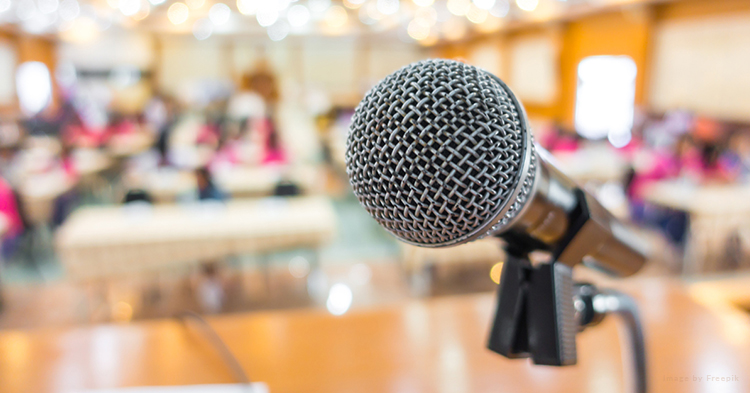
Being masters of words, writers tend to always be on the lookout for new tips and tricks to improve their skill. In writing, there’s always room to grow and bloom. That’s why we’ve compiled a huge list of writing conferences happening this year where writers of all stages get to meet and attend writing workshops, editor meetings, Q&A sessions and many other activities that can only be described as inspiring.

Writing and Well-Being
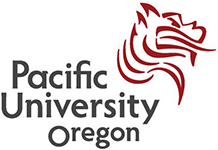
Pacific University Master of Fine Arts in Writing Residency Writers Conference

Key West Literary Seminar
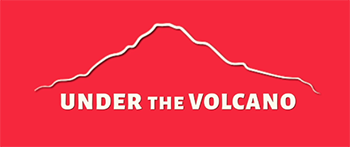
Under the Volcano
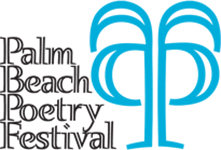
The Palm Beach Poetry Festival

Key West Literary Seminar Writers’ Workshop Program

Blackbird Studio for Writers

Arisia 2022
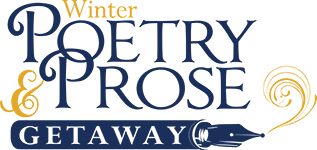
Winter Poetry & Prose Getaway

Colrain Classic

Writers in Paradise Conference

Tupelo’s Online Manuscript Conference

Tupelo Truchas Poetry Conference

The Writer’s Hotel Virtual Pitching & Marketing Weekend
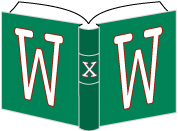
GET THE LEAD OUT!
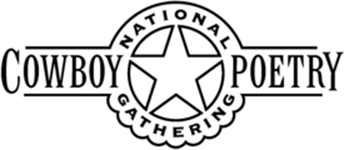
National Cowboy Poetry Gathering
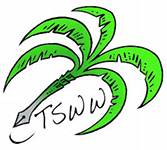
Todos Santos Writers Workshop

Sierra Writers Conference
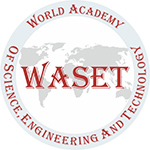
Reading, Writing and Applied Linguistics In barcelona
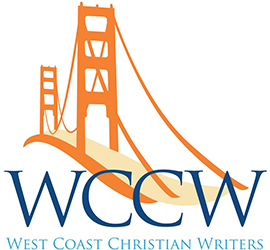
West Coast Christian Writers Online Conference
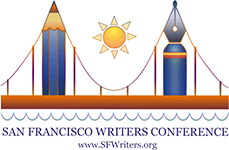
San Francisco Writers Conference

Southern California Writers’ Conference

Asheville Christian Writers Conference

Southern California Writers Conference – San Diego

Coastal Magic Convention

California Creative Writers Conference

Dahlonega Literary Festival

NAWE Virtual Conference
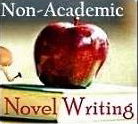
New York Pitch Conference
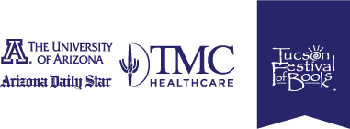
Tucson Festival of Books
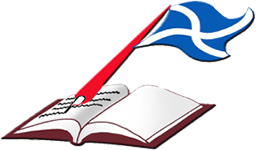
Scottish Association of Writers Conference

Writing By Writers

Authors’ Salon at Clockwork Alchemy

Let’s Just Write! An Uncommon Writers Conference

The AWP 2022 Conference & Bookfair
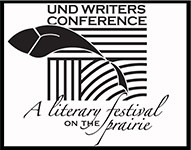
UND Writers Conference
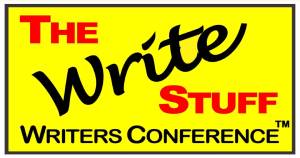
The Write Stuff Writer’s Conference

Teen Author Boot Camp IN PERSON Conference

Teen Author Boot Camp VIRTUAL Conference

Kentucky Writers Conference

National Undergraduate Literature Conference

Tuscon Poetry and Imagination Conference
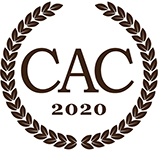
Chanticleer Authors Conference

The Las Vegas Writers Conference
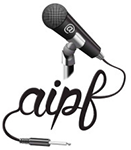
Austin International Poetry Festival
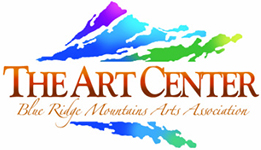
Blue Ridge Writers’ Conference
A rally of writers conference, rally of writers conference.
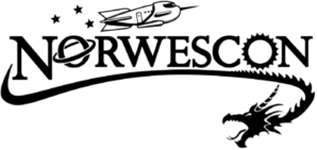
Norwescon 43
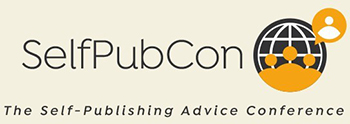
Self Publishing Advice Conference
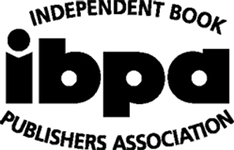
Independent Publishers Book Association University
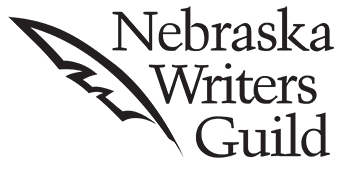
Nebraska Writers Guild Conference

NWG Annual Conference and Writing Retreat

Malice Domestic Convention

Paris Cafe Writing
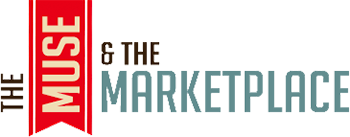
The Muse & the Marketplace
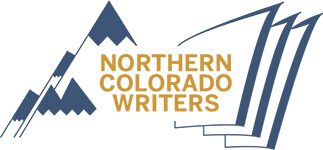
Northern Colorado Writers Conference

Pikes Peak Writers Conference
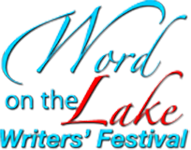
Word on the Lake Writers’ Festival

The Annual Gold Rush Writers Conference

American Society of Journalists and Authors Annual Conference
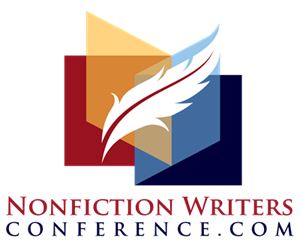
Nonfiction Writers Conference
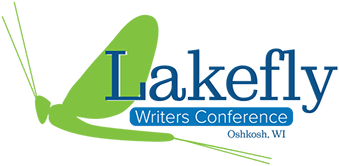
The Lakefly Writers Conference
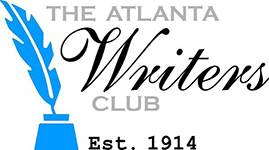
Atlanta Writers Conference
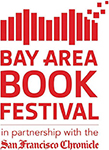
Bay Area Book Festival
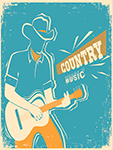
A Weekend With The Authors

Storymakers Conference
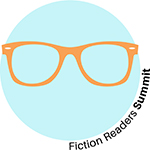
Fiction Readers Summit

Pennwriters Annual Conference
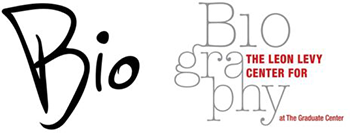
Biographers International Organization Conference
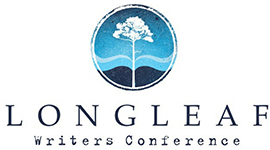
Longleaf Writers Conference

Kachemak Bay Writers’ Conference

Kachemak Bay Writers’ Conference
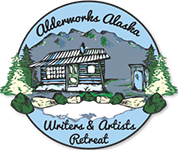
Alderworks Alaska Writers
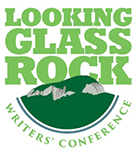
Looking Glass Rock Writers’ Conference

Bear River Writers’ Conference
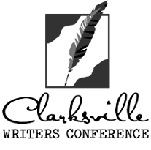
Clarksville Writers Conference

Big Sur Children’s Writers Workshops

San Antonio Book Festival
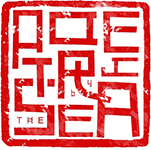
Poetry by the Sea: A Global Poetry Conference
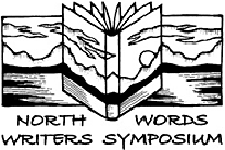
North Words Writers Symposium
Balticon 56

Blue Ridge Mountain Christian Writers Conference
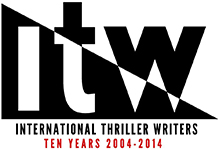
Thrillerfest XIV

Writing the Midwest: A Symposium of Scholars and Writers
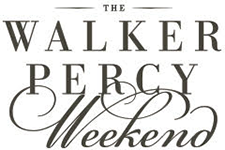
Walker Percy Weekend

Yale Writers’ Conference

Bucknell Seminar for Undergraduate Poets
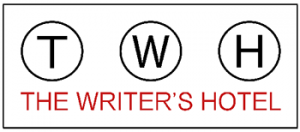
The Writer’s Hotel

Reader & Author Get Together

Bread Loaf Translators’ Conference

Bread Loaf Environmental Writers’ Conference

Write-to-Publish Conference
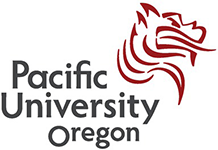
Pacific University Residency Writers Conference
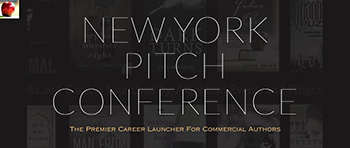
The New York Pitch Conference
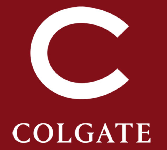
Colgate Writers Conference

Juniper Summer Writing Institute
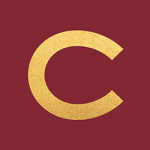
Colgate Writers’ Conference

Stonecoast Writers’ Conference

Minnesota Northwoods Writers Conference
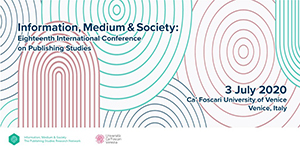
Information, Medium & Society: Eighteenth International Conference on Publishing Studies
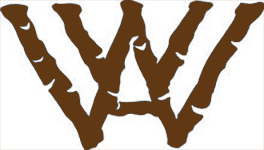
Western Writers of America Convention
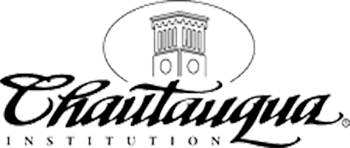
Chautauqua Writers’ Festival
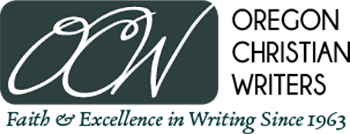
Oregon Christian Writers Virtual Summer

ALA Midwinter Meeting & Exhibits
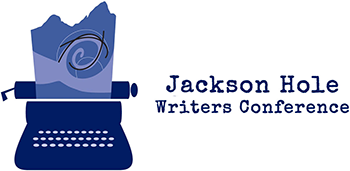
Jackson Hole Writers Conference

Bookstock Literary Festival

Chesapeake Writers’ Conference
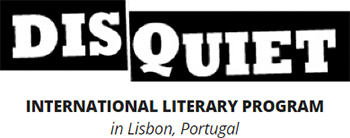
Disquiet International Literary Program

Annual Philadelphia Writers’ Conference
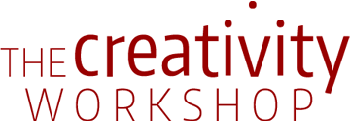
The Creativity Workshop In Prague
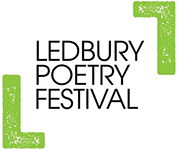
Ledbury Poetry Festival

Southampton Writers Conference

Writing in Place conference

Book Bonanza 2022

Florida Writing Workshop
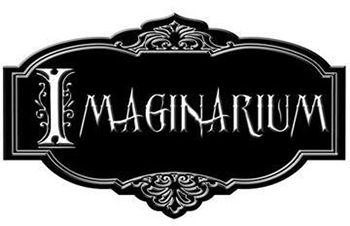
Imaginarium Convention

International Creative Writing Conference

The Creativity Workshop in Florence
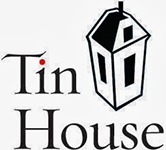
Tin House Summer Writers’ Workshop
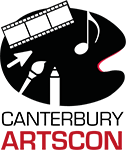
Canterbury Arts Conference
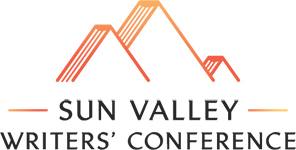
Sun Valley Writers’ Conference

The Creativity Workshop In Barcelona
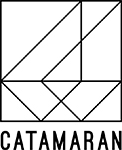
Catamaran Writing Conference
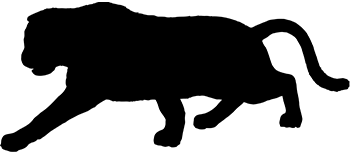
The Leopardi Writing Conference

Napa Valley Writers Conference

Sitka Writing Adventure
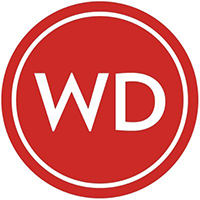
Writer’s Digest Conference
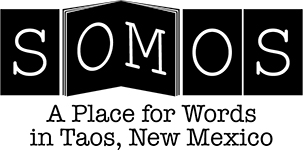
Taos Writers Conference

Florida Authors and Publishers Association Annual Conference

Taylor University’s Professional Writers’ Conference
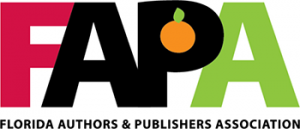
FAPA Conference
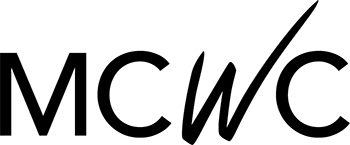
Mendocino Coast Writers’ Conference

The Creativity Workshop in New York

AWP Nonfiction Intensive
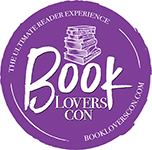

Book Lovers Con 2022

When Words Collide
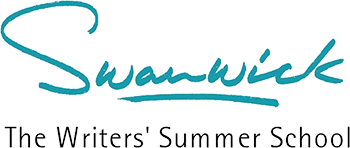
Swanwick Writers’ Summer School
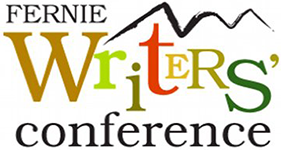
Fernie Writers’ Conference

Reading, Writing and Applied Linguistics In Dubai
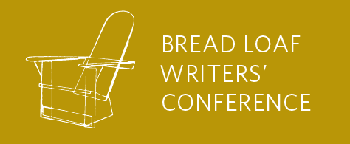
Bread Loaf Environmental Writers’ Conference
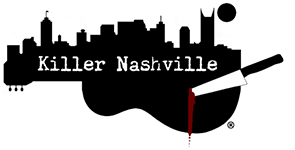
Nashville’s 16th Annual Writers’ Conference
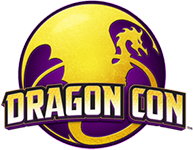
Melbourne Writers Festival
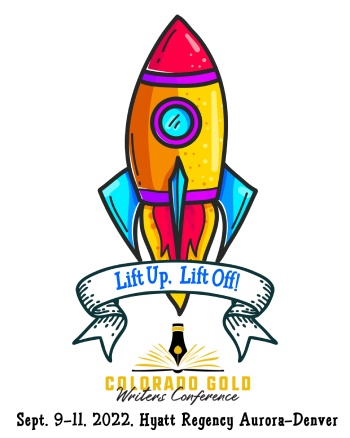
Rocky Mountain Fiction Writers

Milford Writer’s Workshop

Becoming a Master Writer
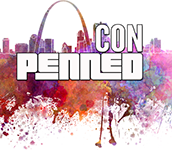
Creatures, Crimes & Creativity Con

Flathead River Writers Conference
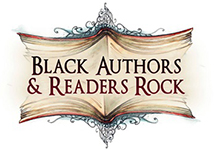
The Black Authors & Readers Rock Conference (BARR)

Next Chapter Con

Bookgardan: A Year’s Sustenance for Women Writers
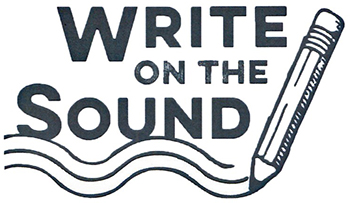
Write on the Sound Writers’ Conference

Omega Writers Conference

The DFW Writers Conference

The Heartland Fall Forum

Writing Sisters Summit in the Hills
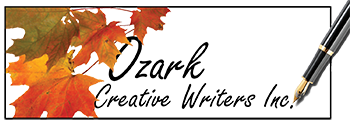
Ozark Creative Writers Conference
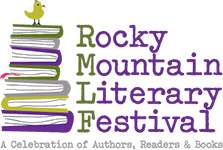
Rocky Mountain Literary Festival
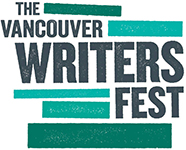
The Vancouver Writers Festival

Western Literature Association Conference

Moonlight & Magnolias Conference
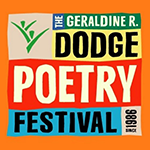
Geraldine R. Dodge Poetry Festival
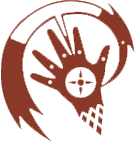
Women Writing the West Annual Conference
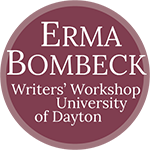
Erma Bombeck Writers’ Workshop

Writer’s Digest Novel Writing Conference
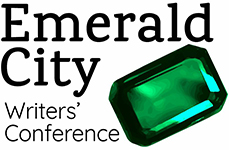
Emerald City Writers’ Conference

Surrey International Writers Conference

Florida Writers Conference
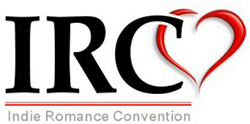
Indie Romance Convention

Medical Writing & Communication Conference
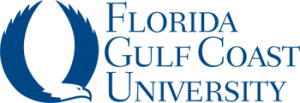
Sanibel Island Writers Conference
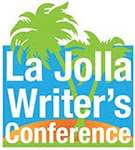
La Jolla Writers Conference
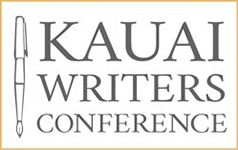
Kauai Writers Conference

International Conference on Reading, Writing and Applied Linguistics

The Belize Writers’ Conference
In your journey of becoming the next best selling author, engaging in writing conferences can be of great reward. Don’t miss out and sign up now!
Read more here.
The Comprehensive List of 2024 Writing Contests
The 2024 International Book Fairs Calendar
Amazing Writing Retreats to Attend in 2024
Leave a Reply Cancel reply
Save my name, email, and website in this browser for the next time I comment.
Currently you have JavaScript disabled. In order to post comments, please make sure JavaScript and Cookies are enabled, and reload the page. Click here for instructions on how to enable JavaScript in your browser.

Kotobee is the complete end-to-end ebook solution for you and your business. Export multiple formats. Deliver securely.
Create, publish, and sell ebooks with ease
Kotobee es la solución completa de ebooks de extremo a extremo para usted y su empresa.
Cree, publique y venda libros electrónicos con facilidad

Recent Posts
- How to Edit a Book for Publishing: Tips & Best Practices
- Book Royalties: What They Are and How to Earn the Best Rates
- Game-Based Learning: What It Is, and How to Apply It
- How to Publish a Book for Free and Maximize Your Profit
- How to Become a Best-Selling Author: 5 Secrets for Success
- Entries feed
- Comments feed
- WordPress.org
- Skip to Main
- Program of Study
Course Offerings
Creative writing (2022 - 2024).
In addition to the on-campus creative writing courses offered throughout the year, special January term and summer programs offer students a chance to study intensively and generate new writing in Florence, New York, and Paris.
Creative Writing: Introduction to Prose and Poetry CRWRI-UA 815 Formerly Creative Writing: Introduction to Fiction and Poetry. Identical to CRWRI-UA 9815. Not repeatable for credit. Workshop. Offered in fall, winter, spring, and summer. 4 points. An exciting introduction to the basic elements of poetry and prose, with in-class writing, take-home reading and writing assignments, and substantive discussions of craft. Structured as a workshop: students receive feedback from their instructor and their fellow writers in a roundtable setting and should be prepared to offer their classmates responses to their work.
Intermediate Workshops in Fiction, Poetry, and Creative Nonfiction CRWRI-UA 816 (Intermediate Fiction Workshop), CRWRI-UA 817 (Intermediate Poetry Workshop), CRWRI-UA 825 (Intermediate Creative Nonfiction Workshop) Prerequisite for Fiction : Creative Writing: Introduction to Prose and Poetry (CRWRI-UA 815), or Creative Writing (CRWRI-UA 9815), or Writers in New York: Fiction (CRWRI-UA 818), or Writers in New York: Poetry (CRWRI-UA 819), or Writers in New York: Creative Nonfiction (CRWRI-UA 835), or Writers in Paris: Fiction (CRWRI-UA 9818), or Writers in Paris: Poetry (CRWRI-UA 9819), or Writers in Florence: Fiction (CRWRI-UA 9828), or Writers in Florence: Poetry (CRWRI-UA 9829), or Intensive Seminar in Fiction (CRWRI-UA 861; formerly Master Class in Fiction, CRWRI-UA 860), or equivalent. Workshop. Offered in fall, winter, spring, and summer. 4 points. Prerequisite for Poetry : Creative Writing: Introduction to Prose and Poetry (CRWRI-UA 815), or Creative Writing (CRWRI-UA 9815), or Writers in New York: Fiction (CRWRI-UA 818), or Writers in New York: Poetry (CRWRI-UA 819), or Writers in New York: Creative Nonfiction (CRWRI-UA 835), or Writers in Paris: Fiction (CRWRI-UA 9818), or Writers in Paris: Poetry (CRWRI-UA 9819), or Writers in Florence: Fiction (CRWRI-UA 9828), or Writers in Florence: Poetry (CRWRI-UA 9829), or Intensive Seminar in Poetry (CRWRI-UA 862; formerly Master Class in Poetry, CRWRI-UA 870), or equivalent. Workshop. Offered in fall, spring, and summer. 4 points. Prerequisite for Creative Nonfiction : Creative Writing: Introduction to Prose and Poetry (CRWRI-UA 815), or Creative Writing (CRWRI-UA 9815), or Writers in New York: Fiction (CRWRI-UA 818), or Writers in New York: Poetry (CRWRI-UA 819), or Writers in New York: Creative Nonfiction (CRWRI-UA 835), or Writers in Paris: Fiction (CRWRI-UA 9818), or Writers in Paris: Poetry (CRWRI-UA 9819), or Writers in Florence: Fiction (CRWRI-UA 9828), or Writers in Florence: Poetry (CRWRI-UA 9829), or Intensive Seminar in Creative Nonfiction (CRWRI-UA 863; formerly Master Class in Creative Nonfiction, CRWRI-UA 880), or equivalent. Workshop. Offered in fall and spring. 4 points. Offer an opportunity to continue the pursuit of writing at the intermediate level. Integrate in-depth craft discussions and extensive outside reading to deepen students' understanding of their chosen genre and broaden their knowledge of the evolution of literary forms and techniques. Each may be repeated three times for credit.
Writers in New York: Fiction, Poetry, or Creative Nonfiction CRWRI-UA 818 (Writers in New York: Fiction), CRWRI-UA 819 (Writers in New York: Poetry), CRWRI-UA 835 (Writers in New York: Creative Nonfiction) Application required. Workshop. Offered in the summer. 8 points per course. Offer poets and fiction writers an opportunity to develop their craft while living the writer's life in Greenwich Village. Students participate in daily workshops and craft classes, are mentored by accomplished professional writers, and attend readings, lectures, panel discussions, and seminars led by New York-based writers and editors. Assignments encourage immersion in the city. Students work intensively to generate new writing and also attend a lively series of readings, lectures, literary walking tours, and special events. May be repeated once for credit.
Advanced Workshops in Fiction, Poetry, and Creative Nonfiction CRWRI-UA 820 (Advanced Fiction Workshop), CRWRI-UA 830 (Advanced Poetry Workshop), CRWRI-UA 850 (Advanced Creative Nonfiction Workshop) Prerequisite for Fiction : Intermediate Fiction Workshop (CRWRI-UA 816), or Writers in New York: Fiction (CRWRI-UA 818), or Writers in Paris: Fiction (CRWRI-UA 9818), or Writers in Florence: Fiction (CRWRI-UA 9828), or Intensive Seminar in Fiction (CRWRI-UA 861; formerly Master Class in Fiction, CRWRI-UA 860), or equivalent. Workshop. Offered in fall and spring. 4 points. Prerequisite for Poetry : Intermediate Poetry Workshop (CRWRI-UA 817), or Writers in New York: Poetry (CRWRI-UA 819), or Writers in Paris: Poetry (CRWRI-UA 9819), or Writers in Florence: Poetry (CRWRI-UA 9829), or Intensive Seminar in Poetry (CRWRI-UA 862; formerly Master Class in Poetry, CRWRI-UA 870), or equivalent. Workshop. Offered in fall and spring. 4 points. Prerequisite for Creative Nonfiction : Intermediate Creative Nonfiction Workshop (CRWRI-UA 825), or Writers in New York: Creative Nonfiction (CRWRI-UA 835), or Intensive Seminar in Creative Nonfiction (CRWRI-UA 863; formerly Master Class in Creative Nonfiction, CRWRI-UA 880), or equivalent. Workshop. Offered in fall and spring. 4 points. Provide students with the opportunity to hone their individual voices and experiment with different aesthetic strategies in genre-specific workshops taught by eminent writers in the field. Focus on revision techniques, the development of sustainable writing processes, and the broadening of students' knowledge of classical and contemporary masters. Each workshop has a distinct emphasis and area of exploration; course descriptions are available online prior to registration. Each may be repeated three times for credit.
Intensive Seminars in Fiction, Poetry, and Creative Nonfiction CRWRI-UA 861 Intensive Seminar in Fiction, CRWRI-UA 862 Intensive Seminar in Poetry, CRWRI-UA 863 Intensive Seminar in Creative Nonfiction Prerequisite for Fiction : Creative Writing: Introduction to Prose and Poetry (CRWRI-UA 815), or Creative Writing (CRWRI-UA 9815), or Intermediate Fiction Workshop (CRWRI-UA 816), or Writers in New York: Fiction (CRWRI-UA 818), or Writers in New York: Poetry (CRWRI-UA 819), or Writers in New York: Creative Nonfiction (CRWRI-UA 835) or Writers in Paris: Fiction (CRWRI-UA 9818), or Writers in Paris: Poetry (CRWRI-UA 9819), or Writers in Florence: Fiction (CRWRI-UA 9828), or Writers in Florence: Poetry (CRWRI-UA 9829), or Advanced Fiction Workshop (CRWRI-UA 820), or equivalent. Recommended prerequisite: Advanced Fiction (CRWRI-UA 820). Application required. Workshop. Offered in fall and spring. 4 points. Prerequisite for Poetry : Creative Writing: Introduction to Prose and Poetry (CRWRI-UA 815), or Creative Writing (CRWRI-UA 9815), or Intermediate Poetry Workshop (CRWRI-UA 817), or Writers in New York: Fiction (CRWRI-UA 818), or Writers in New York: Poetry (CRWRI-UA 819), or Writers in New York: Creative Nonfiction (CRWRI-UA 835), or Writers in Paris: Fiction (CRWRI-UA 9818), or Writers in Paris: Poetry (CRWRI-UA 9819), or Writers in Florence: Fiction (CRWRI-UA 9828), or Writers in Florence: Poetry (CRWRI-UA 9829), or Advanced Poetry Workshop (CRWRI-UA 830), or equivalent. Recommended prerequisite: Advanced Poetry (CRWRI-UA 830). Application required. Workshop. Offered in fall and spring. 4 points. Prerequisite for Creative Nonfiction : Creative Writing: Introduction to Prose and Poetry (CRWRI-UA 815), or Creative Writing (CRWRI-UA 9815), or Writers in New York: Fiction (CRWRI-UA 818), or Writers in New York: Poetry (CRWRI-UA 819), or Writers in New York: Creative Nonfiction (CRWRI-UA 835), or Writers in Paris: Fiction (CRWRI-UA 9818), or Writers in Paris: Poetry (CRWRI-UA 9819), or Writers in Florence: Fiction (CRWRI-UA 9828), or Writers in Florence: Poetry (CRWRI-UA 9829), or Intermediate Creative Nonfiction Workshop (CRWRI-UA 825), or Advanced Creative Nonfiction Workshop (CRWRI-UA 850), or equivalent. Recommended prerequisite: Advanced Creative Nonfiction (CRWRI-UA 850). Application required. Workshop. Offered in fall and spring. 4 points. Taught by acclaimed poets and prose writers to select NYU undergraduates. Application is required for admission. Each is limited to 12 students and provides intensive mentoring and guidance for serious and talented undergraduate writers. Full details of these courses and their applications are shared on the program’s undergraduate listserv; students are added to the listserv when they enroll in Creative Writing: Introduction to Prose and Poetry (CRWRI-UA 815). They may also contact [email protected] for information.
Creative Writing Internship CRWRI-UA 980 Prerequisites: a declared minor in creative writing, two CRWRI-UA courses or the equivalent, and approval of the program. An internship may not be used to fulfill the minimum requirements of the minor. For full policies, registration procedures, and the application form, please visit the program's website. Offered in fall, spring, and summer. 2 points. Requires 8 to 12 hours of work per week. Must be with an external (non-NYU) organization related to creative writing (e.g., a literary agency, magazine, publisher, or outreach program) and should involve some substantive aspect of writerly work. Requires a final five- to seven-page report, and an evaluation is solicited from the intern's supervisor. Grading is pass/fail. Students are responsible for finding the internship and receiving program approval before the end of the Albert add/drop period each term.
Writers in Paris: Fiction or Poetry CRWRI-UA 9818 (Writers in Paris: Fiction), CRWRI-UA 9819 (Writers in Paris: Poetry) Application required. Workshop. Offered in the summer. 8 points per course. Offer poets and fiction writers an opportunity to experience the writer's life in Paris. Students participate in daily workshops and craft classes, are mentored by accomplished professional writers, and attend readings and special seminars led by Paris-based writers and editors. Assignments encourage immersion in the city. Students work intensively to generate new writing and also attend a lively series of readings, lectures, literary walking tours, and special events. May be repeated once for credit.
Writers in Florence: Fiction or Poetry CRWRI-UA 9828 (Writers in Florence: Fiction), CRWRI-UA 9829 (Writers in Florence: Poetry) Application required. Workshop. Offered in the summer. 8 points per course. A literary retreat in Florence for poets and fiction writers. Students participate in daily workshops and craft classes, are mentored by acclaimed writers, and attend readings and special seminars on all aspects of the writer's life. Assignments are designed to encourage serious literary study, as well as immersion in the local landscape, and students are expected to work intensively to generate new writing. May be repeated once for credit.
Creative Writing 2022
- Edit source
- View history
Wiki page for Academic Jobs in Creative Writing advertised during the 2021-2022 hiring season. This page is for jobs that begin in 2022.
Next year's page: Creative Writing 2023
Last year's page: Creative Writing 2021
See also: English Literature 2021-2022
- 1 Instructions
- 2 RECENT ACTIVITY on Creative Writing 2022 Wiki
- 3.1 FICTION: Full-Time / Tenure Track Positions:
- 3.2 NONFICTION: Full-Time / Tenure Track Positions:
- 3.3 POETRY: Full-Time / Tenure Track Positions:
- 3.4 OPEN GENRE: Full-Time / Tenure Track Positions:
- 3.5 Visiting / Limited-Term Positions:
- 3.6 Administrative Positions:
- 4 FICTION - Full-Time / Tenure-Track Positions
- 5 NON-FICTION - Full-Time / Tenure-Track Positions
- 6 POETRY - Full-Time / Tenure-Track Positions
- 7 OPEN / MIXED GENRE - Full-Time / Tenure-Track Positions
- 8 VISITING POSITIONS / LIMITED-TERM APPOINTMENTS / FELLOWSHIPS
- 9 ADMINISTRATIVE POSITIONS
- 10 WHO IS USING THIS WIKI?
- 11 WORD ON THE STREET
Instructions [ ]
Please add jobs in the following format and order them chronologically by posting date (newest postings at the top).
- Example University. Position Title. Specializations. Deadline. TT/NT. FT/PT. Link to Job ad(s).
TT/NT: Tenure-track or Non-tenure track.
FT/PT: Full-Time or Part-Time
PD: Post-doc
For the sake of user-friendliness, please do not add more detailed content of the job ad on this page. (This is a departure from previous years, when these pages tended to become difficult to navigate. The new guidelines are modeled on more user-friendly Academic Wiki pages serving other disciplines.)
Add updates to the end of each entry as they come in: Additional materials requested, video interview scheduled, campus visit scheduled, offer extended, offer accepted, rejection received.
Please post "Have you heard?" questions below, under Word on the Street .
RECENT ACTIVITY on Creative Writing 2022 Wiki [ ]
Subscribe to RSS Feed for This Page : http://academicjobs.wikia.com/wiki/Creative_Writing_2022?feed=rss&action=history
WHO GOT THE JOB? [ ]
Fiction: full-time / tenure track positions: [ ].
Saint Louis University: Ron A. Austin
Vanderbilt University: ZZ Packer and Lydia Conklin
Colorado State University: Nina McConigley
University of Georgia, Associate Prose Editor: Maggie Su
Valdosta State University: Eric Blix
Belmont University: Jennifer Buentello
Austin Peay State University: RS Deeren
Lycoming College: Phoebe Wagner (inside hire)
University of South Carolina: Claire Jimenez
Indiana University: Angela Jackson-Brown
Penn State University: Samuel Kolawole
University of South Florida: Jake Wolff
University of North Texas: Daniel Pena
University of Central Florida: Peter Kispert and Blake Sanz
University of Minnesota: Aamina Ahmad and Megan Giddings
Virginia Commonwealth University: SJ Sindu
NONFICTION: Full-Time / Tenure Track Positions: [ ]
Colorado State University: Jaquira Díaz
Northwestern: Sarah Schulman
University of North Texas: Sarah Perry
Warren Wilson: Alysia Sawchyn
University of Alabama: Taylor Brorby (starting Aug 2023)
Denison University: Melissa Faliveno
University of British Columbia: Alex Marzano-Lesnevich (starting July 2023)
POETRY: Full-Time / Tenure Track Positions: [ ]
Elon University: Shaina Phenix
SUNY New Paltz: Timothy Liu
Clemson: Su Cho
University of Montana: Brian Blanchfield
University of North Florida: Jessica Q. Stark
University of Wisconsin Madison: Nate Marshall, Erika Meitner, Alison C. Rollins, Paul Tran
Ashland University (and Ashland Poetry Press): Chuck Carlise
North Carolina State: Sumita Chakraborty and Meg Day
Marshall University: Sara Henning
Carnegie Mellon University: Camille Rankine
University of Iowa: Kaveh Akbar, Paige Lewis
Naropa University: Valerie Hsiung
OPEN GENRE: Full-Time / Tenure Track Positions: [ ]
University of Toledo: Dustin Pearson
Butler University: Natalie Lima
University of Lynchburg: Kelly Ann Jacobson
Pitt-Greensburg: David Newman (inside/spousal hire)
Carlow University: Sarah Shotland
University of North Carolina Wilmington: Michelle Donahue
Eastern New Mexico University: Megan Arlett
Central Washington University: Ali Unal
Visiting / Limited-Term Positions: [ ]
Oklahoma State University: Laura Minor
Franklin College: Emily Banks
Oberlin College: Silvia Park and Sam Cohen
University of North Texas: Kimberly Grey
Moravian University: Liz Gray (Chang)
Administrative Positions: [ ]
Interlochen Center for the Arts: Karyna McGlynn
Susquehanna University: Jessica Masterton
FICTION - Full-Time / Tenure-Track Positions [ ]
- Bowling Green State University (Bowling Green, OH). Assistant Professor, Creative Writing (Fiction). TT. FT. Posted 2/21/2022. Deadline 3/18/2022. https://www.higheredjobs.com/search/details.cfm?JobCode=177814815 Zoom Interview scheduled 3/30.x2; Campus Interview scheduled 4/27.
- Loyola University Chicago (Chicago, IL). Assistant Professor, Creative Writing (Fiction). TT. FT. Review begins 2/25/. Update: Rejection—No Interview. 5/10 https://www.careers.luc.edu/postings/18855?fbclid=IwAR03RhszkrMU7cAr9o6JhSXSuo8XBwRRbVeW87zm13D_gGPekGfONA5N-YQ
- University of Winnipeg (Winnipeg, Manitoba, Canada). Assistant Professor in Creative Writing (fiction). TT. FT. Posted 1/14/2022. Deadline 2/18/2022. https://www.academicwork.ca/jobs/tenure-track-assistant-professor-in-creative-writing-university-of-winnipeg 4/13 Any updates?
- Virginia Commonwealth University (Richmond, VA). Assistant Professor - Writing of Fiction. 1 Feb. 2022. TT. FT. https://www.higheredjobs.com/faculty/details.cfm?JobCode=177766842&Title=Assistant%20Professor%20%2D%20Writing%20of%20fiction
- Colorado State University (Fort Collins, CO). Assistant Professor of English in Fiction Writing. 14 Feb 2022. TT. FT. https://jobs.colostate.edu/postings/97252 Update: Semifinalists notified 2/28; finalists notified 3/14. Update: Offer extended
- York University (Toronto, Ontario). Assistant/Associate Professor. 22 Nov. 2021. TT. FT. http://webapps.yorku.ca/academichiringviewer/viewposition.jsp?positionnumber=2237 Update: Letters of Recommendation requested 2/10; campus visits scheduled 03/30
- Oregon State University (Corvallis, OR, USA). Open Rank Search in Fiction. 18 Feb 2022 TT. FT. https://jobs.oregonstate.edu/postings/111721 Update: Zoom interview scheduled 3/16 Update: offer extended and accepted
- University of Nebraska at Kearney (Kearney, NE) - Assistant Professor, TT, Fiction. undergraduate & graduate. Jan 20, 2022 https://unk.peopleadmin.com/postings/4172 Update: first round interviews scheduled week of 2/10
- Wichita State University (Wichita, KS). Assistant Professor in Fiction Writing. 21 Jan. 2022. TT. FT. https://jobs.wichita.edu/postings/24423 Update: Zoom Interview Scheduled 2/4
- Butler University (Indianapolis, IN, USA). Assistant Professor -- Creative Writing, Fiction and/or Creative Nonfiction. FT. TT. Review begins 10 Jan. 2022, open until filled. https://jobs.chronicle.com/job/417278/tenure-track-assistant-professor-of-creative-writing-department-of-english/ Update: Request for additional materials 1/11 x 3, Interview Request 2/7. Interview scheduled for 2/14. Rejection after Zoom interview 2/25 x2
- University of Central Florida (Orlando, FL, USA). Assistant Professor of English (Fiction). 6 Jan. 2022. FT.TT. https://jobs.ucf.edu/en-us/job/501340/assistant-professor-creative-writing Update: interview request 1/12 --any updates after interviews?? Virtual on campus interviews held earlier this month. Any word? Very unofficial insight, but saw something on social media that made it seem like an offer had been accepted. 4/5: update from committee: hopefully letters have all gone out thanking everyone for applying. We were able to hire two people from the search.
- University of North Dakota (Grand Forks, ND, USA). Assistant Professor of English. 3 Jan. 2022. FT. TT. https://jobs.chronicle.com/job/411307/assistant-professor-of-english/ Update: Zoom interview 2/9
- Columbia University School of the Arts (New York, NY, USA). Assistant Professor of Writing (Fiction). 31 Dec 2021. TT. FT. https://apply.interfolio.com/98599 Update: Zoom interview 2/26
- Johns Hopkins University (Baltimore, MD). Open Rank Search in Fiction. 31 Oct 2021. TT. FT. https://facultyjobs.jhu.edu/Home/Position?reqId=A-91961-3 Update: Additional materials requested 12/9 - They have opened back up the applications today. Does anyone know what's going on? 12/14. https://www.higheredjobs.com/faculty/details.cfm?JobCode=177732347&Title=Open%2DRank%20Search%20in%20Fiction
- Has anyone heard from them? Updates appreciated! First round Zoom scheduled 12/10
- Gonzaga University (Spokane, WA, USA). Assistant Professor-English (Fiction Writing). 29 Oct 2021. TT . https://gonzaga.peopleadmin.com/postings/16244 Update: Video interview scheduled 11/22; campus interviews mid-Jan.
- Valdosta State University (Valdosta, GA, USA). Assistant Professor - English (Creative Writing - Fiction). 28 Oct 2021. TT. https://jobs.chronicle.com/job/384704/assistant-professor-english-creative-writing-fiction-/ - Update: Video interview scheduled 11/26 x 3 / Campus Visit Scheduled 12/16 / Offer made and accepted
- Saint Louis University (Saint Louis, MO, USA). Assistant Professor of Creative Writing, Fiction. 15 Nov 2021. TT. https://slu.wd5.myworkdayjobs.com/en-US/Careers/job/Adorjan-Hall/Tenure-Track-Assistant-Professor--Creative-Writing_2021-03338 Email Rejection/No Interview (12/17) Update: This position has been filled.
- University of Georgia (Athens, GA, USA). Associate Prose Editor, The Georgia Review . 30 Sept 2021. NT/FT. Update: Video interviews scheduled 10/13. In-person interview scheduled 11/8. https://www.ugajobsearch.com/postings/217995 . This position has been filled.
- Boise State University (Boise, ID, USA). Assistant Professor of English in fiction. 8 Oct 2021. TT. https://jobs.boisestate.edu/en-us/job/496024/assistant-professor . Any news?
- University of Minnesota (Minneapolis, MN, USA). Assistant Professor of Creative Writing Fiction. 15 Oct 2021. TT. https://humanresources.umn.edu/content/find-job (job ID #342841). - Update: Additional materials (letters of rec) requested 11/4 - Has anyone heard more from them?? - responding: no, also had letters requested 11/4 - (Thanks so much for responding; suspense is killing me) -responding, - Update: Zoom Interview request 11/29
- University of Denver (Denver, CO, USA). Assistant Professor of Creative Writing and Literary Studies. 27 Oct 2021. TT. https://jobs.du.edu/en-us/job/494314/assistant-professor-creative-writing-and-literary-studies Update: Additional materials (writing sample) requested 11/23: Zoom interview request 12/10 campus visit scheduled
- Lycoming College (Williamsport, PA, USA). Assistant Professor in Creative Writing: Fiction. 1 Nov. 2021. TT. https://jobs.chronicle.com/job/381446/assistant-professor-in-creative-writing-fiction/ - Update: Video interview scheduled 11/8
- Belmont University (Nashville, TN, USA). Assistant Professor of English (Creative Writing - Fiction). Immediate. TT. https://www.higheredjobs.com/faculty/details.cfm?JobCode=177612377&Title=Assistant%20Professor%20of%20English%20%28Creative%20Writing%20%2D%20Fiction%29 announcement on Twitter that the position has been filled
- University of South Carolina (Columbia, SC, USA). Open Rank in Creative Writing/Fiction, Joint with African American Studies. 4 Nov. 2021. TT. https://sc.edu/study/colleges_schools/artsandsciences/english_language_and_literature/my_english/documents/job_ad_creative_writing_fiction_2021_b.pdf
- Coe College (Cedar Rapids, IA, USA). Assistant Professor of Creative Writing-Fiction. 12 Nov 2021. TT. https://www.coe.edu/why-coe/discover-coe/human-resources/careers/faculty-employment-opportunities/assistant-professor-creative-writing - Any updates? First-round interview (Zoom) scheduled 12/17; offer made and accepted (per rejection email)
- Austin Peay State University (Clarksville, TN, USA). Assistant Professor of Creative Writing-Fiction. 10 Sept. 2021. TT. https://apsu.peopleadmin.com/postings/13390 Update: first-round interview scheduled 11/29; Campus interview scheduled 1/10; Job offered and accepted 1/27
- Clayton State University (Morrow, GA). Assistant Professor of English, Creative Writing (Fiction). TT. https://www.higheredjobs.com/faculty/details.cfm?JobCode=177688274&Title=Assistant%20Professor%20of%20English%2C%20Creative%20Writing%3A%20Fiction%2C%20Tenure%2DTrack Update: 3/15 Video Interview scheduled
- Texas A&M University (Corpus Christi, TX). Assistant Professor, English (Literary and Creative Writing Studies). 1 Dec. 2021. TT. https://jobs.chronicle.com/job/402330/assistant-professor-english-literary-and-creative-writing-studies-/ Update: 12/13 Zoom interview scheduled; 12/20 Zoom interview scheduled; 2/3 virtual campus visit scheduled
- Indiana University (Bloomington, IN). Assistant Professor (Fiction Writer). 22 Nov. 2021. TT. https://indiana.peopleadmin.com/postings/11801 Update: Rejection via email 12/19
- Hope College (Holland, MI). English – Assistant Professor, Creative Writing—Fiction. 23 Nov. 2021. TT. https://jobs.chronicle.com/job/412985/english-assistant-professor/ Update: Zoom Interview Scheduled 12/13
- Vanderbilt University - Assistant Professor, Fiction Update: Campus visits complete, Offer accepted? PREVIOUS UPDATE IS FALSE: email received 12/16, search still ongoing, materials being reviewed; on track for campus invites by close of December. UPDATE 12/27: rejection letter received. Update: Hired Lydia Conklin & ZZ Packer
- University of North Texas - Assistant Professor, Fiction Update: First-Round Scheduled 12/3; rejection via email 1/18. Update: Offer extended.
NON-FICTION - Full-Time / Tenure-Track Positions [ ]
- State University of New York at Oswego. Assistant Professor of Creative Writing (Creative Nonfiction). Open until filled. TT. FT. https://oswego.interviewexchange.com/jobofferdetails.jsp?JOBID=144654 Any word? Interview scheduled on 5/5 for mid-May.
- Brown University (Providence, RI) Lecturer in Journalism. Review begins 15 November 2021, ongoing until filled. https://jobs.chronicle.com/job/405165/lecturer-journalism-/
- University of California San Diego (San Diego, CA, USA). Assistant Professor in Creative Writing/Nonfiction Eco-Writing. TT. 15 Dec. 2022. https://apol-recruit.ucsd.edu/JPF02986 Updates: Zoom interviews scheduled 1/21 [2x]. Anyone heard anything new? Yes, campus visits requested 2/8
- University of Tampa (Tampa, FL, USA). Assistant Professor of English and Writing in Creative Nonfiction. TT. Review begins 30 Nov 2021. https://utampa.wd1.myworkdayjobs.com/en-US/Faculty/job/Tampa/Assistant-Professor-of-English-and-Writing_R0005863 Updates: Preliminary Zoom Interviews Scheduled 1/24.
- Colorado State University (Fort Collins, CO, USA). Assistant Professor of English in Creative Nonfiction. 31 Oct 2021. TT. https://jobs.colostate.edu/postings/92772 Updates: Zoom interviews scheduled 11/18 Any updates? Update: Offer extended. Accepted 2/28.
- University of Georgia (Athens, GA, USA). Associate Prose Editor, The Georgia Review . 30 Sept 2021. NT/FT. https://www.ugajobsearch.com/postings/217995 .
- University of Alabama (Tuscaloosa, AL, USA). Assistant Professor of English in creative non-fiction. 15 Oct 2021. TT. https://facultyjobs.ua.edu/postings/49296 . Update: Rejection email sent to those not moving on past application. // Zoom interview scheduled 12/1 x 2 // Rejection after Zoom interview 12/20 x2
- Denison University (Granville, OH, USA). Assistant Professor of English in creative non-fiction. 18 Oct 2021. TT. https://employment.denison.edu/postings/3338 . Updates: Request for additional materials: 11/1 // Zoom interview scheduled 11/22.
- Western Washington University (Bellingham, WA, USA). Assistant Professor of English in creative non-fiction. 22 Oct 2021. TT. https://employment.wwu.edu/en-us/job/498815/assistant-professor-of-english-creative-writing-creative-nonfiction . Updates: Request for additional materials 11/10 // Zoom interview scheduled 12/17 // Rejection (no interview) 12/20 // Campus interviews scheduled 1/15 // Rejection (after interview) 1/15 // Offer made
- UCLA (Los Angeles, CA, USA). Creative Nonfiction Junior Faculty. 1 Nov. 2021. https://recruit.apo.ucla.edu/JPF06830 . Updates : Preliminary interview scheduled 12/8 any Updates: Rejection 3/10 (no interview). Offer made 4/8
- Naropa University (Boulder, CO). Creative Writing and Poetics, Core Faculty, 30 Nov 2021, FT, https://naropa.csod.com/ux/ats/careersite/1/home/requisition/229?c=naropa request for Zoom interview 2/17. (Virtual) campus visit invitation 4/21.
- Warren Wilson College (Asheville, NC, USA). Professor of Creative Writing. 11 Oct 2021. Extended contract (FT, continuing, appointment; unranked;. https://warren-wilson.breezy.hr/p/34ceb81522de-professor-of-creative-writing Updates: Preliminary interview scheduled 11/1 (phone) // Campus visit scheduled 11/22. Received form rejection from HR 2/10, seems like someone has accepted an offer.
- Northwestern University (Evanston, IL, USA). Open Rank Professor in Creative Nonfiction. 01 Dec 2021. NT/FT. https://english.northwestern.edu/people/job-openings.html Update: Campus visit scheduled 1/18 // Rejection after campus visit 2/25
- Utah Valley University (Orem, UT). Assistant Professor of Creative Writing. 12 Dec 2021. TT. https://www.higheredjobs.com/faculty/details.cfm?JobCode=177687548&Title=Faculty%2C%20Tenure%20Track%20%2D%20Creative%20Writing Updates: Zoom interviews scheduled 1/7 x3; Campus visits scheduled 1/24 ANY NEWS?
- Flagler College (St. Augustine, FL). Assistant Professor of English. 31 Dec. 2021. 4/4 load, TT. https://apply.interfolio.com/97612 [1] Updates: Zoom interviews scheduled 1/21 x 2// On Campus Interviews Scheduled 1/7
POETRY - Full-Time / Tenure-Track Positions [ ]
- James Madison University (Harrisonburg, VA). Assistant/Associate Director, Furious Flower Poetry Center. TT. FT. Posted 2/22/2022. Deadline 3/24/2022. https://www.higheredjobs.com/search/details.cfm?JobCode=177817354 Update : Rejection, no interview (5/16).
- Marshall University (Huntington, WV). Assistant Professor of English with a specialization in creative writing - poetry. 15 Feb. TT. https://www.higheredjobs.com/faculty/details.cfm?JobCode=177788038&Title=Assistant%20Professor
- University of Illinois, Springfield (Springfield, IL). Assistant Professor, English/Creative Writing. TT. https://jobs.uis.edu/job-board/job-details?jobID=155564&job=assistant-professor-english-creative-writing-poetry-155564 Update : request for semi-finalist Zoom interview 2/24. Update : campus visit invites extended.
- University of Wisconsin - Madison (Madison, WI, USA). Assistant, Associate, or Full Professor of English in Creative Writing (Poetry). Deadline 28 Nov 2021. TT. https://jobs.hr.wisc.edu/en-us/job/510991/professor-in-english Update : Campus Visit Scheduled 1/6/22 QUESTION (4/27): does anyone know how this turned out? It looks like they just sent out another call for applications for this same position? Are they still trying to fill the post? Thanks!
- Concordia University (Montreal QC, Canada). Assistant Professor, Creative Writing: Poetry. Deadline: 11/15/21: https://www.concordia.ca/artsci/about/jobs/tenure-track-appointments/2021/assistant-professor-creative-writing-poetry.html Update : Request for additional materials 2/3/22, rejection with news of offer to candidate 6/15
- California State University, East Bay (Bay Area, CA). Assistant or Associate Professor of English (Creative Writing--Poetry and Literature). Deadline 10/1/21: http://csucareers.calstate.edu/detail.aspx?pid=87066&source=IND Update: Phone Interview Request ( Nov 19, 2021); Campus Visit invitation (1/20/22)
- Tulane University (New Orleans, LA, USA). Assistant Professor, Creative Writing-Poetry & Poetics. Deadline: 11/15/21: https://apply.interfolio.com/95186 Update: Letters requested (12/1); Zoom interview request (12/15) Offer made (2/23)
- Elon University (Elon, NC, USA). Assistant Professor of English (Creative Writing/Poetry). 16 Nov 2021. TT. https://jobs.chronicle.com/job/384367/assistant-professor-of-english-creative-writing-poetry-tenure-track/ Has anyone heard? Rejection, no interview (2/21). Update: Campus visits scheduled for Feb/ March.
- University of North Florida (Jacksonville, FL, USA). Assistant Professor of Creative Writing. 22 Oct 2021. TT. https://www.unfjobs.org/postings/17819 Updates: Interviews scheduled (06 Nov 2021)
- Boise State University (Boise, ID, USA). Assistant Professor of English in poetry. 8 Oct 2021. TT. https://jobs.boisestate.edu/en-us/job/496032/assistant-professor .
- Kalamazoo College (Kalamazoo, MI, USA). Assistant Professor of English in poetry. 11 Oct 2021. TT. https://www.kzoo.edu/search/index.php?dept=english . Updates: Request for more materials (18 Oct 2021). Rejection, no interview (15 Nov 2021) x3 (21 February 2022). Have you heard? Anyone schedule an interview yet? (8 Dec 2021) Campus visit scheduled for Jan '22 (24 Nov 2021).
- University of California Berkeley (Berkeley, CA, USA). Associate or Full Professor of English in poetry. 15 Oct 2021. TT. https://apptrkr.com/2463450 . Did Updates: Rejection (no interview)
- Clemson University (Clemson, SC, USA). Assistant Professor of English in poetry. 15 Oct 2021. TT. https://apply.interfolio.com/94156 . Updates: Request for more materials (26 Oct. 2021). Zoom interview Requested (19 Nov. 2021)
- Ashland University (Ashland, OH, USA). Assistant Professor of English in American Lit/Poetry. TT. https://jobs.ashland.edu/postings/1192 Updates: Zoom interviews scheduled (3/15)
- University of Montana (Missoula, MT, USA). Assistant/Associate Professor for Creative Writing (Poetry). 1 Dec. 2021. TT. https://jobs.chronicle.com/job/397821/assistant-associate-professor-for-creative-writing-program-poetry-department-of-english-/ . Update : Zoom interview request 2/1.
- George Washington University (Washington, D.C., USA). Assistant Professor of English: Poetry. 29 Nov 2021. TT. https://www.gwu.jobs/postings/87090 Updates: Zoom interviews scheduled (1/13)
- North Carolina State University (Raleigh, NC, USA). Assistant Professor in Creative Writing. Open until filled. https://jobs.ncsu.edu/postings/151220 Updates: Zoom interview scheduled for December; 3/17 Director announced on Twitter that they made 2 hires.
- Webster University (St. Louis, MO, USA). Assistant Professor of English - Poetry. Open until Dec. 10. https://webster.peopleadmin.com/postings/5540 Updates: Campus visits scheduled for Feb. '22.
- SUNY New Paltz (New Paltz, NY, USA). Assistant Professor of English. Open until Oct. 11. Cluster diversity hire: 3 Assistant Professors (tenure-track) in Literature before 1800/Latinx Literature of the U.S./Creative Writing/Rhetoric and Composition. https://www.newpaltz.edu/hr/displayjobdetails.php?id=2430 Updates: Video interview (first round) scheduled on 10/25 for 11/10. Rejection (no interview) 2/2. Campus visits scheduled for 12/1.
- Kenyon College (Gambier, OH, USA). Robert P Hubbard Professor of Poetry (Assistant level). Open until Dec 17. TT. https://careers.kenyon.edu/mob/en-us/job/492782/robert-p-hubbard-professor-of-poetry Updates : Writing sample requested/references contacted on 1/3, initial interviews scheduled. Has anyone heard? Based on the timeline they gave, it seems like campus visits should have happened by now. Q: Any news on this one? A : Just received a formal rejection email stating that they made an offer and it has been accepted (3/23)
- Tufts University (Medford, MA, USA). Professor of the Practice of Poetry (Assistant level). Open until Feb 1. NT. https://apply.interfolio.com/99776 Update: Zoom interviews scheduled (3/7) Rejection, no interview (3/23) Rejection, after 1st interview (3/29)
- Carnegie Mellon University (Pittsburgh, PA). Professor of English - Poetry (Assistant level). Open until Oct 1. TT. https://dossier.interfolio.com/facultysearch/position/75613/apply Updates: Rejection, no interview (2/1). Job talks scheduled.
- Chadron State College (Chadron, NE, USA). Assistant Professor of Creative Writing - Poetry; see "Preferred Qualifications." Open until filled. TT. https://nscs.peopleadmin.com/postings/9184 . Updates: committee will start reviewing applications on Feb. 21. Zoom interview scheduled on 3/29 for 3/31. Campus visit scheduled (4/5).
OPEN / MIXED GENRE - Full-Time / Tenure-Track Positions [ ]
- Central Washington University (Ellensburg, WA). Assistant Professor - Creative Writing Fiction/Creative Nonfiction (2 Positions). FT. TT. https://www.higheredjobs.com/faculty/details.cfm?JobCode=177790707&Title=Assistant%20Professor%20%2D%20Assistant%20Professor%20%2D%20Creative%20Writing%20Fiction%2FCreative%20Nonfiction%20%282%20Positions%29 Does anyone know the teaching load? (Quarter system. I think it's 2/2/2, so 6 courses for the academic year). Any updates? Phone interview scheduled for April. 3/15 Phone interview scheduled. 4/15: finalist invitations scheduled for late April/early May.
- Eastern New Mexico University (Portales, NM). Assistant Professor of English with a specialty in Creative Writing, with the ability to teach multiple genres, particularly poetry. FT. TT. https://www.higheredjobs.com/faculty/details.cfm?JobCode=177791342&Title=Assistant%20Professor%20of%20English Campus visits scheduled for April. 4/6 Question: Did they call or email you for campus visit scheduling?
- Heidelberg University (Tiffin, OH). Assistant Professor of English, specialization in creative writing and rhetoric and composition. FT. TT. https://www.higheredjobs.com/faculty/details.cfm?JobCode=177788554&Title=Assistant%20Professor%20of%20English Zoom interview on 3/25. Campus visit scheduled 4/7 for (May).
- Stockton University (Galloway Township, NJ, USA). Assistant Professor of Creative Writing. "The program welcomes writers of any genre to apply; preference will be given to applicants with experience teaching prose writing." TT. FT. https://jobs.chronicle.com/job/435748/assistant-professor-of-creative-writing-tenure-track-starting-september-1-2022/ (Listing also posted at MLA Job List .) Zoom Interview scheduled 3/24. Invitation for campus visit came 4/14.
- Dominican University of California (San Rafael, CA). Assistant Professor in Creative Writing. FT. TT. Feb. 15 https://www.paycomonline.net/v4/ats/web.php/jobs/ViewJobDetails?job=69003&clientkey=379D25BEB04D4E67539308A7BD902D82 Zoom Interview Scheduled 3/10. Campus visit schedule 3/21 for 4/5.
- The University of Mary Hardin-Baylor ( Belton, TX). Associate Professor/Professor - Creative Writing. FT. TT. https://jobs.chronicle.com/job/432639/associate-professor-professor-creative-writing-fall-2022/ Zoom interview on 3/9.
- Tarleton State University (Stephenville, TX). Assistant Professor of English- Literature and Creative Writing. FT. TT. https://tamus.wd1.myworkdayjobs.com/en-US/TARLETON_External/job/Stephenville-TARLETON/Assistant-Professor-of-English--Literature-and-Creative-Writing_R-044730-1
- Oglethorpe University (Atlanta, GA). Assistant Professor Creative Writing. FT. TT. https://www.paycomonline.net/v4/ats/web.php/jobs/ViewJobDetails?job=50199&clientkey=E89EC0BE36E642B4CF9B1208D8AFD807 any movement on this one?
- Zoom interview. 12/21
- State University of New York Oswego (Oswego, NY, USA). Assistant Professor of English and Graphic Storytelling. FT. Posted 12/10/21. https://www.higheredjobs.com/faculty/details.cfm?JobCode=177728893&Title=Assistant%20Professor%20of%20English%20and%20Graphic%20Storytelling
- University of North Carolina Wilmington (Wilmington, NC). Assistant Professor — Creative Writing, Publishing. In addition to teaching, this position will support the making of Ecotone . FT. TT. 10 January 2022. https://jobs.uncw.edu/postings/22495 Update: first round interviews scheduled for week of 2/14.
- Southwestern Community College District (Chula Vista, CA, USA). Assistant Professor of English. FT. TT. 28 Jan. 2022. https://jobs.swccd.edu/postings/3610
- Belmont Abbey College (Belmont, NC (close to Charlotte). Assistant Professor of English, focusing on any type of Creative Writing. TT and FT. Due: Now. https://belmontabbeycollege.edu/about-us/employment/tenure-track-position-in-english/ interview via zoom 2/11
- United States Air Force Academy (Colorado Springs, CO, USA). Assistant Professor of English and Creative Writing, focusing on war literature. FT, TT. 10 Nov. 2021. https://www.usajobs.gov/GetJob/ViewDetails/617537900 . Update: first-round video interview request 1/7.
- Bennington College (Bennington, VT, USA). Literature Faculty in Creative Writing and Post-Colonial Literature. 15 Sept 2021. FT. http://bennington.recruiterbox.com/jobs/fk0smp4/ . --- Did anyone hear back from them? responding: yes, they've done campus visits <--responding: how do you know? do you have dates? were you one of the visits? responding: it was publicly announced on the writer's IG account. I am not going to name the person as I am not sure how public they want the news to be yet, but the search is over. Rejection, no interview (2/3).
- Westmont College (Santa Barbara, CA, USA). Assistant, Associate, or Full Professor of Communication Studies. 1 Oct 2021. TT. https://www.westmont.edu/office-provost/open-positions . Updates: Request for more materials (27 October 2021)
- University of Toledo (Toledo, OH, USA), Assistant Professor of English in creative writing. 18 Oct 2021. TT. https://utoledo.csod.com/ux/ats/careersite/5/home/requisition/3514?c=utoledo . (addendum to job ad: teaching load for research-active faculty is 2-3) Updates : first-round video interview request 11/22; rejection via email 12/20, sounds like maybe they discontinued the search?, 1/13 Reposted job ad. So weird. (The search has not been discontinued; the reposted job ad was a glitch.) Received an e-mail that my application was "voluntarily withdrawn" despite me never withdrawing my application, 2/23. I also received this email on 2/23. // I had a first round interview with them in Dec. and received a personalized rejection last week stating they filled the position. My guess is the "withdrawal" email (which I also got) is some automated thing the system does with all apps when the search closes.
- University of Pittsburg (Greensburg, PA, USA), Assistant Professor in Creative and Professional Writing. 1 Nov 2021. TT. https://cfopitt.taleo.net/careersection/pitt_faculty_external/jobdetail.ftl?job=21006684&tz=GMT-05%3A00&tzname=America%2FChicago . Updates: video interview request 11/16; campus interviews scheduled 12/20. Have you heard? Nothing as of 2/15 (x2). 4/25: Inside/spousal hire: David Newman.
- Occidental College (Los Angeles, CA, USA), Writer-in-Residence. 8 Nov 2021. 3-yr, renewable. https://jobs.chronicle.com/job/378930/writer-in-residence-english-department-/ . Update: rejection (no interview) 2/28
- James Madison University (Harrisonburg, Virginia), Assistant Professor of English - Creative Writing (Fiction and/or Nonfiction). 6 Nov 2021. TT. https://joblink.jmu.edu/postings/10348 Update: video interview scheduled 12/13.
- California State University, Los Angeles (Los Angeles, CA, USA). Assistant Professor of Creative Writing. 1 Oct. 2021. TT. https://www.calstatela.edu/2022/college-arts-letters/al-engl-ttf Zoom Interview Scheduled (23 Nov. 2021).
- California State University, Sacramento. (Sacramento, CA, USA). Assistant Professor-Creative Writing: Fiction, Memoir, and Creative Non-Fiction. 22 Nov 2021. TT. https://careers.csus.edu/en-us/job/505591/tenuretrack-faculty-creative-writing Update: Notified via post that offer has been accepted.
- University of Lynchburg (Lynchburg, VA, USA). Assistant Professor of English in Creative Writing. 1 Dec. 2021. TT. https://jobs.chronicle.com/job/397641/assistant-professor-of-english-creative-writing-/ Update: First-round interview schedule 1/20 x2; campus visit scheduled 2/21x2. Offer made and accepted.
- University of North Texas (Denton, TX, USA). Two Assistant Professors of Creative Writing (Fiction and Nonfiction). 17 Nov 2021. TT. https://jobs.untsystem.edu/postings/50881 and https://jobs.untsystem.edu/postings/51636 Update : First round of Zoom interviews scheduled. 12/2; rejection via email 1/18. Update: campus visit 2/4. Offer extended 2/24.
- Stony Brook University (Southampton, NY). Assistant or Associate Professor of Creative Writing. 18 Jan. 2022. TT https://www.higheredjobs.com/faculty/details.cfm?JobCode=177688194&Title=Assistant%20or%20Associate%20Professor Any updates? Not yet, but I updated the due date since they extended it. Update: first-round Zoom interview scheduled 3/5
- Malone University (Canton, OH). Director and Assistant Professor of Creative Writing. 1 Aug. 2022. FT https://www.malone.edu/academics/academic-resources/office-of-the-provost/faculty-employment-opportunities/communications-visual-and-performing-arts-graphic-design-and-digital-art/ Update: Zoom interview scheduled 2/11 for 2/18; campus visit 3/24. [2]
- UBC School of Creative Writing, Two Assistant Professors of Creative Writing (Nonfiction and Fiction). 1 July 2022 TT. https://creativewriting.ubc.ca/about/job-opportunities/ Update: Initial Zoom interview scheduled for fiction. 01/25. Rejection after first interview 3/15; e-mail rejection 4/1.
- Adelphi University (Garden City, NY). Assistant Professor of English/Creative Writing. 20 Dec. 2021. TT. https://www.higheredjobs.com/faculty/details.cfm? JobCode=177705439&Title=Assistant%20Professor%20%2D%20English%20Creative%20Writing Update: First round Zoom interview scheduled 1/20. Q. What date did the Zoom interview request come in? A: 1/11 Who was hired? Offer rejected 3/2022
- University of Arkansas (Fayetteville, AR, USA). Assistant Professor of Creative Writing (Poetry and Translation). Open until Feb 5. TT. https://uasys.wd5.myworkdayjobs.com/en-US/UASYS/job/Fayetteville/Assistant-Professor-of-Creative-Writing_R0008241?source=HigherEdJobs. Q. Any word on this? Stated timeline says campus visits by early spring; has anyone received one? Rejection, no interview (6/9) x2
- College of the Ozarks (Point Lookout, MO). Assistant Professor of English, preferred specialization in Creative Writing, English Education, and/or American Literature. FT Continuing. Open until filled. https://www.cofo.edu/Jobs -NOTE: Candidate must demonstrate commitment to the college’s Christian Mission.
VISITING POSITIONS / LIMITED-TERM APPOINTMENTS / FELLOWSHIPS [ ]
- Oklahoma State University (Stillwater, OK): Visiting Assistant Professor of Creative Writing in Fiction. Review begins 6/15/2022. NT. FT. https://apply.interfolio.com/107544
- Oklahoma State University (Stillwater, OK): Visiting Assistant Professor of Creative Writing in Poetry. Review begins 6/15/2022. NT. FT. https://apply.interfolio.com/107543
- Centenary College of Louisiana (Shreveport): Visiting Assistant Professor of English—Creative Writing (Poetry). Posted 4/6/2022. Review of applications begins 4/11/2022. https://joblist.mla.org/job-details/5800/visiting-assistant-professor-of-english-creative-writing-poetry/
- an MFA in Creative Writing and/or PhD in Literature (by July 2022)
- a record of successfully teaching undergraduate students
- demonstrated ability to work effectively with diverse students and foster an inclusive learning environment
- the ability to work and communicate effectively with diverse community members, including students, professional staff, and faculty from a broad range of academic, socioeconomic, cultural, race, physical ability, age, neurodiversity, sexual orientation, gender identity, and other backgrounds
- an inclusive pedagogy in all delivery methods Lesley University is an Affirmative Action/Equal Opportunity Employer, and is committed to increasing the diversity of the university community and the curriculum. Candidates who believe they can contribute to this goal are encouraged to apply.
- University of North Carolina (Chapel Hill, NC): One-Year Visiting Professor of Creative Nonfiction. Posted 3/16/2022. Review begins 4/11/2022. https://unc.peopleadmin.com/postings/224574
- University of Virginia (Charlottesville, VA). Assistant Professor of Creative Writing. Fiction. NT. FT. Posted 2/25/2022. Review begins 3/26/2022. 3-year with possibility of renewal. https://www.higheredjobs.com/search/details.cfm?JobCode=177822091
- University of Mississippi (Oxford, MS). Visiting Assistant Professor of Creative Writing-FICTION. NTT FT. (2/2 load w/ possibility of renewal). Posted 02/26/22. Deadline: open until filled. Applications will be reviewed immediately. https://careers.olemiss.edu/job/university-Visiting-Assistant-Professor-MS-38677/849866300/
- University of Massachusetts - Boston (Boston, MA). Visiting Assistant Professor of Creative Writing-Poetry. NT. FT. 1 year with possibility of 1-year renewal. Posted 2/23/2022. Deadline 3/28/2022. https://www.higheredjobs.com/search/details.cfm?JobCode=177819167 Zoom interview 4/18, contacted for finalist interview 4/25. Offer extended 5/10.
- Mount Holyoke College (South Hadley, MA). Visiting Lecturer in English - Creative Writing. 3 years. https://jobs.chronicl e.com/job/449487/visiting-lecturer-in-english-creative-writing/ Zoom interview 4/15. Campus visit (virtual) invite came 4/20.
- New College of Florida (Sarasota, FL). Writer-in-Residence. Fiction. 1 March, 2022. PT. Potential extension 2nd year. htt p://www.ncf.edu/employment . Questions: [ [3] ].
- University of Vermont (Burlington, VT). Full Time NTT Lecturer in Creative Writing. https://www.higheredjobs.com/faculty/ details.cfm?JobCode=177789465&Title=Full%20Time%20NTT%20Lecturer%20in%20Creative%20Writing Update : Zoom interview requested 4/9
- University of Michigan (Ann Arbor, MI). LEO Lecturer III - Helen Herzog Zell Visiting Professor in Fiction. https://www.h igheredjobs.com/faculty/details.cfm?JobCode=177789435&Title=LEO%20Lecturer%20III%20%2D%20Helen%20Herzog%20Zell%20Visiting%20Professor%20in%20Fiction ANY NEWS? Have Zoom interviews been scheduled? email rejection 4/8
- Penn State Altoona (Altoona, PA) Part Time - Emerging Writer - Teaching Residency https://jobs.chronicle.com/job/428238/p art-time-emerging-writer-teaching-residency/
- UNC Chapel Hill (Chapel Hill, NC). Kenan Visiting Writer in Poetry. 1/1 load, 1 year term. 31 Jan 2022. https://careers.i nsidehighered.com/job/2336963/kenan-visiting-writer-poetry/?utm_campaign=google_jobs_apply&utm_source=google_jobs_apply&utm_medium=organic
- Whitman College (Walla Walla, WA). Visiting Assistant Professor of English (Creative Writing - Poetry). FT. 24. Jan. 2022 https://whitman.bamboohr.com/jobs/view.php?id=137 Position filled. Email notification (rejection) as of 3/22/22.
- Linfield University (McMinnville, OR). Renshaw Emerging Writer Fellowship. FT. 2022-2024. 15 Dec. 2021. https://www.higheredjobs.com/faculty/details.cfm?JobCode=177735808&Title=Renshaw%20Emerging%20Writer%20Fellowship Update : Zoom interview requested 3/27
- Southern Methodist University (Dallas, TX, USA). Hughes Fellow in Creative Writing. FT. 2022-2024. 9 Feb. 2022. https://www.higheredjobs.com/faculty/details.cfm?JobCode=177728990&Title=Hughes%20Fellow%20in%20Creative%20Writing Any updates?
- Connecticut College (New London, CT). Visiting Assistant Professor of English and Writer in Residence (Fiction and/or Nonfiction). 20 Dec. 2021. Possibility of renewal. https://www.higheredjobs.com/faculty/details.cfm?JobCode=177707357&Title=Visiting%20Assistant%20Professor%20of%20English%20and%20Writer%20in%20Residence Update: rejection (1.28)
- Franklin College (Franklin, IN, USA) Visiting Assistant Professor of Creative Writing with Possible TT Conversion. Poetry/TV Writing/Game Writing. 5 Nov 2021. Three-year with possible TT conversion. https://franklincollege.edu/wp-content/uploads/2021/09/Job-Visiting-Assistant-Professor-of-Creative-Writing-2022-23-Appointment.pdf Updates: Zoom interview scheduled Dec 2021. Rejection received 1/27. Campus visits scheduled.
- New York University (New York, NY, USA). Postdoctoral Faculty Fellow: Writing. 11 Nov 2021. Two-year renewable. https://apply.interfolio.com/95025
- Wichita State University (Wichita, KA, USA). Emerging Fiction Writer-in-Residence. 1 Sept 2021. One-month appointment. [email protected].
- Wichita State University (Wichita, KA, USA). Distinguished Poet-in-Residence. 1 Sept 2021. One-month appointment. [email protected].
- Colby College (Waterville, ME, USA). Jennifer Jahrling Forese Writer-in-Residence. 30 Sept 2021. Semester appointment. http://apply.interfolio.com/89540 .
- St. Lawrence University (Canton, NY, USA). Viebranz Visiting Professor of Creative Writing. 11 Oct 2021. NT/FT, one-year appointment. https://employment.stlawu.edu/postings/2456 .
- University College Dublin, four-year appointment at the rank of Assistant Professor/Lecturer above the Bar. 28 Oct. 21. 2/2 https://my.corehr.com/pls/ucdrecruit/erq_search_version_4.search_form interviews scheduled December 6
- George Washington University (Washington, D.C., USA). Jenny McKean Moore Writer in Washington (Fiction). 2 Nov 2021. NT/FT, one-year appointment. https://www.gwu.jobs/postings/86699
- Central College (Pella, IA, USA). Lecturer of English (Creative Writing). 9 Oct. 2021. NT/FT, with the possibility of renewal. https://central.interviewexchange.com/jobofferdetails.jsp;jsessionid=F5A8A765E78F9A38CFAAF5913A4BF778?JOBID=137796
- Long Island University (Brooklyn, NY, USA). MFA in Creative Writing and Publishing Thesis Advisor and Reader. PT. https://jobs.liu.edu/#/job_details/3064
- The Chinese University of Hong Kong. Assistant Professor (Creative Writing). 14 Feb. 2022. 3-year contract beginning 08/22. https://jobs.chronicle.com/job/401326/assistant-professor-creative-writing-/
- Cleveland State University (Cleveland, OH). Anisfield-Wolf Fellowship in Writing & Publishing (creative writing, open genre, emerging writer). 14 Jan. 2022. NT/PT, 2-year appointment, 30 hrs/week. http://www.csupoetrycenter.com/anisfieldwolf-fellowship
- Bates College (Lewiston, ME, USA). Lecturer in English (Fiction). 1 year visiting. NT/FT. Posted 1/26/2022. Review of applications begins 3/1/2022. https://jobs.chronicle.com/job/437435/lecturer-in-englsh/ (Listing also posted at HigherEdJobs .)
- Oberlin College (Oberlin, OH, USA). Visiting Assistant Professor of Creative Writing, Fiction. 1 year visiting. NT/FT. Posted 1/5/2022. Review of applications begins 2/5/2022. https://jobs.chronicle.com/job/428035/visiting-assistant-professor-of-creative-writing-fiction/ (Listing also posted at HigherEdJobs .)
- University of North Carolina at Charlotte (Charlotte, NC, USA). Adjunct / Part-time Faculty; English (Creative Writing). Fiction. NT. PT. Posted 1/27/2022. https://main.hercjobs.org/jobs/16189274/adjunct-part-time-faculty-english-creative-writing
- John Carroll University (University Heights, Ohio) Post-Graduate Fellowship in Creative Writing (Hopkins Fellowship) Posted 1/24/2022. https://jcu.peopleadmin.com/postings/2355
- Agnes Scott College (Decatur, Georgia) Visiting Assistant Professor of English-Creative Writing. This is a fiction position. (Source: response to application) https://www.linkedin.com/jobs/view/visiting-assistant-professor-in-english-creative-writing-at-agnes-scott-college-2961195619/?utm_campaign=google_jobs_apply&utm_source=google_jobs_apply&utm_medium=organic Update : Zoom interview requested 3/25
- Case Western Reserve University (Cleveland, Ohio) Full-Time Lecturer in Journalism, Media Studies, and Creative Writing. http://apply.interfolio.com/101604 Updates: More materials requested (3/10) Updates: Zoom interview requested (3/28)
- Miami University (Oxford, Ohio) Heanon Wilkins Faculty Fellows/Visiting Assistant Professor or Instructor in Poetry, African American, Latinx. https://jobs.miamioh.edu/cw/en-us/job/499947/heanon-wilkins-faculty-fellowsvisiting-assistant-professor-or-instructor
- St. Bonaventure University (NY), Visiting Assistant Professor in Creative Writing. Posted 4/9/22. Review of materials begins 5/1 /22 and continues until position is filled. https://www.schooljobs.com/careers/sbuedu/jobs/3487548/visiting-assistant-professor-english?sort=PostingDate%7CDescending&pagetype=jobOpportunitiesJobs
- Cleveland Institute of Art (OH). Lecturer of Language, Literature, and Composition. Posted 4/15/22. Materials due 4/29/22. https://www.cia.edu/about-us/careers-at-cia Updates: Zoom interview requested (5/10); invitation to next round of interviews (5/19). 6/13: any update ? Internal hire.
- Monmouth University (NJ). Adjunct/Writer-in-Residence. Posted 5/23/22. https://jobs.monmouth.edu/postings/15415
- Louisiana State University (LA) Visiting Assistant Professor. Posted 5/24/22. 2/2 teaching load. https://lsu.wd1.myworkdayjobs.com/LSU/job/0260-OK-Allen-Hall/Assistant-Professor---Visiting_R00067138
- Moravian University (PA) - Visiting Assistant Professor in Creative Writing. Posted 7 June 2022. https://www.appone.com/MainInfoReq.asp?R_ID=4667020 Updates : Zoom interview scheduled 6/16, Offer extended 7/5//accepted 7/6
- University of California Riverside (CA) – Visiting Assistant Professor in Theater Film & Digital Production – Playwriting FT. Posted 13 June 2022. Open through Sept. 1, 2022. https://aprecruit.ucr.edu/JPF01572
- University of California Riverside (CA) – Visiting Assistant Professor in Creative Writing – Poetry (per class, 4 classes). Posted 13 June 2022. Open June 13th, 2022 through Sunday, Jul 17, 2022 at 11:59pm (Pacific Time) https://aprecruit.ucr.edu/JPF01587 -- HIRING FREEZE reported July 28, 2022. No longer accepting applications per department chair. Resulting hire of this recruitment: Jos Charles, hired 8/22
- Ohio Wesleyan University (OH) - Visiting Assistant Professor in English/Creative Writing - Poetry/Fiction. Posted 5 July 2022. https://workforcenow.adp.com/mascsr/default/mdf/recruitment/recruitment.html?cid=a2082ac8-6363-4a1c-92d0-adacd9e4f844&ccId=19000101_000001&jobId=441266&lang=en_US&source=CC4
ADMINISTRATIVE POSITIONS [ ]
- Susquehanna University (Susquehanna, PA, US). Director of the Susquehanna University Press. Begins August 2022. FT. https://jobs.susqu.edu/postings/2506
- Rose O'Neill Literary House at Washington College (Chestertown, MD, USA). Assistant Director. Immediate. FT. https://washcoll.hrmdirect.com/employment/job-opening.php?req=1708498&&#job .
- Interlochen Center for the Arts, Director of Creative Writing (Interlochen, MI, USA). FT. https://jobs.chronicle.com/job/401435/director-of-creative-writing/?utm_campaign=google_jobs_apply&utm_source=google_jobs_apply&utm_medium=organic Updates: video interview request 11/13, campus visits scheduled
- University of Iowa (Iowa City, IA, USA). Director of Undergraduate Creative Writing and Associate Professor of English. 23 Oct. 2021. FT. https://www.higheredjobs.com/faculty/details.cfm?JobCode=177611891&Title=Director%20of%20Undergraduate%20Creative%20Writing%20and%20Associate%20Professor%20of%20English Updates : Rejection with no interview 12/3.
- University of Minnesota. Assistant Diretor of the Creative Writing MFA Program. 22 Feb. 2022. FT. https://hr.myu.umn.edu/psc/hrprd/EMPLOYEE/HRMS/c/HRS_HRAM_FL.HRS_CG_SEARCH_FL.GBL?Page=HRS_APP_JBPST_FL&Action=U&SiteId=1&FOCUS=Applicant&JobOpeningId=346350&PostingSeq=1&
WHO IS USING THIS WIKI? [ ]
under 30: 1
prefer not to state age:
Fiction Writer: 8
Nonfiction Writer: 4
Multi-Genre: 16
Script writer (TV&Film): 2
Script writer (Theatre): 2
Search Committee Lurker:
Employment Status
Unemployed and looking for job:
Administrative job/Publisher: 2
Employed in other field, wanting to re-enter academia:
Employed in other field, just trying to break into academia: 2
Finishing MFA or Ph.D. & going on the market: 5
Have fellowship after MFA or Ph.D. & going on the market:
Working as adjunct/lecturer, looking for TT job: 12
Have visiting gig, looking for TT: 2
Have fixed-term gig, looking for TT: 4
Have visiting gig, looking for another visiting gig (not TT):
Have TT job and looking for new one: 4
Have TT job and on the market because of a spouse/partner: 1
Had TT job but quit to go on the market because of spouse/partner:
Have TT job and want to keep it but need an offer elsewhere to get a raise: 1
Tenured and on the market because of a spouse/partner:
Have tenure but looking for new job: 3
Tenured at undergrad-only institution, looking for job in MFA program:
Window shopping: 2
PhD and MA: 7
PhD and MS:
PhD and MA (lit, not cw):
Phd and Terminal MA:
MFA and ABD: 2
MA and ABD:
MFA, MA, and ABD:
MFA and MS: 1
MFA only: 7
PhD and MFA in: 10
Published articles or stories (Magazine, Anthology, or Journal, etc): 7
No book yet: 4
First book under contract: 3
First academic book under contract:
First book published: 6
First book under contract + edited book published: 1
First book + edited anthologies published: 1
Edited book under contract:
First book + academic book under contract:
First book + critical book published + edited book under contract:
First book published, second book under contract: 4
First book published, second book in submission:
Second book published: 6
Second book published, third under contract: 2
Multiple books published: 5
Multiple books + edited anthology published: 1
WORD ON THE STREET [ ]
If you have been invited to a campus visit, is it virtual or in person?
Austin Peay State University: In person tour/interview; virtual job talk/teaching demo
Kennesaw State U publishing/editing/fiction gig (not listed here, for whatever reason): campus visit is virtual
Univ. of Lynchburg: gave the option for in-person or virtual campus visit
Dominican University: in person.
Did Boise State cancel their searches?
Jump to navigation Skip to content
Search form
- P&W on Facebook
- P&W on Twitter
- P&W on Instagram
Find details about every creative writing competition—including poetry contests, short story competitions, essay contests, awards for novels, grants for translators, and more—that we’ve published in the Grants & Awards section of Poets & Writers Magazine during the past year. We carefully review the practices and policies of each contest before including it in the Writing Contests database, the most trusted resource for legitimate writing contests available anywhere.
Find a home for your poems, stories, essays, and reviews by researching the publications vetted by our editorial staff. In the Literary Magazines database you’ll find editorial policies, submission guidelines, contact information—everything you need to know before submitting your work to the publications that share your vision for your work.
Whether you’re pursuing the publication of your first book or your fifth, use the Small Presses database to research potential publishers, including submission guidelines, tips from the editors, contact information, and more.
Research more than one hundred agents who represent poets, fiction writers, and creative nonfiction writers, plus details about the kinds of books they’re interested in representing, their clients, and the best way to contact them.
Every week a new publishing professional shares advice, anecdotes, insights, and new ways of thinking about writing and the business of books.
Stay informed with reports from the world of writing contests, including news of extended deadlines, recent winners of notable awards, new contest announcements, interviews with winners, and more.
Find publishers ready to read your work now with our Open Reading Periods page, a continually updated resource listing all the literary magazines and small presses currently open for submissions.
Since our founding in 1970, Poets & Writers has served as an information clearinghouse of all matters related to writing. While the range of inquiries has been broad, common themes have emerged over time. Our Top Topics for Writers addresses the most popular and pressing issues, including literary agents, copyright, MFA programs, and self-publishing.
Our series of subject-based handbooks (PDF format; $4.99 each) provide information and advice from authors, literary agents, editors, and publishers. Now available: The Poets & Writers Guide to Publicity and Promotion, The Poets & Writers Guide to the Book Deal, The Poets & Writers Guide to Literary Agents, The Poets & Writers Guide to MFA Programs, and The Poets & Writers Guide to Writing Contests.
Find a home for your work by consulting our searchable databases of writing contests, literary magazines, small presses, literary agents, and more.

Poets & Writers lists readings, workshops, and other literary events held in cities across the country. Whether you are an author on book tour or the curator of a reading series, the Literary Events Calendar can help you find your audience.
Get the Word Out is a new publicity incubator for debut fiction writers and poets.
Research newspapers, magazines, websites, and other publications that consistently publish book reviews using the Review Outlets database, which includes information about publishing schedules, submission guidelines, fees, and more.
Well over ten thousand poets and writers maintain listings in this essential resource for writers interested in connecting with their peers, as well as editors, agents, and reading series coordinators looking for authors. Apply today to join the growing community of writers who stay in touch and informed using the Poets & Writers Directory.
Let the world know about your work by posting your events on our literary events calendar, apply to be included in our directory of writers, and more.

Find a writers group to join or create your own with Poets & Writers Groups. Everything you need to connect, communicate, and collaborate with other poets and writers—all in one place.
Find information about more than two hundred full- and low-residency programs in creative writing in our MFA Programs database, which includes details about deadlines, funding, class size, core faculty, and more. Also included is information about more than fifty MA and PhD programs.
Whether you are looking to meet up with fellow writers, agents, and editors, or trying to find the perfect environment to fuel your writing practice, the Conferences & Residencies is the essential resource for information about well over three hundred writing conferences, writers residencies, and literary festivals around the world.
Discover historical sites, independent bookstores, literary archives, writing centers, and writers spaces in cities across the country using the Literary Places database—the best starting point for any literary journey, whether it’s for research or inspiration.
Search for jobs in education, publishing, the arts, and more within our free, frequently updated job listings for writers and poets.
Establish new connections and enjoy the company of your peers using our searchable databases of MFA programs and writers retreats, apply to be included in our directory of writers, and more.

- Register for Classes
Each year the Readings & Workshops program provides support to hundreds of writers participating in literary readings and conducting writing workshops. Learn more about this program, our special events, projects, and supporters, and how to contact us.
The Maureen Egen Writers Exchange Award introduces emerging writers to the New York City literary community, providing them with a network for professional advancement.
Find information about how Poets & Writers provides support to hundreds of writers participating in literary readings and conducting writing workshops.

Bring the literary world to your door—at half the newsstand price. Available in print and digital editions, Poets & Writers Magazine is a must-have for writers who are serious about their craft.
View the contents and read select essays, articles, interviews, and profiles from the current issue of the award-winning Poets & Writers Magazine .
Read three decades of essays, articles, interviews, profiles, and other select content from Poets & Writers Magazine .
View the covers and contents of every issue of Poets & Writers Magazine , from the current edition all the way back to the first black-and-white issue in 1987.
In our weekly series of craft essays, some of the best and brightest minds in contemporary literature explore their craft in compact form, articulating their thoughts about creative obsessions and curiosities in a working notebook of lessons about the art of writing.
The Time Is Now offers weekly writing prompts in poetry, fiction, and creative nonfiction to help you stay committed to your writing practice throughout the year. Sign up to get The Time Is Now, as well as a weekly book recommendation for guidance and inspiration, delivered to your inbox.
Every week a new author shares books, art, music, writing prompts, films—anything and everything—that has inspired and shaped the creative process.
Watch videos, listen to audio clips, and view slideshows related to articles and features published in Poets & Writers Magazine .
Ads in Poets & Writers Magazine and on pw.org are the best ways to reach a readership of serious poets and literary prose writers. Our audience trusts our editorial content and looks to it, and to relevant advertising, for information and guidance.
Start, renew, or give a subscription to Poets & Writers Magazine ; change your address; check your account; pay your bill; report a missed issue; contact us.
Peruse paid listings of writing contests, conferences, workshops, editing services, calls for submissions, and more.
Poets & Writers is pleased to provide free subscriptions to Poets & Writers Magazine to award-winning young writers and to high school creative writing teachers for use in their classrooms.
Read select articles from the award-winning magazine and consult the most comprehensive listing of literary grants and awards, deadlines, and prizewinners available in print.

- Subscribe Now
MFA Programs Contact Form
Help us keep this database current. If you have updated information on one of the programs listed in the MFA database, let us know.
MFA Programs Database
- Help Keep This Database Current
Our MFA database includes essential information about low- and full-residency graduate creative writing programs in the United States and other English-speaking countries to help you decide where to apply.
Adelphi University
Poetry: Jan-Henry Gray, Maya Marshall Prose: Katherine Hill, René Steinke, Igor Webb
Albertus Magnus College
Poetry: Charles Rafferty, Paul Robichaud Fiction: Sarah Harris Wallman Nonfiction: Eric Schoeck
American University
Poetry: Kyle Dargan, David Keplinger Fiction: Dolen Perkins-Valdez, Stephanie Grant, Patricia Park Nonfiction: Rachel Louise Snyder
Antioch University
Poetry: Victoria Chang Prose: Lisa Locascio
Arcadia University
Poetry: Genevieve Betts, Michelle Reale Fiction: Stephanie Feldman, Joshua Isard, Tracey Levine, Eric Smith Literature: Matthew Heitzman, Christopher Varlack, Elizabeth Vogel, Jo Ann Weiner
Poetry: Genevieve Betts, Michelle Reale Fiction: Stephanie Feldman, Joshua Isard, Tracey Levine, Eric Smith
Arizona State University
Poetry: Sally Ball, Natalie Diaz, Eunsong Kim, Alberto Álvaro Ríos, Safiya Sinclair Fiction: Matt Bell, Jenny Irish, Tara Ison, Mitchell Jackson, T. M. McNally Creative Nonfiction: Sarah Viren
Ashland University
Poetry: Aria Aber, Dexter Booth, Marcelo Hernandez Castillo, Adam Gellings, Tess Taylor, Vanessa Angélica Villareal
Fiction: Kirstin Chen, Brian Conn, Edan Lepucki, Sarah Monette, Nayomi Munaweera, Vi Khi Nao, Naomi J. Williams, Kyle Winkler
Nonfiction: Cass Donish, Kate Hopper, Lauren Markham, Thomas Mira y Lopez, Lisa Nikolidakis, Terese Mailhot, Kelly Sundberg
Augsburg University
Poetry: Jim Cihlar, Michael Kleber-Diggs Fiction: Stephan Eirik Clark, Lindsay Starck Nonfiction: Anika Fajardo, Kathryn Savage Playwriting: Alice Eve Cohen, Carson Kreitzer, TyLie Shider Screenwriting: Stephan Eirik Clark, Andy Froemke
Ball State University
Poetry: Katy Didden, Mark Neely Fiction: Cathy Day, Sean Lovelace Nonfiction: Jill Christman, Silas Hansen Screenwriting: Rani Deighe Crowe, Matt Mullins
Bard College
Mirene Arsanios, CA Conrad, Hoa Nguyen, Christopher Perez, Cedar Sigo, Julian Talamantez Brolaski, Roberto Tejada, Monica de la Torre, Simone White
Bath Spa University
Poetry: Lucy English, Carrie Etter, Tim Liardet, John Strachan, Samantha Walton, Gerard Woodward Fiction: Gavin James Bower, Celia Brayfield, Alexia Casale, Lucy English, Nathan Filer, Aminatta Forna, Maggie Gee, Samantha Harvey, Philip Hensher, Steve Hollyman, Emma Hooper, Claire Kendal, Kate Pullinger, C.J. Skuse, Gerard Woodward Nonfiction: Celia Brayfield, Richard Kerridge, Stephen Moss Scriptwriting: Robin Mukherjee
Poetry: Lucy English, Carrie Etter, Tim Liardet, Gerard Woodward Fiction: Gavin James Bower, Celia Brayfield, Nathan Filer, Aminatta Forna, Maggie Gee, Samantha Harvey, Philip Hensher, Claire Kendal, Kate Pullinger, Gerard Woodward Nonfiction: Richard Kerridge, Stephen Moss
Bay Path University
Mel Allen, Leanna James Blackwell, Jennifer Baker, Sari Botton, Melanie Brooks, María Luisa Arroyo Cruzado, Áine Greaney, Shahnaz Habib, Jessica Handler, Ann Hood, Susan Ito, Karol Jackowski, Yi Shun Lai, Anna Mantzaris, Meredith O’Brien, Lisa Romeo, Kate Whouley
Bennington Writing Seminars at Bennington College
Current Faculty: Poetry: Michael Dumanis, Carmen Giménez, Dana Levin, Randall Mann, Craig Morgan Teicher, Mark Wunderlich Fiction: Jai Chakrabarti, Monica Ferrell, Manuel Gonzales, Deirdre McNamer, Stuart Nadler, Téa Obreht, Katy Simpson Smith, Taymour Soomro, Claire Vaye Watkins, Toya Wolfe Nonfiction: Eula Biss, Jenny Boully, Saeed Jones, Sabrina Orah Mark, Shawna Kay Rodenberg, Hugh Ryan
Binghamton University
Poetry: Tina Chang, Joseph Weil Fiction: Thomas Glave, Leslie L. Heywood, Liz Rosenberg, Jaimee Wriston-Colbert, Alexi Zentner Nonfiction: Leslie L. Heywood
Bluegrass Writers Studio at Eastern Kentucky University
Poetry: Julie Hensley, Young Smith Fiction: Julie Hensley, Nancy Jensen, Robert D. Johnson Nonfiction: Nancy Jensen, Robert D. Johnson, Evan J. Massey
Boise State University
Poetry: Martin Corless-Smith, Sara Nicholson, Taryn Schwilling Fiction: Mitch Wieland (Director), Anna Caritj Creative Nonfiction: Clyde Moneyhun
Boston University
Poetry: Andrea Cohen, Karl Kirchwey, Robert Pinsky Fiction: Leslie Epstein, Jennifer Haigh, Ha Jin
Boston University—MFA in Literary Translation
Odile Cazenave, Margaret Litvin, Petrus Liu, Christopher Maurer, Roberta Micaleff, Robert Pinsky (advising), Stephen Scully, Sassan Tabatabai, J. Keith Vincent, William Waters, Anna Zielinska-Elliott
Bowling Green State University
Poetry: Abigail Cloud, Sharona Muir, F. Dan Rzicznek, Larissa Szporluk, Jessica Zinz-Cheresnick Fiction: Joe Celizic, Lawrence Coates, Reema Rajbanshi, Michael Schulz
Brigham Young University
Poetry: Kimberly Johnson, Lance Larsen, Michael Lavers, John Talbot Fiction: Chris Crowe, Ann Dee Ellis, Spencer Hyde, Stephen Tuttle Nonfiction: Joey Franklin, Patrick Madden
Brooklyn College
Poetry: Julie Agoos, Ben Lerner Fiction: Joshua Henkin, Madeleine Thien Playwriting: Dennis A. Allen II, Elana Greenfield
Brown University
Poetry: Sawako Nakayasu, Matthew Shenoda, Eleni Sikelianos, Cole Swensen Fiction: Colin Channer, Laird Hunt, Karan Mahajan, Jacinda Townsend Cross Disciplinary & Digital Language Arts: John Cayley, Thalia Field, Sawako Nakayasu
- Craft and Criticism
- Fiction and Poetry
- News and Culture
- Lit Hub Radio
- Reading Lists

- Literary Criticism
- Craft and Advice
- In Conversation
- On Translation
- Short Story
- From the Novel
- Bookstores and Libraries
- Film and TV
- Art and Photography
- Freeman’s
- The Virtual Book Channel
- Behind the Mic
- Beyond the Page
- The Cosmic Library
- The Critic and Her Publics
- Emergence Magazine
- Fiction/Non/Fiction
- First Draft: A Dialogue on Writing
- Future Fables
- The History of Literature
- I’m a Writer But
- Just the Right Book
- Lit Century
- The Literary Life with Mitchell Kaplan
- New Books Network
- Tor Presents: Voyage Into Genre
- Windham-Campbell Prizes Podcast
- Write-minded
- The Best of the Decade
- Best Reviewed Books
- BookMarks Daily Giveaway
- The Daily Thrill
- CrimeReads Daily Giveaway
News, Notes, Talk
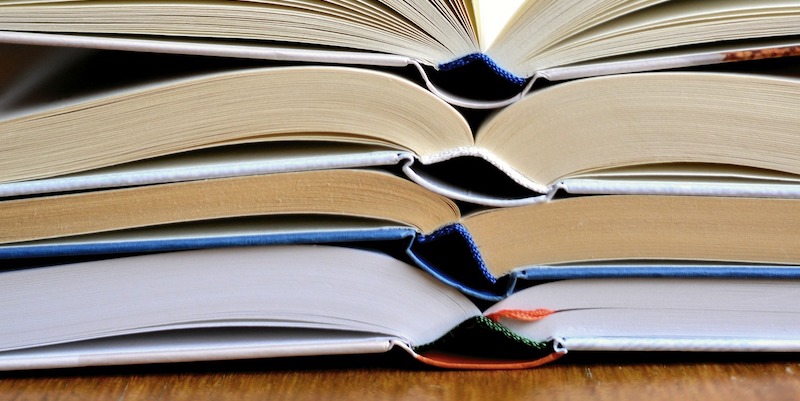
Here are the 2022 National Endowment for the Arts Creative Writing Fellows.
The National Endowment for the Arts has made public their list of this year’s recipients of Literature Fellowships in Creative Writing, which provide $25,000 grants to published creative writers that enable the recipients to set aside time for writing, research, travel, and general career advancement. The Arts Endowment awards fellowships in poetry in odd years and in prose in even years; this year, all the fellows are prose writers.
Here are the NEA’s 2022 Creative Writing Fellows:
Steve Almond
Sonya Bilocerkowycz
Marci Calabretta Cancio-Bello
Yohanca Delgado
Christopher Dennis
Chris Drangle
Dewaine Farria
Melissa Febos
Harrison Candelaria Fletcher
Tope Folarin
Kelli Jo Ford
Calvin Gimpelevich
Alexis Pauline Gumbs
Rachel Heng
Aubrey Hirsch
Elliott Holt
Nalo Hopkinson
Marjan Kamali
Violet Kupersmith
Sanaë Lemoine
Peyton Marshall
Nina McConigley
LaTanya McQueen
Tomás Q. Morín
Brice Particelli
Natanya Ann Pulley
Leta McCollough Seletzky
Asako Serizawa
Jen Silverman
Shruti Swamy
Morgan Talty
Grace Talusan
Daniel Tam-Claiborne
Laura van den Berg
Yvonne Woon
You can browse the fellows’ bios, artist statements, and writing excerpts here . Congratulations to all!
- Click to share on Facebook (Opens in new window)
- Click to share on Twitter (Opens in new window)
- Click to share on LinkedIn (Opens in new window)
- Click to share on Reddit (Opens in new window)
- Click to share on Tumblr (Opens in new window)
- Click to share on Pinterest (Opens in new window)
- Click to share on Pocket (Opens in new window)
- Click to email a link to a friend (Opens in new window)
- Click to print (Opens in new window)
to the Lithub Daily
April 4, 2024.

- Sheila Heti interviews Lauren Oyler
- In conversation with poet Samer Abu Hawwash
- A poetics of living rebellion

Lit hub Radio

- RSS - Posts
Literary Hub
Created by Grove Atlantic and Electric Literature
Sign Up For Our Newsletters
How to Pitch Lit Hub
Advertisers: Contact Us
Privacy Policy
Support Lit Hub - Become A Member
Become a Lit Hub Supporting Member : Because Books Matter
For the past decade, Literary Hub has brought you the best of the book world for free—no paywall. But our future relies on you. In return for a donation, you’ll get an ad-free reading experience , exclusive editors’ picks, book giveaways, and our coveted Joan Didion Lit Hub tote bag . Most importantly, you’ll keep independent book coverage alive and thriving on the internet.

Become a member for as low as $5/month

Literature Courses 2022-23
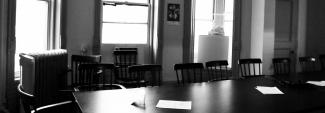
Literary Genre: LG Literature (Theory): LT Literature (Before 20th-C): LC General Literature: any course listed on this page
*asterisked courses* include a creative writing component and may be of interest to students; they do not indicate an additional requirement., literature course archive.
For Literature courses offered in previous academic years, browse our Literature course archive .
All courses listed here are approved to count towards the Creative Writing major as general literature courses. Course codes indicate approval-specific distribution requirements. Students may register for eligible courses under any course number.
These courses are offered by other departments, not the Program in Creative Writing. If you have questions about course content, structure, and schedule, please contact the department offering the course. The course descriptions below are the most recent available, to the best of our knowledge.
For courses taken prior to 2022-23, check our literature course archive. All other courses not on this list must be approved by the DUS. Contact Julie Iromuanya about approval.
2022 - 2023
ENGL | English Language and Literature ANTH | Anthropology CMLT | Comparative Literature BIBL | Religious Studies EALC | East Asian Languages and Civilizations GRMN | Germanic Studies HIST | History MAPH | Master of Arts Program in the Humanities NELC | Near Eastern Languages and Civilizations PHIL | Philosophy RLLT | Romance Languages and Literatures REES | Russian and East European Studies SALC | South Asian Languages and Civilizations TAPS | Theatre and Performance Studies
ENGLISH LANGUAGE & LITERATURE
Any class offered by the Department of English Language and Literature beyond the Core can satisfy the general literature requirement for Creative Writing. Please see below for a selection of English classes that satisfy specific requirements in genre (LG), theory (LT), and period (LC). Browse the full English catalog here .
ENGL 10101 The University in Literature
How has the university been imagined in American literature during the 20th and 21st century? And how has a rise in its interest complemented or contrasted the rise of higher education in the same time period? This course will combine literary studies alongside critical university studies to assess how higher education has been intertwined with literature—sometimes in obvious ways and sometimes in subtle ways—since the early 20th century.
Francisco Olvera 2022-2023, Autumn, LG
ENGL 10102 London Program: Literature, Property, and Violence
Ranging from the spectacular to the hidden, from the national to the domestic, affecting people unequally across races and genders, violence often confounds our expectations for representation. Similarly, property, itself unequally distributed, either appears or disappears depending on how we tell a story. Narrative is a crucial aspect of how we both reveal and conceal the presence of violence and property in everyday life. Taking its material from US literature prior to the twenty-first century, this course examines how both violence and property intertwine throughout the literary history of the United States. In this course, we will focus on the ways that literary texts, primarily prose narrative, represent these confusing phenomena to understand the political, aesthetic, and historical implications of both property and violence. We will read a variety of literary texts, including work by Harriet Jacobs, Herman Melville, and Toni Morrison with supplemental readings from a variety of critical and theoretical perspectives.
Prerequisites
Admission to the London Program (study abroad) is required.
Adam Fales , 2022-2023 Autumn, LG-F
ENGL 10103 The "Bad Moms" Renaissance Crosslistings GNSE 12116
From the murderous matriarch to the overbearing stepmother, sixteenth- and seventeenth-century literary representations of mothers reveal the anxieties, fantasies, and social ideals of reproduction, family, and gender in the period. This course argues that what makes a mom “bad” in these texts is bound up in the racial, gendered, and sexual imagination of early modern England. We will read a broad range of early modern texts from epic poetry to prose fiction, from midwifery manuals to the plays of William Shakespeare and his contemporaries. In doing so, we will confront past (and present) understandings of motherhood, care, femininity, and family structures.
Sarah Gray Lesley , 2022-2023 Autumn LC
ENGL 10104 What is nonfiction?
The aim of this course is to approach nonfiction as literature, to think critically about what the term “nonfiction” means and why the writings it describes have traditionally been seen as less “literary”: we will ask such questions as, what do nonfiction genres like journalism, essay, and memoir share with each other? Is the writing’s claim to truth something we can discern in the form of a text, and if not, what purpose does the concept of nonfiction serve in our publishing and reading culture? We will explore a few different theoretical approaches to “nonfiction” and some of the concepts or histories that shape our use of this term and sense of its meaning, including language philosophy, narratology, and literary theories of fiction. And we’ll read these theories alongside texts that work as case studies by either exemplifying or challenging what we think of as “nonfiction,” such as: WEB DuBois’ The Souls of Black Folk, Gertrude Stein’s The Autobiography of Alice B. Toklas, and Joan Didion’s Slouching Toward Bethlehem, Dr. Spock’s The Common Sense Manual of Baby and Childcare and Irma S. Rombauer’s The Joy of Cooking, Robert Lowell’s Life Studies and Claudia Rankine’s Citizen.
Dana Glaser , 2022-2023 Autumn, LT, LG-NF
ENGL 10105 Hypnotic Modernism: Literature, Psychology, Automaticity
The idea of automatic writing, or writing undertaken without conscious control, animates some of literary modernism’s most groundbreaking works. This course traces a history of automatic writing from late-nineteenth-century hypnotism and literary impressionism, through Gertrude Stein and Surrealism, to midcentury photography and the emergence of postmodernism. Readings in psychology and literary criticism will guide us as we investigate not only the modes and meanings of automatic writing, but also, and more fundamentally, the concept of the “automatic” that underpins how we think about art, mindedness, and agency. Course texts may include the prose of James Agee, Joseph Conrad, Stephen Crane, Ford Madox Ford, Guy de Maupassant, Frank Norris, and Muriel Spark; the poetry of André Breton and Gertrude Stein; and the critical writing of Stanley Cavell, Sigmund Freud, Michael Fried, Pierre Janet, and Ruth Leys.
Chris L. Gortmaker , 2022-2023 Winter, LG-F
ENGL 10106 The American Story Cycle
In this course, we will examine the short story “cycle,” a textual form which is structured as a collection of shorter narratives but expresses a certain interconnectedness (by way of common themes, characters, settings, etc.) between the stories that compels us to treat the work as somehow “whole.” In our discussions of these works, I aim to: explore the relationship between the generic unit of the story cycle and literary movements like American literary regionalism/”local color” fiction, the Harlem Renaissance, and Southern Gothic; delineate the popular-aesthetic mandates of the post-Reconstruction publishing industry in the US; and interrogate the ascendancy and prestige of the category of “the Modernist Novel” relative to short fiction in the early 20th century. Possible authors include: Eudora Welty, Jean Toomer, Nathaniel Hawthorne, Charles Chesnutt, Mary Hunter Austin.
Michael Anthony Esparza , 2022-2023 Winter, LG-F
ENGL 10107 The Experimental Life: Eighteenth-Century Literature and Science
In this course we will attend to several kinds of experimental texts that emerged during the long eighteenth century in Britain: descriptions (and critiques) of scientific experiments featuring microscopic observation (Robert Hooke, Robert Boyle, and Margaret Cavendish); early fictional and non-fictional ethnographic narratives (Daniel Defoe, Lady Mary Montagu, and Samuel Johnson); and the emergence of the first science fiction novels (Cavendish and Mary Shelley). Throughout we will pay close attention to the rhetoric of witnessing in both literary and scientific texts, and we will also consider the relation between early scientific writing and ideologies of colonialism.
Will Thompson , 2022-2023 Winter, LG-F, LC
ENGL 10108 The Good Enough
What does it mean to establish, challenge, or respect interpersonal boundaries—for the imagined wellbeing of a child, lover, or stranger? What does it take, in other words, to be a “good enough” (rather than distant or overbearing) parent, partner, or friend? And how does a person’s psychic development in a “good enough” environment bring about their participation in various spheres of cultural activity? In this course, we will closely attend to essays by key figures in object relations psychoanalysis (Sigmund Freud, Melanie Klein, D. W. Winnicott, Wilfred Bion, Masud Khan, Jessica Benjamin, Christopher Bollas, Adam Phillips) and literary criticism (Barbara Johnson, Leo Bersani, Mary Jacobus, Eve Kosofsky Sedgwick, Lauren Berlant) alongside recent novels and films that play out the surprising difficulty of being good enough.
Yao Ong , 2022-2023 Spring, LG-NF, LT
ENGL 10109 Chicago's Worlds and Exhibitions: Archives and Memory Work
To prove itself as a world-class city, Chicago has amassed a large collection of objects and artifacts, putting them on display in archives, museums, libraries, and in events like The Columbian Exposition of 1893. This course will explore the ethics of curation, utilizing examples with respect to the traditional homelands of the Council of Three Fires (Ojibwe, Potawatomi, and Odawa) as well as the Menominee, Miami, and Ho-Chunk nations.
Samantha Maza , 2022-2023 Spring
ENGL 10110 Intro to Porn Studies
Crosslistings GNSE 23143
This course is a multi-media introduction to the Western history and study of the mode/label/genre of aesthetic production called pornography and its other appearances as “obscenity,” “erotica,” “porn,” “filth,” “art,” “adult,” “hardcore,” “softcore,” “trash,” and “extremity.” We will study how others have approached this form, how they have sought to control it, uplift it, analyze it, destroy it, take it seriously, or learn to live with it. This course is both an introduction to the academic field of “porn studies” and to its equal and opposite: the endless repository of historical and current attempts to get pornography out of the way, to keep it somewhere else out of sight, to destroy it, or to deem it unworthy of study. We begin with a conversation about what the stakes are and have been in studying porn and how we might go about doing it, and then move through history and media technologies beginning with the category of pornography’s invention with regards to drawings from Pompeii. The course is meant to introduce students to various forms pornography has taken, various historical moments in its sociocultural existence, and various themes that have continued to trouble or enchant looking at pornography. The goal of this course is not to make an argument for or against porn wholesale, but to give students the ability to take this contentious form and its continued life seriously, intelligently, and ethically.
Gabriel Ojeda-Sague , 2022-2023 Spring, LT
ENGL 10404 Genre Fundamentals: Poetry
The study of poetry has been fundamental to criticism, certainly to literary criticism, for nearly as long as “English” has existed as a modern discipline. It served liberal education well in this central role in developing the capacities of aesthetic sensibility and the powers of analysis and judgment. But when the lyric was enshrined at the heart of “practical criticism” by I. A. Richards in the 1920s, it was initially all about the focus on “the poem itself.” And typically it was about the poem on the page--rather than in the air, or the ear--and often about the poem in isolation from other considerations. Much good came of the decades of attention bestowed on poetry understood in this way--a great refinement in critical attention and appreciation, and a rich repertoire of terms for critical description and discrimination. In this course, we will try to reap some of the advantages of proceeding in this way with the study of poetry. But we will also be looking at poetry beyond the page, at poems in relation to other poems, at poems in relation to other forms and other things, including the history of poetic innovation. Selecting examples from across the English language and beyond, we will proceed from simple examples to more complex ones, and from more elementary topics in prosody and poetics to more advanced issues.
James Chandler , 2022-2023 Autumn, LG-P
ENGL 10610 Sondheim and After
Stephen Sondheim (1930-2021) reinvented the American musical. This course explores his work as a lyricist and composer, and his influence on writers including Jonathan Larson, Jeanine Tesori, and Lin-Manuel Miranda.
John Muse , 2022-2023 Autumn
ENGL 10620 Literature, Medicine, and Embodiment
Crosslistings, GNSE 20620
This class explores the connections between imaginative writing and embodiment, especially as bodies have been understood, cared for, and experienced in the framework of medicine. We’ll read texts that address sickness, healing, diagnosis, disability, and expertise. The class also introduces a number of related theoretical approaches, including the medical humanities, disability studies, narrative medicine, the history of the body, and the history of science.
Julie Orlemanski , 2022-2023 Winter
ENGL 10703 20th Century Short Fiction Crosslistings AMER 10703
This course presents America's major writers of short fiction in the 20th century. We will begin with Willa Cather's "Paul's Case" in 1905 and proceed to the masters of High Modernism, Hemingway, Fitzgerald, Faulkner, Porter, Welty, Ellison, Nabokov; on through the next generation, O'Connor, Pynchon, Roth, Mukherjee, Coover, Carver; and end with more recent work by Danticat, Tan, and the microfictionists. Our initial effort with each text will be close reading, from which we will move out to consider questions of ethnicity, gender, and psychology. Writing is also an important concern of the course. There will be two papers and an individual tutorial with each student.
William Veeder , 2022-2023 Autumn, LG-F
ENGL 10709 Genre Fundamentals: Fiction
What are basics of complex storytelling? What are its conventions and deviations? This course explores fiction by focusing on specific narrative strategies and how they change over time. Authors will most likely include Herman Melville, Henry James, Edith Wharton, William Faulkner, Toni Morrison, and Ali Smith, among others.
Josephine McDonagh , 2022-2023 Spring, LG-F
ENGL 12320 Critical Videogame Studies Crosslistings CMST 27916, GNSE 22320, MAAD 12320, SIGN 26038
Since the 1960s, games have arguably blossomed into the world's most profitable and experimental medium. This course attends specifically to video games, including popular arcade and console games, experimental art games, and educational serious games. Students will analyze both the formal properties and sociopolitical dynamics of video games. Readings by theorists such as Ian Bogost, Roger Caillois, Alenda Chang, Nick Dyer‐Witheford, Mary Flanagan, Jane McGonigal, Soraya Murray, Lisa Nakamura, Amanda Phillips, and Trea Andrea Russworm will help us think about the growing field of video game studies. Students will have opportunities to learn about game analysis and apply these lessons to a collaborative game design project. Students need not be technologically gifted or savvy, but a wide-ranging imagination and interest in digital media or game cultures will make for a more exciting quarter. This is a 2021-22 Signature Course in the College.
Patrick Jagoda , 2022-2023 Autumn, LT
ENGL 13512 The Future
This course focuses on the future as imagined by American science fiction of the 20th century. On the one hand, we will pay attention to the scientific, political, and cultural contexts from which particular visions of the future emerged; on the other, we will work to develop an overarching sense of science fiction as a genre. We will deploy different analytical paradigms (Formalist, Marxist, Feminist, &c.) to apprehend the stakes and the strategies for imagining future worlds. After some initial attention to the magazine and pulp culture that helped to establish the genre, we will spotlight major SF movements (Afro Futurism, Cyberpunk, Biopunk, etc.) and major authors (including Robert Heinlein, Philip K. Dick, Ursula K. Le Guin, Samuel R. Delaney, William Gibson, and Octavia Butler). Finally, we will use this 20th-century history to think about 21st-century SF work in different media (e.g., film, radio, graphic narrative).
Bill Brown , 2022-2023 Winter, LG-F, LT
ENGL 13570 Conspiracy, Theorized.
This course will explore the function of conspiracy theorizing in American politics and culture, focusing in particular on the relationship between the affective life of conspiracy theory and conspiracy theories’ function as vernacular epistemologies of populist political critique. Why have conspiracy theories been so popular in American culture from the founding on? Why do they have such renewed energy today? How have conspiracy theories built upon one another to develop an alternate history of America and the world? In asking these questions, we will track how these theories reproduce ideologies of race, nation, empire, and gender.
Christopher Taylor , 2022-2023 Spring, LT
ENGL 13580 Introduction to Asian American Literatures
This is a survey course that introduces students to the complex and uneven history of Asians in American from within a transnational context. As a class, we will look at Asian American texts and films while working together to create a lexicon of multilingual, immigrant realities. Through theoretical works that will help us define keywords in the field and a wide range of genres (novels, films, plays, and graphic novels), we will examine how Asia and Asians have been represented in the literatures and popular medias of America. Some of the assigned authors include, but are not limited to, Carlos Bulosan, Maxine Hong Kingston, Joy Kogawa, Fae Myenne Ng, Nora Okja Keller, Cathy Park Hong, Ted Chiang, and Yoko Tawada.
2022-2023 Spring
ENGL 13590 Race and Time
In this advanced undergraduate course, we will explore the relationship between race and time. How might a concept of time already be racialized? How does the racialized subject experience time? How might such a temporality be figured through literary narratives? We’ll take up these and a host of other questions pertaining to the politics and poetics of time through a literary, theoretical, and cinematic study that asks us to think critically about schemas of time in the works of writers of colour. Some of the assigned authors and writers include, but are not limited to, Ted Chiang, Shani Mootoo, Toni Morrison, Octavia Butler, Jamaica Kincaid, Anna Lee Walters, Yoko Tawada, and Frantz Fanon.
2022-2023 Spring, LT
ENGL 14001 Rethinking Consumption: Food Writing and Immigrant Literature
In anglophone immigrant literary narratives, there is a place of particular poignancy and longing reserved for meditations upon food. What is the role, the space, and the import of food in immigrant lives? What diminution accompanies the loss of your own food, and what desire attaches to the rediscovery, or the replication of it in a foreign land? What are the stakes involved in charting out a dominion of your own familiar flavors or adapting to a new palate in an unfamiliar milieu? This course charts a few of these concerns and uses food writing as a point of entry into modes of being and making in immigrant literature, considering that emigration is a displacement that is sometimes impelled and accompanied by trauma, and characterized by rapid modes of adaptation to an unfamiliar and frequently hostile environment. Readings are likely to include fiction and poetry by Chimamanda Ngozi Adichie, Amy Tan, Imtiaz Dharker, Amarjit Chandan, Monique Truong, and Cristina Henríquez. These primary texts will be supplemented by critical and analytical readings about patterns of displacement and consumption in immigrant lives and literature.
Upasana Dutta , 2022-2023 Spring, LG-F, LG-P, LT
ENGL 15002 Reading Disability in Medieval England
Drawing on critical disability studies and a range of literary sources from medieval England, this course asks how pre-modern texts can provide new paradigms for theorizing and celebrating disabled embodiment.
Jo Nixon , 2022-2023 Winter, LC, LT
ENGL 15004 War, Culture, and Imperialism: Russia and the West from the 19th Century to the Present
This course will survey literature shaped by the history of imperial conflict between Russia and “The West,” ultimately with a view to better understanding our current geopolitical situation and mediascape. The course will be anchored in the nineteenth century, focusing on writing related to the Crimean War (1853-6) and the long contest between Britain and Russia for domination in Central Asia and India known as “The Great Game,” but it will also provide a snapshot of Cold War cultural production, with an emphasis on ideological dissent among Black radicals and Russian emigres, before turning finally to our contemporary moment.
Kevin King , 2022-2023 Spring
ENGL 15600 Medieval English Literature
Crosslistings GNSE 15600
A course on experimental poetry of the late 14th century, with special attention to how formal techniques of disorientation and discontinuity are related to the philosophical, ethical, and political ambitions of poetry.
Mark Miller
2022-2023 Spring, LG-P, LC
ENGL 17002 Early Modern Love: Eros in British Literature 1500-1700
Crosslistings GNSE 17002
This course examines an age-old problem of erotic love: how can love be a chief component of the well-lived life, when at its most celebrated it departs from reason, even to the point of madness? We will consider the challenges that love presents to human knowledge and ethics through the lens of early modern English literature, where the theme of love was at the center of aesthetic creativity, but our discussion will also draw on the philosophy of love, the history of emotions, Christian theology, and psychology. With these resources at hand, we will explore the phenomenon of erotic love, the relation of Eros to self and identity, and the reasons for love, finally leading up to the question: what does it mean to love well? Readings will include poetry, drama, and prose by prominent sixteenth- and seventeenth-century authors such as Edmund Spenser, William Shakespeare, and John Milton, as well as less studied voices in the period, alongside theoretical works by thinkers throughout the ages, from Plato and Augustine to Harry Frankfurt and Lauren Berlant. Students will have an opportunity to approach the topic through analytic and creative assignments.
Michal Zechariah 2022-2023 Spring, LG-P, LG-F, LC
ENGL 17501 Milton Crosslistings RLST 25405, FNDL 21201
A study of John Milton’s major writings in lyric, epic, tragedy, and polemical prose, with particular emphasis upon his evolving sense of his poetic vocation and career in relation to his vision of literary, religious, political, and cosmic history.
Joshua Scodel , 2022-2023 Spring, LG, LC
ENGL 19500 Mary Wollstonecraft and Mary Shelley
Crosslistings FNDL 29501, GNSE 19500
This course examines the major works—novels, political treatises, letters, travel essays—of two of Romanticism’s most influential women writers. We will attend to historical, intellectual, and cultural contexts as well as matters of literary concern, such as their pioneering development of modes like gothic and science/speculative fiction, Wollstonecraft’s stylistic theories, and Shelley’s scenes of imaginative sympathy.
Alexis Chema
2022-2023 Spring LC, LG-F
ENGL 19960 Comedy from the Margins
This course examines the centrality of normativity to our conceptions of funniness, reading theories of comedy alongside stand-up, sitcoms, dramedy, and romantic comedy. We will ask: in what ways do comedic formulas establish ideas of the “normal” in order to subvert (or perhaps reinforce) them? How, does comedy about the “strange”—as the foreign, the queer, the excessive or the abject—reframe structures of sociality often taken for granted, forcing us to grapple with questions of citizenship and belonging, gendered and sexual norms, racialization and power? In addition to theories of comedy and joke theory, students will analyze theoretical works on race, gender and sexuality alongside popular television series, talk shows, and comedy specials. Possible texts and comics include: Chewing Gum, Fleabag, Insecure, Reservation Dogs, Ramy, Atlanta, Awkwafina is Nora from Queens, Julio Torres, Hasan Minhaj, Ali Wong, Jacqueline Novak, Dave Chappelle, Hannah Gadsby, and Ronny Chieng.
Shirl Yang 2022-2023 Spring, LT
ENGL 19970 Organized Crime Fiction
This course takes up cultural representations of organized crime in literature, film, and television as loci for thinking about intersections of capitalism, globalism, migration, violence, and family. Texts may include My Brilliant Friend, The Godfather, Infernal Affairs, The Wire, Eastern Promises, and Shark Tale.
Jennifer Yida Pan , 2022-2023 Spring, LG-F, LT
ENGL 20140 London Program: London: From Industrial City to Financial Center
Over the last two centuries, London has undergone two “revolutions,” the industrial revolution and the financialization revolution, both of which have had significant impacts on the built landscape and residential patterns of its neighborhoods. Some of the materials we will look at are Charles Dickens’s Oliver Twist, George Gissing’s The Netherworld, Mike Leigh’s High Hopes, John Lanchester’s Capital, among other supporting texts (on urban globalization, the poverty maps of Michael Booth).
Elaine Hadley , 2022-2023 Autumn, LG-F
ENGL 20156 London Program: Staging Identity in the Eighteenth Century Crosslistings GNSE 22156
This course will consider connections between theatre, performance, and identity in the eighteenth century, a time when selfhood is everywhere depicted as both metaphorically and literally theatrical. We will ask: How does actual theatrical practice shape the way that identity was understood in this period? What components of identity, particularly in terms of race, class, gender, and sexuality, are privileged or destabilized by the eighteenth-century stage? Course reading will focus primarily on Restoration and eighteenth-century British drama, but may also include short works of eighteenth-century fiction and philosophy, as well as selected secondary readings in theatre history, performance studies, and gender and sexuality studies. The final syllabus will be shaped by what’s on in London in the fall; we will hopefully be able to attend a performance or two, and consider how recent playwrights look back to the eighteenth century in their own work.
Heather Keenleyside , 2022-2023 Autumn, LC
ENGL 20212 Romantic Natures
Our survey of British Romantic literary culture will combine canonical texts (especially the major poetry) with consideration of the practices and institutions underwriting Romantic engagement with the natural world. We will also address foundational and recent critical-theoretical approaches to the many “natures” of Romanticism. Our contextual materials will engage topics such as the art of landscape, an influx of exotic and dangerously erotic flora, practices of collection and display, the emergent localism of the naturalist Gilbert White, the emergence of geological “deep time,” and the (literal) fruits of empire and vegetarianism.
Timothy Campbell , 2022-2023 Winter, LG, LC
ENGL 20360 Shrews! Unladylike Conduct on Stage and Page in Early Modern England
Crosslistings, GNSE 20126, TAPS 20360
This course will move between three sites of inquiry to investigate the social and material history of an evergreen trope: the domestication of a refractory servant or wife. From rare book libraries and museum collections, we will track the common features of popular entertainments that traffic in this scenario. We will then bring our findings to bear in a theatre lab environment, where we will assay scenes from The Taming of the Shrew, The Tamer Tamed, and the City Madam.
Ellen MacKay , 2022-2023 Winter, LC
ENGL 20720 Film and Fiction
Crosslistings CMST 25820
This course addresses three distinct but related critical problems in the contemporary understanding of film and fiction. The most general is the question of how we might go about linking the practice of criticism in the literary arts with that of the screen arts. Where are the common issues of structure, form, narration, point of view management, and the like? Where, on the other hand, are the crucial differences that lie in the particularities of each domain--the problem that some have labeled “medium specificity” in the arts? The second problem has to do more specifically with questions of adaptation. Adaptation is a fact of our cultural experience that we encounter in many circumstances, but perhaps in none more insistently as when we witness the reproduction of a literary narrative in cinematic or televisual form. Adaptation theory has taught us to look beyond the narrow criterion of “fidelity” as far too limiting in scope. But when we look beyond, what do we look for, and what other concepts guide our exploration? The third and final problem has to do with the now rampant genre of the “film based on fact,” especially when the facts derive from a particular source text, as in the recent case of Spike Lee’s BlacKkKlansman? Why has this genre become so popular? What are its particular genre markings (e.g., excessive stylization, the use of documentary footage of the actual persons and events involved)? How does fictionalization operate on the facts in particular cases?
James Chandler , 2022-2023 Autumn, LG-NF, LC
ENGL 21785 Black in Colonial America: Three Women
Crosslistings CRES 21785, GNSE 21725, SIGN 26076
Through a survey of texts by and about Sally Hemings, Phillis Wheatley and Tituba, “the Indian,” we will consider the lives of three black women in colonial America. In this period of expansion and contraction of the concepts of race and bondage, what kind of “tellings” were possible for these women? By reading texts written as early as 1692 and as late as 2008, we will also consider how representations of these women have changed over time.
SJ Zhang , 2022-2023 Spring, LC
ENGL 22322 Introduction to Game Design Crosslistings MAAD 22322
This course introduces students to the theories and processes underlying game design for both analog and digital projects.
Patrick Jagoda , Ashlyn Sparrow, 2022-2023 Winter
ENGL 24252 Black Quietude
This course considers modes of quietude as they intersect experiences of blackness. What can be conveyed or contained in moments of stillness or quiet? Is black quietude a moment of universalism that transcends the determinations of race? Or do black subjects carry or project the experience of racialization into their spaces of quiet? Do we define quiet for the black subject on the same terms as for other racial categories?
Tina Post , 2022-2023 Winter, LT
ENGL 24400 Brecht and Beyond
Brecht is indisputably the most influential playwright in the 20th century, but his influence on film theory and practice and on cultural theory is also considerable. We will explore the range and variety of Brecht's work, from the Threepenny hit to the agitprop film Kühle Wampe) to classic parable plays, as well as Brecht heirs in German theatre and film (RW Fassbinder & Peter Weiss) theatre and film in Britain (Peter Brook & John McGrath), African theatre and film influenced by Brecht, and the NYC post-Occupy adaptation of Brecht’s Days of the Commune. This course also includes a weekly screening session.
Note: This is not a basic introductory course. Students must have completed HUM Core and one or more of the following: International Cinema or equivalent and/or TAPS and/or working German. Please ask about other courses you have taken that may count as PQs.
Loren Kruger , 2022-2023 Winter
ENGL 25232 Reading Nineteenth Century Feminisms Crosslistings GNSE 23144
Disputes about sexual difference set feminist factions against each other during the nineteenth century, as in the present; and, like the feminisms of our own moment, nineteenth-century feminisms diverged sharply on questions about race and racism. This course reads US and British prose from 1850-1915 in order to study the debates that shaped feminist thought during that period. Considering a range of varied feminisms (among them: liberal feminism, difference feminism, eugenic feminism, white feminism, etc.), we'll encounter conflicting arguments about the right to vote, access to education, marriage, mothering, and sex. Authors may include: Anna Julia Cooper, George Eliot, Charlotte Perkins Gilman, Emma Goldman, Frances E.W. Harper, John Stuart Mill, Lucy Parsons, John Ruskin, Mary Arnold Ward, and Ida B. Wells-Barnett.
Emily Coit 2022-2023 Spring
ENGL 25262 Global Feminist and Queer Aesthetics Crosslistings GNSE 20125
This course examines ways of seeing, or representation, in the making of gender and sexuality across time and place. We will study feminist and queer literature and arts, and theories of representation across disciplines, on questions from migration and borders to care. For example, how do practices of mapmaking, or narratives of crossing, help us understand intimacy or estrangement? And how might visualizing care move us toward repair or a new world? In taking this lens, we will also consider how gender and sexuality are co-constituted with race, the nation-state, and labor. Through a workshop model, we will build on these foundational and new approaches to representing gender and sexuality together. Participants are encouraged to bring in supplementary texts to build out our archive of transnational gender and sexuality. Our class will culminate in a glossary, made up of short essays by participants on aesthetics, interpretative approaches, and imaginaries.
Kaneesha Parsard , 2022-2023 Winter, LG-NF, LT
25805 Popol Vuh: Epic of the Americas, Crosslistings FNDL 25805, LACS 25805
One of the oldest and grandest stories of world creation in the native Americas, the Mayan Popol Vuh has been called “the Bible of America.” It tells a story of cosmological origins and continued historical change, spanning mythic, classic, colonial, and contemporary times. In this class, we’ll read this full work closely (in multiple translations, while engaging its original K’iche’ Mayan language), attending to the important way in which its structure relates myth and history, or foundations and change. In this light, we’ll examine its mirroring in Genesis, Odyssey, Beowulf, Ovid’s Metamorphoses, and Diné Bahane’ to consider how epics struggle with a simultaneity of origins and historiography. In highlighting this tension between cosmos and politics, we’ll examine contemporary adaptations of the Popol Vuh by Miguel Ángel Asturias, Ernesto Cardenal, Diego Rivera, Dennis Tedlock, Humberto Ak’ab’al, Xpetra Ernandex, Patricia Amlin, Gregory Nava, and Werner Herzog. As we cast the Guatemalan Popul Vuh as a contemporary work of hemispheric American literature (with North American, Latin American, Latinx, and Indigenous literary engagement), we will take into account the intellectual contribution of Central America and the diaspora of Central Americans in the U.S. today. As a capstone, we will visit the original manuscript of the Popol Vuh held at the Newberry Library in Chicago, thinking about how this story of world creation implicates us to this day.
Edgar Garcia , 2022-2023 Spring, LG-P, LC
ENGL 26210 The Roaring Twenties: Then and Now
As we begin to get a feel for the aesthetic, social, and political moods and modes that will come to be the hallmarks of the 2020’s, critics have begun turning back to the 1920’s and its uncanny historical similarities to our current decade—both being preceded by pandemics and eruptions of racial violence, for instance— to think the present. In studying the aesthetic responses of individuals and movements in and to the 1920s, this class will also ask students to consider the utility and limits of this lens in helping us make sense of our emerging now.
Adrienne Brown , 2022-2023 Autumn, LG
ENGL 26312/36312 Worlding Otherwise: Speculative Fiction, Film, Theory Crosslisting: CMLT 26311/36311
This course examines literary and cinematic works of speculative fiction in a comparative context. An expansive genre that encompasses science fiction, fantasy, magic realism, horror, as well as utopian and dystopian literature, speculative fiction envisions alternate, parallel, possible or imagined worlds. These worlds often exhibit characteristics such as: scientific and technological advancements; profound social, environmental, or political transformations; time or space travel; life on other planets; artificial intelligence; and evolved, hybrid, or new species. Speculative works frequently reimagine the past and present in order to offer radical visions of desirable or undesirable futures. We will also consider how this genre interrogates existential questions about what it means to be human, the nature of consciousness, the relationship between mind/body, thinking/being, and self/other, as well as planetary concerns confronting our species. Fictional works will be paired with theoretical readings that frame speculative and science fiction in relation to questions of gender, race, class, colonialism, bio-politics, human rights, as well as environmental and social justice. In addition to studying subgeneres - such as Afrofuturism - we will explore speculative fiction as a critical mode of reading that theorizes other ways of being, knowing, and imagining.
Hoda El Shakry , 2022-2023 Autumn, LG-F, LG-NF, LT
ENGL 26907 American Culture During World War II
With the mass mobilization of the US following the bombing of Pearl Harbor, artists of all kinds served in the armed forces or in the war bureaucracy. That doesn’t mean that cultural production stopped. It did, however, mean drastic changes the kind of art that was produced and the ways in which it was disseminated. In short, World War II instigated a dramatic change in the relationship of art to the state. For example, the Library of Congress was established; American publishing was completely overhauled (the first volume of the redoubtable Viking Portable, for instance, was an anthology issued to soldiers); Japanese internment camps had as one of their unintended consequences the opportunity for a new generation of Nisei writers to share and publish their work; American theater saw its boundaries stretched to embrace a wider cross section of the US public; Hollywood and the war department enjoyed a collaboration on mass market as well as training films; refugee intellectuals from Europe congregated in New York and had a remarkable reshaping effect on American culture. The course will follow various streams—mass culture and high culture, film and literature, drama and the visual arts—to explore how new institutions, new cultural producers, and new audiences transformed US culture during the war years.
Deborah Nelson , 2022-2023 Winter
ENGL 27250 Wealth, Democracy, and the American Novel
Numerous commentators have remarked on similarities between late 19th-century Gilded Age America and turn-of-the 21st-century neoliberal America. By focusing on several American novels, beginning with the late 19th- and early 20th-century decades, we will explore the way that US novelists sought to understand the political, social, and imaginative challenges presented by the concentration of great wealth in fewer and fewer hands.
Kenneth Warren , 2022-2023 Autumn
ENGL 27500 Modernism and the Harlem Renaissance: Issues and Methods
Crosslistings CRES 27520
In this course we will examine that period known as the Harlem Renaissance, partly as an exercise in literary criticism and theory, partly as an exercise in literary and intellectual history. Our objectives will be to critique the primary texts from this period and at the same time to assess the efforts of literary scholars to make sense of this moment in the history of American cultural production.
Kenneth Warren , 2022-2023 Spring, LG, LT
ENGL 20228/30228 William Blake: Poet, Painter, Prophet
Crosslistings ARTH 20228, ARTH 30228, FNDL 20228
A survey of the major poetic and pictorial works of William Blake, centrally focussed on his illuminated books, from the early Songs of Innocence and Experience to The Marriage of Heaven and Hell, and the books of the revolutionary period of the 1790s: Europe, America, Visions of the Daughters of Albion, and The Book of Urizen. We will also consider the later prophecies, Milton: A Poem and Jerusalem, along with Blake’s work as an illustrator of Milton, Chaucer, and the Bible. Blake’s engagement with the political and religious controversies of his time will provide context, along with his pioneering exploration of dialectical modes of thought and radical forms of humanism.
W. J. T. Mitchell , 2022-2023 Spring, LG-P, LT, LC
ENGL 20230/30230 Iconology East and West
Iconology is the study of images across media and cultures. It is also associated with philosophical reflections on the nature of images and their relation to language—the interplay between the “icon” and the “logos.” A plausible translation of this compound word into Chinese would describe it as “Words in Pictures, Pictures in Words”: 诗 中有画,画中有 诗 . This seminar will explore the relations of word and image in poetics, semiotics, and aesthetics with a particular emphasis on how texts and pictures have been understood in the Anglo-European-American and Chinese theoretical traditions. The interplay of painting and poetry, speech and spectacle, audition and vision will be considered across a variety of media, particularly the textual and graphic arts. The aims of the course will be 1) to critique the simplistic oppositions between “East” and “West” that have bedevilled intercultural and intermedial comparative studies; 2) to identify common principles, zones of interaction and translation that make this a vital area of study. This course will be coordinated with a parallel seminar at Beijing University.
W. J. T. Mitchell , 2022-2023 Winter, LT
ENGL 20250/30250 The Means of Production: Contemporary Poetry and Literary Publishing
This course will introduce students to the editorial principles and collaborative practices of literary evaluation in the making of contemporary American poetry. How does a poem 'make it' into the pages of Chicago Review . . . or The Paris Review? How do individual readers and editorial collectives imagine the work of literary assessment and aesthetic judgment in our time? We will begin the term with a survey of new directions in Anglophone poetry (and poetry in translation) as a preparation for weekly editorial exercises in the evaluation and assessment of literary manuscripts. We will 'simulate' editorial deliberations at contemporary literary periodicals like Poetry magazine and book publishers like the Phoenix Poets book series at the University of Chicago Press. The course will include visits from contemporary literary publishers at Chicago-area magazines and presses.
Srikanth (Chicu) Reddy , 2022-2023 Autumn, LG-P
ENGL 32104 Hymns Crosslistings RLVC 32104
The course will track hymns from the early modern period through the late eighteenth century. We’ll examine the evolution of the hymn as a literary form, focusing on obsolescence and adaptation in literary transmission. We’ll start with the Psalms of the Hebrew Bible, and analyze psalters (such as the one produced by Mary Herbert, Countess of Pembroke, and her brother, Sir Philip Sidney) and the metrical psalms of Sternhold and Hopkins that were used in Anglican services. We’ll then take up the development of congregational hymns, hymns sung by everyone in a congregation, to track the way that literary adaptation among Dissenters became both common and controversial. We’ll look at Isaac Watts’s multiple hymns for each of the Psalms, his later Hymns and Spiritual Songs, and his Divine Songs for children to get at the importance he and other Dissenters (such as Anna Letitia Barbauld) attached to supplying words to all who could sing or say them. We’ll end with a discussion of “Amazing Grace” and its use in the British abolition movement, and with a discussion of the movement of the literary hymn away from religion altogether in literary hymns, Shelley’s and Keats’s odes.
Frances Ferguson , 2022-2023 Winter
ENGL 32312 Virtual Theaters, Crosslistings, TAPS 32312
This course probes the nature and limits of theater by exploring a range of theatrical texts whose relation to performance is either partially or fully virtual (philosophical dialogues, closet dramas, novel chapters in dramatic form, twitter theater, digital theater, algorithmic theater, transmedia games, remote theater.) One unit attends to experiments in remote theater since the COVID-19 pandemic.
John Muse , 2022-2023 Winter
ENGL 25970/32314 Alternate Reality Games: Theory and Production, Crosslistings BPRO 28700, ARTV 20700, ARTV 30700, CMST 25954, CMST 35954, MAAD 20700, TAPS 28466
Games are one of the most prominent and influential media of our time. This experimental course explores the emerging genre of "alternate reality" or "transmedia" gaming. Throughout the quarter, we will approach new media theory through the history, aesthetics, and design of transmedia games. These games build on the narrative strategies of novels, the performative role-playing of theater, the branching techniques of electronic literature, the procedural qualities of video games, and the team dynamics of sports. Beyond the subject matter, students will design modules of an Alternate Reality Game in small groups. Students need not have a background in media or technology, but a wide-ranging imagination, interest in new media culture, or arts practice will make for a more exciting quarter.
Third- or fourth-year standing. Instructor consent required. To apply, submit writing through online form at https://www.franke.uchicago.edu/big-problems-courses ; see course description. Once given consent, attendance on the first day is mandatory. Questions: [email protected] .
Patrick Jagoda , Heidi Coleman, 2022-2023 Winter, LT
ENGL 24528/34528 Seeing Ourselves: Photography and Literary Non-Fiction
What knowledge about ourselves can photographs provide? Can photographs change the way we see ourselves--collectively, individually? Photography has been around for almost 200 years, yet its dominance in our lives seems only to increase. This course examines photography’s influence on our everyday lives, particularly on conceptions and portrayals of the self. We will see how theorists have grappled with the phenomenon of photography, engaging the written word to address its conundrums, dangers, and attractions. With the help of these theorists, we will question the promises that photographs seem to make about representing the world. The purpose of this course is also, however, to take seriously the affective, documentary power of photography. We will thus analyze the creative use of photographs in the non-fiction (or nearly non-fiction) of major 20th- and 21st-century writers (philosophers, critics, journalists, essayists, poets, novelists, activists). Photography will emerge as a productive medium for navigating issues of memory, identity, race, gender, authenticity, agency, publicity, and art. With keen attention to the different capabilities of writing and photography, we will explore the dynamics of self-expression, the ethics of representing others, and the politics of image-text depictions.
Christine Fournaies, 2022-2023 Winter, LT
ENGL 34800 Poetics Crosslistings MAPH 34800
In this course, we will study poetry ‘in the abstract’. We will study various efforts on the part of philosophers, literary critics, and poets themselves to formulate theories of poetic discourse. We will examine a range of historical attempts to conceptualize poetry as a particular kind of language practice, from Greek, Chinese, and Indic antiquity to the present.
David Wray, 2022-2023 Autumn, LG-P
ENGL 24960/34960 California Fictions, 1884-2018 Crosslistings MAPH 34960
This course will consider works of literature and cinema from 1884-2018 that take place in Oakland, San Francisco, Los Angeles, the Inland Empire, and rural California to offer a case study for everyday life and critical space theory. Beginning with Helen Hunt Jackson’s Ramona and ending with Boots Riley’s Sorry to Bother you, we will also consider how “the west” provides an opportunity for reconsidering canon formation and genre.
Open to MAPH students: 3rd and 4th years in the College email 2-3 sentences about why you want to take the course for consent.
Megan Tusler, 2022-2023 Autumn
ENGL 35700 Sex, Gender, and Sexuality in the Middle Ages
Crosslistings GNSE 35700
The field of gender and sexuality in medieval Western Europe is both familiar and exotic. Medieval poetry is fascinated by the paradoxical inner workings of desire, and poetic, theological, and philosophical texts develop sophisticated terms for analyzing it. Feminine agency is at once essential to figurations of sexual difference and a scandal to them. Ethical self-realization gets associated both with abstinence and with orgasmic rapture. This course will examine these and other topics in medieval gender and sexuality through reading a range of materials including poetry, theology, gynecological treatises, hagiography, and mystical writing.
Mark Miller , 2022-2023 Spring, LC, LG-P
ENGL 26250/36250 Richer and Poorer: Income Inequality, Crosslistings, LLSO 26250, SIGN 26004
Current political and recent academic debate have centered on income or wealth inequality. Data suggests a rapidly growing divergence between those earners at the bottom and those at the top. This course seeks to place that current concern in conversation with a range of moments in nineteenth and twentieth century history when literature and economics converged on questions of economic inequality. In keeping with recent political economic scholarship by Thomas Piketty, we will be adopting a long historic view and a somewhat wide geographic scale as we explore how economic inequality is represented, measured, assessed and addressed. Charles Dickens, Richard Wright, HG Wells, will be among the writers explored.
Elaine Hadley , 2022-2023 Winter, LG-F, LT
ENGL 28230/38230 Fashion and Change: The Theory of Fashion Crosslistings GNSE 28230, GNSE 38230
This course offers a representative view of foundational and recent fashion theory, fashion history, and fashion art, with a historical focus on the long modern era extending from the eighteenth century to the present. While engaging the general aesthetic, sociological, and commercial phenomenon of fashion, we will also devote special attention to fashion as a discourse self-reflexively preoccupied with the problem of cultural change—the surprisingly difficult question of how and why “change” does or does not happen. We will aim for a broader appreciation of fashion’s inner workings—its material processes, its practitioners—but we will also confront the long tradition of thinking culture itself through fashion, to ask how we might productively do the same.
Timothy Campbell , 2022-2023 Spring
ENGL 28290/38290 Samuel Richardson's Clarissa, Crosslistings FNDL 28290
This course will examine the very long and possibly—very probably—the greatest novel in the English language. We’ll consider the effect of Richardson’s decision to conduct his novel as a series of letters, and we’ll pay particular attention to his extraordinary effectiveness in creating complexity in a fairly simple plot and in tracking an ever-expanding cast of characters. The Penguin edition we’ll be using comes to 1499 pages, and they are over-sized pages. This is a course for committed readers!
Frances Ferguson , 2022-2023 Autumn, LC
ENGL 18860/38860 Black Shakespeare Crosslistings CRES 18860, TAPS 20040, TAPS 30040
This course explores the role played by the Shakespearean canon in the shaping of Western ideas about Blackness, in long-term processes of racial formation, and in global racial struggles from the early modern period to the present. Students will read Shakespearean plays portraying Black characters (Othello, Titus Andronicus, The Tempest, and Antony and Cleopatra) in conversation with African-American, Caribbean, and Post-colonial rewritings of those plays by playwrights Toni Morrison, Amiri Baraka, Bernard Jackson, Djanet Sears, Keith Hamilton Cobb, Aimé Césaire, Derek Walcott, Lolita Chakrabarti, and film-makers Max Julien and Jordan Peele. This course is open to MAPH students and to PhD students upon request.
Noémie Ndiaye 2022-2023 Spring, LC
ENGL 20161/40161 21st Century Ethnic American Literature Crosslistings AMER 40161, CRES 22161, CRES 40161, MAPH 40161
This class will read US novels and short stories by African-American, American Indian, Asian-American, and Latinx writers from the last twenty years to conceptualize the shifting categories of race and ethnicity, paired with critical and theoretical works in critical cultural race studies.
Megan Tusler, 2022-2023 Winter
ENGL 20180/40180 Women Writing God
Crosslistings GNSE 25180, GNSE 45180, MAPH 40180
This course examines imaginative works by women that take on the task of representing divine or supernatural being from the medieval era to the present. Drawing on the work of critics such as Luce Irigaray, Caroline Walker Bynum, and Judith Butler, we explore what strategies these writers employ to depict an entity simultaneously understood to be unrepresentable and to have a masculine image. Texts range from premodern mystics such as Julian of Norwich and Teresa of Avila to Octavia Butler’s Parable of the Sower.
Instructor consent required for first and second year undergraduates.
Sarah Kunjummen, 2022-2023 Winter, LC
ENGL 20260/40250 Housekeeping: Domestic Drama and Material Culture
The theatre represents a new and wildly successful commodity in the early modern English market. Yet it is often kept separate from other fashionable goods of the period by virtue of its intangible form. This course overturns the orthodoxy that an early modern play was a co-imaged event and the early modern theatre was an “empty space” by attending to the Renaissance theatre's frequent recourse to household stuff. We will read plays designed for private performance, that use the fixtures of the household to build theatrical worlds. We will investigate dramatists who liken the playhouse to key venues of commodity culture, including the pawnshop, the Exchange (the precedent of the shopping mall), and the fairground. We will draw from Henslowe's Diary to recover the business of theatrical property-making and the allure of a company as disclosed by its holdings. All the while, we will question how the fiction of emptiness takes hold in theatre history, and how plays that depict a furnished world are relegated to second-class genres like domestic tragedy and city comedy.
Ellen MacKay , 2022-2023 Autumn
ENGL 40260 Writing in the Humanities: Genres of Literary Scholarship
What kinds of writing can literary scholars use to share their discoveries? What new audiences can they reach? How can we best communicate with those audiences, and how can we spark broad and enduring interest in humanities subjects? Taking the changing landscape of academic publishing as a point of departure, this course offers students opportunities to develop writing skills for a variety of academic and professional contexts. Guided by their own individual interests, students will work with primary sources from the nineteenth and twentieth centuries, completing three linked projects over the course of the term. This progressive sequence will invite them to look beyond the conventional journal article: we'll consider how to convey humanist ways of thinking and scholarly insight across a range of genres, including podcasts, videos, teaching resources, book and film reviews, book-club presentations, academic conference talks, and annotated transcriptions of finds from the digital archive as well as the library's Special Collections.
Emily Coit , 2022-2023 Autumn
ENGL 20464/40464 The Lives of Others, Crosslistings MAPH 40464
How much can you ever really know someone else? In this course, we take up the inscrutability of others through a range of narratives about - politically, socially, and geographically - distant others from the early 20th century. Texts include fiction, documentary film, and critical theory around transnationalism, contact zones and ethnography). Some of these texts meditate on the general problem of living with others. Others take on the limits of empathy, access, and friendship whether explicitly or in their formal arrangement. Specifically, we focus on works that engage with an ethics or “work on the self” as a preliminary to having knowledge of others. We will be guided by readings that likely include Jacob Riis, How the Other Half Lives, E.M. Forster’s A Passage to India, Werner Herzog’s Grizzly Man, Victor Segalen’s Essay on Exoticism, Levi-Strauss’ Tristes Tropiques, Vikram Seth’s The Golden Gate, Amitav Ghosh’s In An Antique Land and J.M. Coetzee’s Elizabeth Costello.
Darrel Chia, 2022-2023 Autumn
ENGL 20562/40562 Renaissance Freedoms, Crosslistings MAPH 40562
This course explores early modern debates about human agency across multiple registers: political, philosophical, religious, erotic. Texts include selections from the writings of Thomas Hobbes and Baruch Spinoza, William Shakespeare, Elizabeth Carey, Margaret Cavendish and John Milton.
Sarah Kunjummen, 2022-2023 Autumn, LG, LC
ENGL 20565/40565 Postcolonial Aesthetics, Crosslistings MAPH 40565
What do we mean by the “postcolonial aesthetic”? In this course, we read and think through the literary and conceptual resources that might help us reconstruct this notion – from Deepika Bahri, to Theodor Adorno and Walter Benjamin. Our goal is to attend to “the aesthetic” as an experience that reshapes subjectivity in terms of our relation to ourselves and others. By engaging with twentieth-century novels, memoir, and film, we consider how this postcolonial aesthetic might function. What habituated forms of perception or common sense notions does it seek to interrupt? What ways of sensing and living does it offer? Readings will likely include Ashis Nandy, Deepika Bahri, Theodor Adorno, Derek Walcott, Frantz Fanon, Arundhati Roy, and Jean Rhys.
Darrel Chia, 2022-2023 Spring
ENGL 21360/41360 Gender, Capital, and Desire: Jane Austen and Critical Interpretation
Crosslistings GNSE 21303, GNSE 41303, MAPH 40130
Today, Jane Austen is one of the most famous (perhaps the most famous), most widely read, and most beloved of eighteenth- and nineteenth-century British novelists. In the two hundred years since her authorial career, her novels have spawned countless imitations, homages, parodies, films, and miniseries – not to mention a thriving “Janeite” fan culture. For just as long, her novels have been the objects of sustained attention by literary critics, theorists, and historians. For example, feminist scholars have long been fascinated by Austen for her treatments of feminine agency, sociality, and desire. Marxists read her novels for the light they shed on an emergent bourgeoisie on the eve of industrialization. And students of the “rise of the novel” in English are often drawn to Austen as a landmark case – an innovator of new styles of narration and a visionary as to the potentials of the form. This course will offer an in-depth examination of Austen, her literary corpus, and her cultural reception as well as a graduate-level introduction to several important schools of critical and theoretical methodology. We will read all six of Austen’s completed novels in addition to criticism spanning feminism, historicism, Marxism, queer studies, postcolonialism, and psychoanalysis. Readings may include pieces by Shoshana Felman, Frances Ferguson, William Galperin, Deidre Lynch, D.A. Miller, Edward Said, Eve Kosofsky Sedgwick, and Raymond Williams.
Tristan Schweiger, 2022-2023 Autumn LG-F, LC, LT
ENGL 21370/41370 Ships, Tyrants, and Mutineers
Crosslistings MAPH 41370
Since the Renaissance beginnings of the “age of sail,” the ship has been one of literature’s most contested, exciting, fraught, and ominous concepts. Ships are, on the one hand, globe-traversing spaces of alterity and possibility that offer freedom from the repression of land-based systems of power. And they are Michel Foucault’s example of the heterotopia par excellence. From Lord Byron to Herman Melville to Anita Loos, the ship has been conceived as a site of queerness and one that puts great pressure on normative constructions of gender. At the same time, the ship has been a primary mechanism for the brutality of empire and hegemony of capital, the conduit by which vast wealth has been expropriated from the colony, military domination projected around the world, and millions of people kidnapped and enslaved. Indeed, the horror of the “Middle Passage” of the Atlantic slave trade has been a major focus of inquiry for theorists like Paul Gilroy and Hortense Spillers, interrogating how concepts of racial identity and structures of racism emerge out of oceanic violence. In the 20th and 21st centuries, science-fiction writers have sent ships deep into outer space, reimagining human social relations and even humans-as-species navigating the stars. While focusing on the Enlightenment and 19th century, this course will examine literary and filmic texts through the present that have centered on the ship, as well as theoretical texts that will help us to deepen our inquiries.
Tristan Schweiger 2022-2023 Winter
ENGL 26002 Literature and Hunger
Crosslistings RLST 26002
This undergraduate course pursues themes of hunger, the consumption of food, the formation of community, and relation to the sacred, through a sequence of readings in the Western tradition. By reading classic works (The Odyssey, selections from The Hebrew Bible and Christian Scriptures, selections from The Divine Comedy, the Letters of St. Catherine of Siena, sonnets of Shakespeare, Paradise Lost), and modern works by Kafka, Simone Weil, Louise Glück, Frank Bidart, we will examine how different philosophies have imagined the acceptance or rejection of love, life, and the sacred in terms of the symbolism of food. Class work will involve close analysis of literary works, even those in translation; intensive critical writing and revision; and secondary readings in literary criticism, anthropology, theology, and psychology. Undergraduate Seminar.
R. Warren 2022-2023 Autumn
ENGL 27703/47703 Queer Modernism Crosslistings AMER 27703, AMER 47703, GNSE 23138, GNSE 47702, MAPH 47703
This course examines the dramatic revisions in gender and sexuality that characterize Anglo-American modernity. Together, we will read literary texts by queer writers to investigate their role in shaping the period's emergent regimes of sex and gender. We'll consider queer revisions of these concepts for their effect on the broader social and political terrain of the early twentieth century and explore the intimate histories they made possible: What new horizons for kinship, care, affect, and the everyday reproduction of life did modernist ideas about sex and gender enable? At the same time, we will seek to “queer” modernism by shifting our attention away from high literary modernism and towards modernism’s less-canonical margins. Our examination will center on queer lives relegated to the social and political margins—lives of exile or those cut short by various forms of dispossession. This class will double as an advanced introduction to queer theory, with a particular emphasis on literary criticism.
Agnes Malinowska 2022-2023 Winter
ENGL 27714/47714 Race, Reproduction, and Modernism
Crosslistings CRES 27714, GNSE 27714, GNSE 47714, MAPH 47714
In this class, we focus on the centrality of debates around women’s reproductive capacity in shaping the culture of modernity in the U.S. around 1900. We look at the way that feminist politics, in conjunction with broader developments in industrial capitalist society, disrupted traditional pathways of reproduction, as these have revolved around woman’s crucial role in sustaining the biological family and the home. We will read fiction, essays, and political tracts around the birth control movement, free love, sex work, the figure of the “new woman,” the politics of the home, the rise of consumer culture, and the demands placed on both Black and white women during this period in reproducing “the race.” Most generally, we will focus on texts that both trouble and shore up bourgeois motherhood as the central means of reproducing the biological life and social fabric of American culture. And we will likewise be interested in writers and political figures that imagine and advocate for non-reproductive intimacies that would dismantle this social reproductive order altogether.
Open enrollment for all graduate students, as well as 3rd- and 4th-year undergraduate students with majors in the Humanities and Social Sciences. All others, please email [email protected] to request permission to enroll.
Agnes Malinowska 2022-2023 Spring
ENGL 50250 Moving and Being Moved
This course considers the significance of mobility, migration and migrancy in the context of concepts of 18th- and 19th century-modernity, and explores some of their legacies especially in relation to literature. We will focus on migration in and from Britain mainly in the nineteenth century, and consider, inter alia, how literary and other printed texts intersect with the practices and fantasies of moving and staying still. Key terms are mobility and stability or stagnancy, emigration and settlement, colonization and decolonization, empire, eviction, dispossession, hospitality, refuge and asylum, and ‘being moved’ in all its senses.
Josephine McDonagh 2022-2023 Autumn, LT
ENGL 50622 Creations: the Popol Vuh and Paradise Lost *
Crosslistings CDIN 50622
While apparently worlds apart, John Milton’s Paradise Lost (1667) and the K’iche’ Maya story of creation the Popol Vuh (1702) are historically adjacent works of world creation that remind us that world creations happen in historical circumstances, that creation itself is nothing if not historically, socially, and critically tensioned. This class thinks with and between these works to ask conceptual questions about creation and its relationship to myth and history. What are creations for? What kinds of thinking and feeling do they enable? And how should we understand the framework of comparability itself? At the same time, we will rethink the global historical currents within which the texts were written: the early modern anglophone, hispanophone, and indigenous worlds whose interconnections bind together the creation stories told by Milton and the anonymous K’iche’ Maya authors. Listening closely for shared engagements with colonialism, race, religion, political power, historical experience, pedagogy, intellection, imagination, critique, and social crisis, we will look for through-lines between these works but also for distinct points of departure and incommensurability.
This is a Ph.D.-level course, but spaces may be made available for MA or BA students who provide a note describing their interest and readiness for the course.
Edgar Garcia , Timothy Harrison , 2022-2023 Spring
ENGL 53103 The Uses of Fiction: Poetry and Philosophy in Early Modernity
This course attempts to unpack the ancient quarrel between poetry and philosophy by examining how each discourse draws on the power of poiesis in different ways. We will approach this topic by examining four discourses: first, formal treatments of poetry and poetics from antiquity (Plato, Aristotle) through the late Renaissance (Sidney, Tasso, Milton); second, explicitly fictional thought experiments employed by philosophers (Avicenna, Ibn Tufayl, Descartes, Locke, Condillac); third, poetry explicitly invested in the making of fictional worlds (Spenser, Milton, Cavendish); and fourth, recent scholarship on poetry’s relationship to philosophy (Stanley Rosen, Victoria Kahn, Ayesha Ramachandran, Russ Leo, Guido Mazzoni, and others.
Timothy Harrison , 2022-2023 Winter, LC
ENGL 53450 Enlightenments and Romanticisms
This seminar will develop research projects around the topics of Enlightenment(s), nationalisms, and transnationalisms in the Romantic era. Some of the categories for the course will come from traditional faculty psychology (reason, memory, imagination). Some will come from criticism and theory that are sometimes tinged with aesthetic and philosophical ambitions. Our primary emphasis will be on literature, but questions about romanticism in music, the visual arts, and the historical disciplines will be in play. The main focus will fall on English-language literary materials produced in England, Scotland, Ireland, and America, but the course may also engage texts by non-British writers such as Voltaire, Diderot, Rousseau, Kant, Herder, Schiller, and the Saint Simonians.
2022-2023 Winter
ENGL 53580 Debates and New Directions in Black Feminisms Crosslistings GNSE 53580
Following Jennifer Nash’s charge for Black feminists to “let go” of tightly held intellectual genealogies (intersectionality) and postures (defensiveness), this doctoral seminar takes up new directions and debates in the study of Black feminisms. We’ll study institutional debates and tensions between Black and transnational feminisms (where do we mean when we say Black, and who do we mean when we say transnational), the agonistic relationship between Afropessimism and Black feminisms, among others. Alongside these new works in Black feminisms, we’ll consider the foundational works of Black feminist thought, literature, and art they’re reimagining. Scholars, writers, and artists under consideration include Jennifer Nash, Katherine McKittrick, Jennifer Morgan, Simone Leigh, Saidiya Hartman, Patrice Douglass, Torkwase Dyson, and Canisia Lubrin.
Kaneesha Parsard , 2022-2023 Autumn, 20th/21st
ENGL 53590 Archival Methods: Race, Indigeneity, and Gender Before 1900 Crosslistings GNSE 53590
This class offers an in-depth introduction to archival theory and research methodologies that attend to colonialism and slavery between 1650 and 1865. With a focus on how scholars have used the analytics of race and gender to examine this history, our class will examine foundational primary materials and the bodies of scholarship that have grown up around them. We will read the work of Olaudah Equiano, Matthew Lewis, Phillis Wheatley, Mary Prince, Samuel Occom, Venture Smith, Black Hawk, Harriet Jacobs, as well as Salem Witch Trial transcripts. In addition, the class will visit UChicago’s Special Collections and the Newberry Library. Students will write on an archival object of their choosing from the period that is relevant to their individual research interests.
SJ Zhang , 2022-2023 Spring
ENGL 54332 X Before X: Historicist Method and Concepts Across Time
This course explores the methodological friction between present-day concepts and the archives of the past. In particular, we look at instances when an organizing concept is arguably anachronistic to the cultural milieu in question. The class will be divided into several units, like “race before race,” “lyric before lyric” “trans before trans,” and “literature before literature.” Readings will include both primary and secondary sources. Along the way, we will also consider different paradigms for understanding literary history, cultural history, and the history of ideas (e.g., Friedrich Nietzsche, Walter Benjamin, Quentin Skinner, Arnold Davidson, Hans Robert Jauss, Sheldon Pollock).
Julie Orlemanski , 2022-2023 Winter, 18th/19th
ENGL 20566/TAPS 20420 Performing Skateboard Poetics: Style, Motion, and Space Wed : 01:30 PM-04:20 PM Midway Studios 112 This Gray Center Fellowship course considers the social poetics of skateboard culture, with special attention to style, motion, and physical space. Co-taught by Kyle Beachy, Tina Post, and Alexis Sablone, the course will feature film screenings and panels on embodied style, narrative, time, and the built environment, along with skateboarding's anti-scarcity and communal structures that both subvert and reframe capitalist competition. Students will produce a short performance work as the culminating project of the class.
Tina Post, Kyle Beachy, and Alexis Sablone
ENGL 65008 Materialities
In the first instance, this course surveys a range of thinking (by Elizabeth Grosz, Karen Barad, and Rosi Braidotti, among others) that has gone under the banner of ‘new materialism,’ emphasizing the vitality of matter and working to reject anthropocentrism. In the second instance, the course focuses on textual materialism within literary studies (both Susan Howe and Derrida, for instance), ultimately asking how we might begin to understand material texts within a new materialist frame. The widest frame for the course, though, will be provided by the question of how the materialisms of our moment (across fields and disciplines) can be understood through the analytics provided by historical materialism. We will read literary texts from different periods, and we will conduct at least two sessions in Special Collections.
Bill Brown , 2022-2023 Spring, 20th/21st
HIST 27006/37006 (AMER 27006/37006, LLSO 25411) Not Just the Facts: Telling About the American South (J. Dailey) This course engages the various ways people have tried to make sense of the American South, past and present. Main themes of the course include the difference between historical scholarship and writing history in fictional form; the role of the author in each, and consideration of the interstitial space of autobiography; the question of authorial authenticity; and the tension between contemporary demands for truthfulness and the rejection of "facts" and "truth." We will read across several genres, including historical scholarship, biography, and fiction. (LG-NF)
CMLT 26311/36311 Worlding Otherwise: Speculative Fiction, Film, Theory Crosslisting: ENGL 26312/36312
Hoda El Shakry , 2022-2023 Autumn, LG, LT
PHIL 23401: Philosophy and Science Fiction
How do we know whether our perceptual experiences really are of a real world outside of us? What determines the identity of a person over time? What does it take to be conscious, and how can we tell whether someone or something is? Could radically different languages lead to radically different forms of experience and thought? These are key questions in the philosophical fields of epistemology, Metaphysics, Philosophy of Mind, and Philosophy of Language. In this course, we’ll explore these questions (and more) as they arise in works of science fiction and consider the main philosophical proposals for tackling them with an eye to these works. The main works with which we’ll engage will be the films “The Matrix,” “Moon,” “Ex Machina,” and “Arrival,” though there will be many supplementary works of science fiction. Philosophical readings will be drawn from both historical and contemporary sources.
Ryan Simonelli, 2022-2023 Autumn, LT
- College of Arts & Sciences
- Graduate Division
- College of Liberal and Professional Studies

2022 Creative Writing Prize Results
March 28, 2022
The Creative Writing Program is pleased to announce this year’s winners. For more details, including the judges’ comments on the winning work, click here.
The Peregrine Prize from the Academy of American Poets Awarded to the best original poetry by a graduate student
Contest judge: Rachel Zolf
Winner: Knar Gavin
Honorable Mention : Michael Martin Shea
The College Alumni Society Poetry Prize Awarded to the best original poetry by an undergraduate student
Winner: Pamela de la Cruz
Second Place: Sofia Sears
Third Place: Peyton Toups
Honorable mention: Jessica Bao, Husnaa Hashim, Quinn Gruber
The Phi Kappa Sigma Fiction Prize Awarded to the best original short story by an undergraduate student Contest judge: Weike Wang
Winner: Sofia Sears, “Roadkill”
Second Place: Emma Blum, “The Beach House”
Third Place: Andrew Basile, “CORRECTION”
Honorable Mention: Yueling Xu, “Wonderland”
The Judy Lee Award for Dramatic Writing Awarded to a graduate or undergraduate student for the best script (stage, screen, television, or radio)
Contest judge : Brooke O’Harra
Winner: Sarah Potts, Arcadia
Honorable Mention: Rachel Swym and Jamie Cahill, LYRE, A Semi-Satirical, Fictional “ True Crime ” Podcast
The Lilian and Benjamin Levy Award Awarded to the best review by an undergraduate student of a current play, film, music release, book, or performance
Contest judge: Anthony DeCurtis
Winner: Matt Shadbolt, “In Praise of EastEnders ”
Second Place: Gabriella Raffetto, “Behind the Backlash of Lil Nas X’s ‘Montero’ Music Video”
Third Place: Beatrice Karp, “‘Simple’ Cinematography: A Dramatic 12 Angry Men”
The Gibson Peacock Prize for Creative Nonfiction Awarded to the best creative nonfiction piece by an undergraduate student
Contest judge: Ahmad Almallah
Winner: Sofia Sears, “The Night Of”
Second Place: Gemma Hong, “Taemong ”
Third Place: May Hathaway, “Mother Tongue ”
The Parker Prize for Journalistic Writing Awarded to the best newspaper or magazine article, feature story, exposé or other piece of investigative journalism by an undergraduate student
Contest judge: Lise Funderburg
Winner: Alan Jinich, “‘You never get that smell off your clothes.’”
Second Place: Pamela De La Cruz , “Sheltering Hope at a Violent Border for Migrants”
Third Place: Sophia DeGrands, “Higher Thinking”
Creative Writing
CRWT 2301 ( ENGL 2307 ) Introduction to Creative Writing (3 semester credit hours) An introduction to writing fiction, poetry, and nonfiction in a workshop setting. Prerequisite: RHET 1302 . (3-0) S
CRWT 2V71 Independent Study in Creative Writing (1-3 semester credit hours) Independent study under a faculty member's supervision. Signature of instructor and Associate Dean for Undergraduate Studies on proposed project outline required. May be repeated for credit (9 semester credit hours maximum). Instructor consent required. ([1-3]-0) R
CRWT 3306 Fiction Workshop (3 semester credit hours) The practice and study of fiction writing in a workshop setting. May be repeated for credit (9 semester credit hours maximum). Prerequisite: CRWT 2301 . (3-0) S
CRWT 3308 Nonfiction Workshop (3 semester credit hours) The practice and study of nonfiction writing in a workshop setting. May be repeated for credit (9 semester credit hours maximum). Prerequisite: CRWT 2301 . (3-0) T
CRWT 3330 Translation Workshop (3 semester credit hours) The practice and study of literary translation in a workshop setting. Emphasis is on the translation of literary texts into English. May be repeated for credit (9 semester credit hours maximum). (3-0) S
CRWT 3351 Poetry Workshop (3 semester credit hours) The practice and study of poetry writing in a workshop setting. May be repeated for credit (9 semester credit hours maximum). Prerequisite: CRWT 2301 . (3-0) Y
CRWT 3354 Screenwriting Workshop (3 semester credit hours) The practice and study of writing scripts for film and television. May be repeated for credit (9 semester credit hours maximum). Prerequisite: CRWT 2301 . (3-0) R
CRWT 3355 Comics Workshop (3 semester credit hours) The practice and study of graphic literature in a workshop setting. May be repeated for credit (9 semester credit hours maximum). Prerequisite: CRWT 2301 . (3-0) R
CRWT 4307 Advanced Fiction Workshop (3 semester credit hours) An advanced workshop on fiction writing. May be repeated for credit (9 semester credit hours maximum). Prerequisite: CRWT 3306 . (3-0) T
CRWT 4353 Advanced Poetry Workshop (3 semester credit hours) An advanced workshop on poetry writing. May be repeated for credit (9 semester credit hours maximum). Prerequisite: CRWT 3351 . (3-0) R
CRWT 4355 Advanced Screenwriting Workshop (3 semester credit hours) An advanced workshop on writing scripts for film and/or television. May be repeated for credit as topics vary (9 semester credit hours maximum). Prerequisite: CRWT 3354 . (3-0) Y
CRWT 4V71 Independent Study in Creative Writing (1-3 semester credit hours) Independent study under a faculty member's direction. Signature of instructor and Associate Dean for Undergraduate Studies on proposed project outline required. May be repeated for credit (9 semester credit hours maximum). Prerequisites: Upper-division standing and instructor consent required. ([1-3]-0) R
- Search SF State Search SF State Button SF State This Site
Fall 2022 Course Descriptions
Creative Writing Fall 2022
Looking for open courses? Try using the advanced class search Class Schedule - SF State University (sfsu.edu)
C W 101 Introduction to Creative Writing is a general education course, and not recommended for Creative Writing majors. Courses that will apply to the Creative Writing major requirements begin at #300. C W 101 1 Introduction to Creative Writing Monday 12:30-3:15 p.m. TBA C W 101 2 Introduction to Creative Writing Monday 4-6:45 p.m. TBA C W 101 3 Introduction to Creative Writing Tuesday 12:30-3:15 p.m. Maxine Chernoff C W 101 5 Introduction to Creative Writing ONLINE Donna De La Perriere C W 101 6 Introduction to Creative Writing ONLINE Matthew Davison C W 101 7 Introduction to Creative Writing ONLINE Matthew Davison
This introductory course focuses on the creative writing process of generating material through writing exercises in poetry, fiction, and playwriting. It also examines for craft selected readings of exemplary stories, poems, and plays. Open to all students. CROSS GENRE COURSE.
C W 300 1 Welcome to Creative Writing: Developing a Writing Practice in Community and Navigating the Degree Tuesday 12:30-3:15 p.m. Nona Caspers
“Everyone has the right to suck,” Michelle Carter, playwright and professor of creative writing SF State. “One can, I think, listen someone into existence,” bell hooks What is “the habit of art”? What is “world worlding”? What is a “creative process”? How might we befriend our subconscious, relax into darkness and mystery so they can help us discover our own truths on our own terms. Welcome to Creative Writing is designed to support entering B.A. creative writing majors at all levels—folks transferring into SF State or fresh into the university. You will practice writing in community with your major cohort, responding to generative writing prompts and perceptual experiments that intend to activate you toward the art of language and voice—your true faces—within varying cultural contexts and perspectives, including all of our geographical and historical contexts. You will be introduced to department expectations in the classroom and meet our program’s faculty members, such as Joseph Cassara, Tonya Foster, Michelle Carter, May-lee Chai, Chanan Tigay, Andrew Joron (see website link for faculty and staff faces below). The guest faculty will talk with us about their varying writing practices and creative processes. The course also guides you in the practical use of advising materials, website information, and CW/LCA/SF State resources and opportunities as well as resources and opportunities in the Bay Area literary community. People | Department of Creative Writing (sfsu.edu)
C W 301 1 Fundamentals of Creative Writing Monday 12:30 – 3:15 p.m. TBA
Prerequisite: English 114, or equivalent. Priority enrollment given to Eng: Creative Writing; Eng: Ed w/ Creative Writing concentration; and Cinema majors. Instruction and extensive practice in writing poetry, fiction, and plays, with selected readings of exemplary stories, poems, and plays. This course is the prerequisite to Short Story Writing, Poetry Writing, and Playwriting. CROSS GENRE COURSE.
C W 302 2 Fundamentals Creative Reading Thursday 12:30-3:15 p.m. Steve Dickison
Prerequisite: English 114, or equivalent. Enrollment limited to creative writing majors; non-majors admitted with consent of instructor. Students learn to read like writers through lecture-discussion and reading assignments. Submerges the student in literature and asserts the importance of reading. We will analyze the basic craft elements intrinsic to four genres of writing: poetry, fiction, creative nonfiction and playwriting. Together we will apply this study to your own writing. We will explore ways to access your own individual imagination. Through practice, writing can become a way to engage with yourself and the world.
C W 506 1 Business of Creative Writing ONLINE Wednesday 12:30-2:30 p.m. Maxine Chernoff
Prerequisites for C W 506: C W 101 or C W 301 with a grade of C or better. Enrollment limited to C W majors; non-majors admitted with consent of instructor. Covers agents, corporate and small publishing houses, E-publishing, markets, publicity, theaters, and arts organizations etc. Students write letters to agents/editors, press releases for book tours, and several short papers. (This is a paired course offering. Students who complete the course at one level may not repeat the course at the other level.)
C W 510 1 Poetics of Place Wednesday 12:30-3:15 p.m. Tonya M. Foster
Prerequisite: C W 301 or C W 101 with a grade of C or better. Priority enrollment given to Eng: Creative Writing, Eng: Ed w/ Creative Writing concentration and Cinema majors. In this course, we will examine poetry, essays, film, music, and art that respond to specific geographic locations and that question how creative makers have shaped and reimagined the built environment. We will explore the ways artistic imagination and practice can be grounded in, released by, and otherwise in dialogue with the particularities of place and context. Artists and writers to be studied include Aimé Cesaire, Carrie Mae Weems, Charles Baudelaire, Harryette Mullen, Kendrick Lamar, Eleni Sikelianos, Rebecca Solnit.
C W 510 2 Investigating Voice Thursday 4-6:45 p.m. Joseph Cassara
Prerequisite: C W 301 or C W 101 with a grade of C or better. This process course will focus on the ways that writers of fiction and non-fiction utilize narrative voice on the page. What does it mean when we say that a text is voice-driven? How do writers create a consciousness on the page that feels uniquely its own? We will read short stories, novel excerpts, personal essays, reportage, and criticism with an eye towards style, syntax, and form. We will analyze both the stories being told and the manner in which they are conveyed by analyzing tone, the anatomy of the scene, modes of narration, and the ways details are rendered. Assigned authors include: Tommy Orange, Joan Didion, Eve Babitz, James Baldwin, Hilton Als, Junot Diaz, David Sedaris, Miranda July, Rivka Galchen, Annie Proulx, Alexander Chee, Marlon Riggs, Bryan Washington, among others. Emphasis will be on assigned readings, with some creative assignments.
C W 510 3 Speculative Fiction Tuesday 4-6:45 p.m. Andrew Joron
Prerequisite: C W 301 or consent of instructor.
Speculative fiction is a genre that gives priority to “cognitive estrangement,” using narrative prose to push beyond ordinary reality into a zone where the familiar becomes strange, and the strange familiar. This course will survey various modes of modern speculative fiction, including science fiction, dystopian and Gothic literature, surrealism, and magical realism. Students will utilize readings in these modes as points of departure for their own creative writing.
C W 512GW 1 Craft Of Fiction - GWAR Thursday 12:30-3:15 p.m. Chanan Tigay
Prerequisites: C W 301; ENG 114; ENG 214; B.A. majors in ENG, Creative Writing and ENG, Edu. (Creative Writing). This course will explore the contemporary short story, focusing exclusively on stories published in the last five years. Through this exploration students will become familiar with the current state of the short story, gaining an understanding of the literary landscape into which they will emerge upon completion of their degrees. Schedules permitting, a number of the writers whose work we read will visit the class to discuss their writing, their writing lives, and their paths to publication. Throughout the semester, students will complete a series of writing exercises which the class will workshop, culminating in writing their own complete short stories.
C W 513GW 1 Craft Of Playwriting - GWAR Wednesday 4-6:45 p.m. Anne Galjour
Prerequisites: C W 301; ENG 114; ENG 214; B.A. majors in ENG, Creative Writing and ENG, Edu. (Creative Writing). Craft of Playwriting GWAR is the study of the principles used in the craft of dramatic writing. Emphasis is placed on various techniques used in writing good dialogue. We also focus on action, character, subtext, conflict, crisis, climax, structure, scene, setting, plot, and story. We will look at the origins of play writing through the study of OEDIPUS by Sophocles, all the way to modern master works by August Wilson, Nilo Cruz, David Mamet, David Henry Hwang, Adam Bock and Annie Baker. We will discover for ourselves why these works continue to get produced to this day. Students will write short critical responses to these playwrights’ use of language, strategies in craft elements, themes, individual voice, and sources of inspiration for their works. Most importantly, students will write scenes, monologues and short plays generated from in class and take home writing assignments throughout the entire semester. The instructor will give critical feedback. From this, students will produce at least 2 revised scenes and/or monologues and 1 Character Analysis essay.
C W 600 1 Uses of Personal Experience ONLINE. Tuesday 12:30-2:30 p.m. Michelle Carter
Prerequisite: C W 301 or consent of instructor. Haruki Murakami was at a baseball game--rooting for his team, the Yokult Swallows-- when the lead-off batter hit a double: at that moment, he was inspired to write his first novel. "I can still recall the exact sensation," he wrote of the day. "It felt as if something had come fluttering down from the sky, and I had caught it cleanly in my hands." At times, personal experience is manifested in an artist's work quite explicitly. Other times, its workings are a mystery. In this course, we'll explore the force and presence of personal experience in works created in a range of literary and nonliterary genres. Weekly creative writing prompts will spring from the work of a variety of writers and creative artists including: Qui Nguyen, Haruki Murakami, Eduardo Galeano, Anthony Veasna So, Donja R Love, Tongo Eisen-Martin, E.J.Koh, Chet-la Sebree, Kiese Laymon, Rem Koolhaas, Alexander Chee, Nick Cave, Carmen Maria Machado, Anne Carson, Myriam Gurba, Sarah Ruhl, Tommy Orange, Justin Torres, Grace Paley, Alison Bechdel, Allie Brosh, Marjane Satrapi, Yevgenia Belorusets, Hansol Jung, Ngozi Anyanwu, Will Eno, Danez Smith, Bruce Mau, and Juliana Delgado Lopera. Students will be encouraged to render and explore experience in different forms: literary genres, works for performance, song creation, video creation, graphic storytelling, gaming--any creative genre students might be driven to investigate.
C W 601 1 Work In Progress ONLINE Wednesday 7 – 8:30 p.m. Donna De La Perriere
Prerequisite: Senior standing in Creative Writing. Enrollment is limited to undergraduate majors in English: Creative Writing and English: Education (Creative Writing). Work In Progress is an advanced process course that offers senior creative writing majors the opportunity to delve into an extended writing project of their own design. Our work in this class will focus on the creative process as it extends past the first burst of inspiration into the longer haul. We’ll study and try out a variety of creative practices that writers can use to keep their projects alive, open, and dynamic over the long haul. These practices will also enhance the work of deepening, extending, and re-envisioning our projects. Most writers do their work under the intense pressures of earning a living and in a society that has little sympathy with the long, time-consuming, and deeply eccentric creative process. Yet it is precisely the stimulation and challenge of this rich process that can sustain us as writers over the years.
C W 602 1 Playwriting Monday 4-6:45 p.m. Anne Galjour
We will be discussing assigned plays, paying specific attention to how these selected playwrights have responded to situations and events in the world and how they have set their imaginations to what they have witnessed and experienced. We will pay close attention to how their characters and the situations they are in unfold through the journey of each play. We will also be doing writing exercises to help you tap into your own individual imagination and creative problem solving powers. For this, you will need to keep a journal and bring it to class each week. Your journal is a “What if …?” space where you can answer any question with free associations about anything that pops into your head,- ideas, circumstances, connections, solutions, images, sounds. If you are having any problem with your characters, circumstance, setting, whatever,-- your journal is a place to brainstorm it and let your mind run free. We will begin each class with a free write or prompt for your journal, followed by in-class discussion of texts, and weekly writing exercises that will focus on different aspects of craft. We will read, write, rewrite, then rewrite again and again till we have polished scenes and plays. To support the process we will listen to each others’ scenes heeding Walter Kerr’s words, “Begin with a situation and then make certain characters enter it honestly.”
C W 603 1 Short Story Writing Thursday 4-6:45 p.m. Junse Kim
Prerequisites: C W 301 ; C W 511GW or C W 512GW or C W 513GW. Enrollment limited to creative writing majors; non-majors admitted with consent of instructor. This course will explore different aspects of fiction writing craft by critically analyzing published short stories, as well as fellow students’ creative writing. Students will then apply and hone these craft concepts through in-class writing exercises and homework assignments, transforming conceptual knowledge of craft into “how to” applicable knowledge. Each student will then explore their creative process and consider how it can include critical thinking, consciously applying craft in three written assignments and a complete short story.
C W 606 1 Art of Revision. ONLINE Tuesday 9-10:30 a.m. Matthew Davison
Prerequisites: C W 101 or C W 301; C W 302; C W 512GW or C W 603 Examine and experiment with the artistic processes of published writers (and a variety of other artists) who've taken a project from idea to completion. Study interviews, process notes, and "middle drafts" of these artists. Include analyses of the draft process, genre across artistic and literary forms, and creation and revision of student work. CROSS GENRE COURSE
C W 609 Directed Writing B.A. By Arrangement Please Email for Instructor Permission
Permission of the instructor is required to take this course; you will be dropped without prior consent of the instructor. By the middle of the semester before you plan to enroll in Directed Writing, submit a sample of your writing in the instructor’s mailbox along with a note explaining that you want to take their Directed Writing class. Be sure you include your name, address, phone number and e-mail. If the instructor is on leave, please email your writing sample to them. Class times to be directly arranged with the instructor.
C W 609 1 Directed Writing B.A. Students ARR Michelle Carter [email protected] C W 609 2 Directed Writing B.A. Students ARR Michael David Lukas [email protected] C W 609 3 Directed Writing B.A. Students ARR Maxine Chernoff [email protected] C W 609 4 Directed Writing B.A. Students ARR Nona Caspers [email protected] C W 609 5 Directed Writing B.A. Students ARR Paul Hoover [email protected] C W 609 6 Directed Writing B.A. Students ARR Andrew Joron [email protected] C W 609 7 Directed Writing B.A. Students ARR May-lee Chai [email protected]
C W 640 1 Transfer Literary Magazine Tuesday 4-6:45 p.m. Junse Kim
Prerequisite: C W 301; C W 302; C W 511GW or C W 512GW or C W 513GW; or consent of instructor. Join the staff of Transfer , the literary magazine of the Creative Writing Department, established in 1950, and one of the longest running student literary magazines in the US. The course is designed to give you a working taste of what it takes to put out a literary magazine (including critical analysis and discussion of short-listed submissions, proofreading, solicitation and distribution) and to make you think about the world of literary magazines and your own beliefs in literature. Come prepared to analyze and discuss text and investigate your own literary aesthetics. In order to bring Transfer into the 21st Century, in addition to assisting the editors publish the print magazine, class members will create, design, and edit an accompanying webzine, where they will publish their own work and works of others. If you’re interested in being an editor of Transfer, at the end of the semester you will be given the opportunity to apply for an editor position for the next issue. This is a process course (not a lab) and can be used to fulfill 3 units of the Creative Process requirement. CROSS GENRE COURSE.
C W 675 1 Community Projects-Literature ONLINE Thursday 7-9:00 p.m. Anne Galjour
Prerequisite: C W 101 or 301 with a grade of C or better. Enrollment is limited to undergraduate majors in English: Creative Writing and English: Education (Creative Writing). Non-majors admitted with consent of instructor. Paid and unpaid internship positions designed to give CW students practical knowledge and experience are available through local literary and arts organizations, civic and community organizations, Bay Area school districts and within the Creative Writing Community at SF State. Check out our Community Projects in Literature Internship Leads on our Community Projects page . Incredible academic internships are also available for C W 675/875 credit through SF State’s Institute for Civic and Community Engagement (ICCE) . Check out their list of paid and unpaid internships on their website. These working by remote and/or in person internships are robust opportunities to 'learn by doing'. If you have any questions please contact Anne Galjour at [email protected] . C W 675/875 may be taken twice for 6 units of credit.
C W 685 1 Projects in Teaching Creative Writing ARR Nona Caspers
Prerequisites: (If this is your first time as an instructional aid, please register for C W 859 Practicum in Teaching first.) Advanced undergraduate standing, grade of B+ or better in the course in which the student will be an aide, and approval of the department Chair. Students are placed with a creative writing faculty member in a supervised practicum/internship experience, in which they explore the theoretical and practical aspects of teaching creative writing. CROSS GENRE COURSE. Please contact Nona Caspers, [email protected] , for a permit number. This position is for course credit only.
C W 699 Independent Study By Arrangement
Prerequisite: Consent of instructor and a 3.0 GPA. Upper division students may enroll in a course of Independent Study under the supervision of a member of the Creative Writing department, with whom the course is planned, developed, and completed. This course may be taken for one, two, or three units. No priority enrollment; enrollment is by petition, and a copy of your unofficial SF State transcript. Petition for Independent Study forms are available on the registrar's website. This form must be signed by the instructor you will be working with, and the department chair. Your instructor will give you the schedule and permit numbers to add the course during the first week of the semester.
GRADUATE CLASSES:
Note: Preference in all Creative Writing graduate courses will be given to students admitted to either the M.A. or the M.F.A. programs in Creative Writing. Preference in M.F.A. level courses will be given to students admitted to the M.F.A. program. Priority in M.A. and M.F.A. writing workshops and creative process courses will be given to students admitted in the genre of the course. Other Creative Writing M.A./M.F.A. students may enroll in these courses only with the permission of the instructor.
C W 785 Graduate Projects in the Teaching of Creative Writing ARR Nona Caspers
Prerequisites: (If this is your first time as an instructional aid, please register for C W 859 Practicum in Teaching first.) Advanced undergraduate standing, grade of B+ or better in the course in which the student will be an aide, and approval of the department Chair. Students are placed with a creative writing faculty member in a supervised practicum/internship experience, in which they explore the theoretical and practical aspects of teaching creative writing. This is the course to sign up for if you want to be an instructional aid, (I.A.) in a specific undergraduate class for 3 units of credit. CROSS GENRE COURSE. Please contact Nona Caspers, [email protected] , for a permit number. This position is for course credit only. If you are interested in applying to the paid teaching positions, you will need to take C W 860 Teaching Creative Writing. This course does not qualify you to apply to the teaching positions.
C W 803 1 Advanced Short Story Writing ONLINE Monday 7-8:30 p.m. Donna De La Perriere
Prerequisite: Classified graduate standing in Creative Writing. Priority enrollment given to graduate Creative Writing fiction students; open to Creative Writing students in other genres only on a space available basis, to be determined at the first class meeting. A graduate-level short story writing workshop the aim of which is to foster your growth as a writer by encouraging you to expand the range of possibilities for the way your stories might be made, what they might say, and how they might mean. Toward that end you’ll be creating new work, thinking about ways to deepen/extend early drafts, developing and refining work in progress, discussing issues of craft, considering how published writers of short fiction create work that is formally alive and vivid, and engaging each week with work by your fellow workshop writers.
C W 804 Advanced Poetry Writing Wednesday 4-6:45 p.m. Barbara Tomash
Prerequisite: Restricted to graduate Creative Writing students or consent of the instructor. For this course students will engage in a semester-long project of writing a poetry chapbook. Chapbooks—collections of around 15-25 pages—are the way many poets choose to present a conceptually and/or aesthetically cohesive, but shorter, body of work. Often, a chapbook is the initial book publication of an emerging poet. It is a wonderful vehicle for introducing your voice to new audiences and can take many forms—a simple stapled pamphlet, a handmade letterpress book. In this course we will discuss what the chapbook format can uniquely highlight and focus in our writing practice, and particularly, what experiments can be made that might not be available in another form. How is writing a chapbook different from writing a full length book? What artistic challenges do these two activities share? And what processes are distinctive to each form? Our workshop discussions will focus on questions such as how our chapbooks-in-progress find integrity and a sense of wholeness; what are possible approaches to ordering, grouping, sequencing, and revision—questions that are pertinent to the writing of any work of literary art. Our approach will include close readings of diverse chapbooks by contemporary poets including chapbooks by past graduates of the SF State Creative Writing Department such as Raul Ruiz, Jennifer S. Cheng, and Sarah Rosenthal, and by Rosebud Ben-Oni, Srikanth Reddy, and Terrence Hayes. The class format will include discussion of the weekly reading assignments, the presentation of work in progress, offering verbal and written feedback, and may also include in-class and at-home writing assignments. May be repeated for a total of 9 units.
C W 806 1 Business of Creative Writing ONLINE Wednesday 12:30-2:30 p.m. Maxine Chernoff
Prerequisite: Classified graduate standing in Creative Writing. In this class we will explore some aspects of the “business” of creative writing—how writers find and create audiences for their work, find editors and publishers, and pay the rent—as well as how they create lives in which art and the creative process are central. This is a survey class, not a seminar, so while this class will not teach you how to become a best-selling writer in ten easy steps, it will provide you with a larger sense of the business side of creative writing, while encouraging you to develop your ability to distinguish between the business of creative writing and the art. Each class period will involve lecture & discussion by guest speakers (poets, writers, literary agents, book editors, literary journal publishers, reading series curators, book distribution managers, free-lance writers and editors, literary nonprofit managers, and the like). You will be given a writing and/or research assignment the week before each presentation to lead you into the speaker’s field.
C W 807 1 Developing the Novel ONLINE Thursday 9-11 a.m. Matthew Davison
Prerequisite: Classified graduate standing in Creative Writing. Priority enrollment given to graduate Creative Writing fiction students; open to Creative Writing students in other genres only on a space available basis, to be determined at the first class meeting. Writers read. That’s the basic idea behind this course. Through reading, analyzing, and discussing a wide range of novels, we will begin to stretch and grow as our practice as writers. By studying works of long fiction and discussing the historical develop.m.ent of the novel, by asking what a novel is, where the form might be going, and how the heck you go about writing one, we will discover the forms and craft elements best suited to what we want to express in our own work.
C W 809 Directed Writing for Graduate Students By Arrangement
Prerequisite: Classified graduate standing in Creative Writing. Permission of the instructor is required to take this course; you will be dropped without prior consent of the instructor. The semester before you plan to enroll in Directed Writing, submit a sample of your writing in the instructor’s mailbox along with a note explaining that you want to take their Directed Writing class. Be sure you include your name, address, phone number and email. If the instructor is on leave, please email your writing sample to her or him.
C W 809 1 Directed Writing For Grad Students ARR Michelle Carter [email protected] C W 809 2 Directed Writing For Grad Students ARR Michael David Lukas [email protected] C W 809 3 Directed Writing For Grad Students ARR Maxine Chernoff [email protected] C W 809 4 Directed Writing For Grad Students ARR Nona Caspers [email protected] C W 809 5 Directed Writing For Grad Students ARR Paul Hoover [email protected] C W 809 6 Directed Writing For Grad Students ARR Andrew Joron [email protected] C W 809 7 Directed Writing For Grad Students ARR May-lee Chai [email protected]
C W 810 1 Contemporary World Fiction Tuesday 12:30-3:15 p.m. TBA
Prerequisite: Classified graduate status in creative writing or consent of instructor. This generative process class will explore novellas, mostly in translation, from countries including Viet Nam, Senegal, Denmark, Palestine, England, Argentina, and Germany. You will write biweekly responses to exercises and a 5-7 page novella excerpt by the end of the semester.
C W 810 2 The Prose Poem Thursday 12:30-3:15 p.m. Paul Hoover
Prerequisite: Classified Creative Writing graduate status in the M.F.A. program or consent of instructor. Enrollment priority will be given to M.F.A. poetry students. This seminar in the creative process is an investigation of the history and practice of prose poems. Assigned reading will include Arthur Rimbaud ( The Illuminations ), Victoria Chang ( OBIT ), Maxine Chernoff ( Evolution of the Bridge: Selected Prose Poems ), Fernando Pessoa ( The Book of Disquietude ) and Brandon Shimoda ( Evening Oracle ).
C W 840 1 14 Hills Literary Magazine Tuesday 4-6:45 p.m. Michael David Lukas
Prerequisite: Classified graduate standing in Creative Writing. Fourteen Hills is a working small press as well as a graduate course in editing, publishing, and other skills essential to thriving and leading in the contemporary literary world. Each year, we publish one issue of Fourteen Hills: the SF State Review , a nationally recognized literary print magazine, as well as the Michael Rubin Book Award (MRBA) winner, a book-length work by an SF State student or recent graduate. Fourteen Hills is run entirely by students with support from our Faculty Advisor and the Department of Creative Writing. The course, taught primarily by the Editor-in-Chief, is designed to give students an opportunity to observe and engage in many aspects of running a literary magazine, from editorial decisions to distribution logistics, from public relations and author interviews to curating a literary prize, from aesthetic considerations to the dynamics of equity and narrative justice in the broader publishing field. Students in the class serve as staff for the journal, working closely with the editors to consider and evaluate work for publication as well as learning about the copy-editing process, visual art selection, cover design, distribution, sales, and promotion. This is a class designed to merge real-world, hands-on publishing experience with the honing of skills that can ignite, inspire, and empower us in all our literary endeavors. CROSS GENRE COURSE.
C W 852 1 Workshop in Creative Nonfiction Wednesday 4-6:45 p.m. Chanan Tigay
Prerequisite: Classified graduate standing in M.F.A. in Creative Writing, the M.A. in English; Creative Writing, or the new M.A. in Creative Writing. In this graduate Creative Nonfiction Workshop, you will submit 2-3 pieces of creative nonfiction—either separate shorter pieces or sections of something longer you are working on. You will hone your skills as critics, responding weekly to your classmates’ submissions, both in class and in feedback letters. The great majority of our time will be dedicated to discussing students’ work, with an eye toward drawing connections between craft principles and their own writing practice. We will workshop two writers’ submissions each week, examining such craft elements as structure, tension, dialogue, clarity, arc and character, paying particular attention to the ways in which conventions of craft are applied and understood—and oftentimes reinterpreted or subverted.
C W 853 1 Workshop in Fiction Tuesday 7-9:45 p.m. Michael David Lukas
Prerequisite: Classified graduate status in the M.F.A. in Creative Writing or consent of instructor. In this course, you will delve into your fiction, explore and hone your voice, develop craft application skills, and take large, daring leaps toward your most cherished goals as a writer. We’ll turn close attention to each student’s manuscript in an atmosphere of aesthetic rigor, mutual support, and critical analysis from a writer’s perspective. We’ll pay attention to a variety of craft at play in developing your work, including character develop.m.ent, scene detailing, plot, point of view and psychic distance, developing and sustaining internal/external narrative tension/conflict, evocation of setting, treatment of time, and subtext in dialogue, with a focus on how all of these aspects of craft work together in fulfilling your narrative's artistic and dramatic potential. Your critical analysis skills will be honed through close readings of weekly reading assignments, with the goal of incorporating these skills when reading your own work before submitting a manuscript, identifying if your narrative intent is achieved, and if not, using this insight to evolve your writing process to fulfill your intent. We will also explore the mental and emotional aspects to our writing process that stand outside of craft, noting how it affects our work, and how to develop strategies to address these issues. The end goal of this workshop is to transform what we learn of Craft and Process into sustainable skills that you can take with you through the rest of your time in the program, and beyond. May be repeated for a total of 18 units.
C W 854 1 Workshop in Poetry Tuesday 12:30-3:15 p.m. Paul Hoover
Prerequisite: Classified graduate standing in M.F.A. in Creative Writing, the M.A. in English; Creative Writing, or the new M.A. in Creative Writing. Students will concentrate on the creation and revision of their poetry. The class format will include discussion of reading assignments, group discussion of student work, and in-class and at-home writing assignments.
C W 855 1 Workshop in Playwriting Monday 4-6:45 p.m. Peter Nachtrieb
Prerequisite: Classified graduate standing in M.F.A. in Creative Writing, the M.A. in English; Creative Writing, or the new M.A. in Creative Writing. Maria Irene Fornes wrote: "My goal in workshops is always what will be advantageous for the growth of the individual writer, rather than for the writer to show the other people in the class what he or she has accomplished." In that spirit, we'll focus on generating new work and using craft and process triggers to explore work already under construction. We'll also spotlight craft and process challenges of interest to the group. Our methods, while diverse, will be adapted to target the needs of the group's particular members. May be repeated for a total of 18 units.
C W 859 Practicum In Teaching Monday 12:30-3:15 p.m. Nona Caspers
Students working for the first time as Graduate Instructional Aides in undergraduate Creative Writing courses are required to take this Practicum course concurrent with their GIA teaching semester. Students meet as a group once every three weeks and post teaching journals and case studies on iLearn on a weekly basis. This course provides pedagogical grounding for pragmatic classroom teaching work and offers students a structured forum in which to discuss their teaching under the supervision of an experienced teacher and in collaboration with other Graduate Instructional Aides. Open to both M.A. and M.F.A. Creative Writing students. Undergraduates accepted by special permission. This position is for course credit, only. If you are a graduate student interested in applying to the paid teaching positions, you will need to take C W 860 Teaching Creative Writing to qualify.
C W 860 1 Teaching Creative Writing Thursday 4-6:45 p.m. Michelle Carter
Prerequisite: Classified graduate standing in Creative Writing. This course is required to apply to our paid graduate teaching associate positions. Applications for these positions are accepted at the end of each Spring semester, and you may be enrolled in this class to apply. This course engages Creative Writing graduate students in practical and theoretical exploration of the teaching of creative writing. Our methods and activities will be diverse. We'll create and deliver exegeses and lectures. We'll explore strategies for giving useful, generative feedback--oral and written--to student works-in-progress. We'll hold practice sessions in leading class discussions, setting out to use text models with creativity, adaptability, and imagination. We'll also discuss aspects of Creative Writing pedagogy as stimulated by essays and interviews. By the end of the semester, each student will have prepared a syllabus for a fifteen-week creative writing course. These activities will be not only pragmatic but also diagnostic: as the semester progresses, each student will aim to unearth their particular passions and priorities as writers, educators, and human beings--i.e. the prime movers in the discovery of each of our unique teaching voices and styles. CROSS GENRE COURSE.
C W 875 1 Community Projects-Literature Thursday 7-9 p.m. Anne Galjour
Prerequisite: C W 101 or 301 with a grade of C or better. Enrollment is limited to undergraduate majors in English: Creative Writing and English: Education (Creative Writing). Non-majors admitted with consent of instructor. Paid and unpaid internship positions designed to give CW students practical knowledge and experience are available through local literary and arts organizations, civic and community organizations, Bay Area school districts and within the Creative Writing Community at SF State. Check out our Community Projects in Literature Internship Leads . Incredible academic internships are also available for C W 675/875 credit through SF State’s Institute for Civic and Community Engagement (ICCE). Check out their list of paid and unpaid internships! These working by remote and/or in person internships are robust opportunities to 'learn by doing'. If you have any questions please contact Anne Galjour at [email protected] . C W 675/875 may be taken twice for 6 units of credit.
C W 880 1 Art of Short Fiction Thursday 12:30–3:15 p.m. Joseph Cassara
Prerequisite: Classified graduate status in M.F.A. in Creative Writing or consent of instructor. Prerequisite: Restricted to graduate M.F.A. in Creative Writing students or consent of the instructor. Examination of the creative process, emphasizing techniques, style, and structure. Topics to be specified in the Class Schedule. May be repeated for a total of 18 units when topics vary.
C W 880 3 Earning Dramatic Emotion Wednesday 4-6:45 p.m. Junse Kim
One of the most difficult narrative issues in fiction writing is how to emotionally move your readers. Often, what we writers render on the page are concepts of drama meant to profoundly affect the reader, but it does not. In this graduate process class, we will critically analyze the intricate concepts of how emotions are developed in fiction, and master how to recognize and apply narrative craft that earns and fulfills its dramatic intent. These skills will be developed through discussions of published works, in-class writing exercises, and creative writing assignments. Students will be challenged to incorporate narrative techniques in fulfilling dramatic intent into their writing, but with the understanding that the craft consciously being applied (sometimes with difficulty) eventually will become absorbed into their unconscious writing intuition.
C W 881 1 Open Work: The Long Poem Wednesday 4-6:45 p.m. Tonya Foster
Prerequisite: Classified graduate standing in M.F.A. in Creative Writing, the M.A. in English; Creative Writing, or the new M.A. in Creative Writing. Language has a role to play in the day to day, in the social, in the public, in the private, in what Langston Hughes calls “the language of the tribe.” Language has a role to play in the home, on the street, in the national and in the inter/and transnational spaces that we occupy or from which we are displaced. Language animates and circumscribes each position, perspective, condition—lived, hoped for, imagined. The long poem includes the epic and the day to day, the hymn and the choreopoem. In this course, we will write and read to explore the long poem, its form and focus. Course requirements include short reading responses and one 12+ page long poem. Readings include: Homer (928 B.C.-?) The Odyssey (c. 8 th century BCE) , (trans. Emily Wilson) (2018) Aimé Cesáire (1913-2008) Return to the Native Land (1939) , (trans John Berger) (1969) Gwendolyn Brooks (1917-2000) “The Anniad” ( 1949) Allen Ginsburg (1926-1997) “Howl” (1956) James Schuyler (1923-1991) “Hymn to Life” (1973) Ntozake Shange (1948-2018) “for colored girls who have considered suicide when the rainbow is enuf” (1975) Alice Notley (1945- ) The Descent of Alette (1992) Anne Carson (1950- ) Autobiography of Red (1998)
C W 882 1 Architectonics of the Play Monday 12:30-3:15 p.m. Anne Galjour
Prerequisite: Classified graduate status in the M.F.A. in Creative Writing or consent of instructor. In this M.F.A. Creative Process course we examine the structure of action by exploring how playwrights work with Time, Ritual, Symbols, Metaphor, Ma (negative space) Sound, and Architecture to communicate themes and ideas. How does Suzan Lori-Parks employ the famous Zapruder film of JFK being shot to explore the great hole in American History? How do Akira Kurosawa and Harold Pinter employ Ma (negative space) in creating scenes? How does Beckett use symbols and sound to create a theatrical world? How does Adam Bach use tape on the stage floor to establish real and imagined boundaries? How does Velina Hasu Houston use the ritual of serving tea to release a ghost story? These are a few examples of how we will dive into the creative process. Discussion of texts and in-class writing prompts will produce germinal seed ideas for your own plays and monologues that you will develop throughout the semester. Poets, fiction writers and creative non-fiction writers are also most welcomed to participate.
C W 893 Written M.A. Creative Project (3 units) By Arrangement
Prerequisite: advancement to M.A. candidacy in English: Creative Writing. Advancement To Candidacy (ATC) and Culminating Experience Proposal forms must be on file in the Division of Graduate Studies the semester before registration. These 3 units M.A. students sign up for while working on the culminating experience/thesis/written creative project, which may be a collection of short stories, a group of poems, a novel or a play. To enroll: contact your thesis/written creative work committee chair the first week of the semester for the schedule and permit numbers to add the class. You must enroll in this course or you will not receive credit for your thesis.
C W 893 Written M.F.A. Creative Work (6 units) By Arrangement
Prerequisite: advancement to M.F.A. candidacy in Creative Writing; Advancement To Candidacy (ATC) and Culminating Experience Proposal forms must be on file in the Division of Graduate Studies the semester before registration. These 6 units M.F.A. students sign up for while working on the culminating experience/thesis/written creative project, which is expected to be a book length collection of short stories, or poems, or a novel or a play of publishable quality. Enrollment is by permission number during priority registration/enrollment: you will be emailed the correct class and permission numbers to enroll in your section. You must enroll in this course or you will not receive credit for your thesis.
C W 899 Independent Study By Arrangement
Prerequisite: consent of instructor and a minimum GPA of 3.25. A special study is planned, developed, and completed under the direction of a faculty member. This course may be taken for one, two, or three units. No priority enrollment; enrollment is by petition, and a copy of your unofficial SF State transcript. Petition For Independent Study forms are available online (699, 899). This form must be signed by the instructor you will be working with, and brought with an unofficial transcript for the department chair signature. Your instructor will give you the schedule and permit numbers to add the course during the first week of the semester.
- Email: [email protected]
- Telephone: (415) 338-1891
Office Hours
Quick links.
- Undergraduate Advising Center
- SF Bulletin
- Academic Calendar
- Share full article
Advertisement
Supported by
Student Opinion
525 Prompts for Narrative and Personal Writing
Questions that invite students to write about themselves, their lives and their beliefs.

By The Learning Network
Updated with 80 new prompts from the 2022-23 school year!
We’ve been posting fresh writing prompts every school day for over a decade now, and every so often we create a themed collection like this one to help you find what you need all in one place.
Below, we’ve rounded up 525 evergreen questions to encourage you to write about your life. They cover everything from family, friendships and growing up to gender, spirituality, money, school and more. (They’re also all available here as a clickable PDF .)
We hope they’ll inspire you, whether you’re entering our related 100-Word Personal Narrative Contest this fall, or just want to improve your writing skills. Like all our Student Opinion questions , each links to a related Times article, which is free to read if you access it from our site.
So dive in and pick the questions that motivate you to tell an interesting story, describe a memorable event, observe the details in your world, imagine a possibility, or reflect on who you are and what you believe.
Overcoming Adversity
1. How Mentally Tough Are You? 2. What Is the Bravest Thing You’ve Ever Done? 3. When Have You Made the Best of a Difficult Situation? 4. How Have You Gotten Over Disappointment? 5. How Do You Get Over Rejection? 6. How Do You Deal With Self-Doubt? 7. How Resilient Are You? 8. What Do You Gain From Pursuing Something You Do Really, Really Badly? 9. How Do You Handle Fear? 10. Are You Too Hard on Yourself? 11. How Do You Silence Your Inner Critic? 12. Have You Ever Experienced ‘Impostor Syndrome’? 13. Have You Ever Benefited From Rejection? 14. Do You Give Yourself Enough Credit for Your Own Successes? 15. How Do You Overcome Your Fears? 16. Stress, Worry and Anxiety Are All Different. How Do You Cope With Each? 17. How Do You Cope With Grief? 18. How Do You Make Hard Decisions? 19. Have You Ever Quit Something? 20. Have You Ever Felt as if You Didn’t Belong? 21. When Has Starting Over Worked for You? 22. When Have You Reinvented Yourself? 23. Do You Find It Hard to Let Other People Help You? 24. Have You Ever Felt Like an Outsider? 25. Do You Appreciate When Celebrities Share Their Struggles? 26. Have You Ever Worried About Making a Good First Impression? 27. Have You Ever Felt Pressure to ‘Sell Your Pain’?
Your Personality
28. Are You an Optimist or a Pessimist? 29. How Competitive Are You? 30. Do You Like Spending Time Alone? 31. Are You a Good Person? 32. Are You a Perfectionist? 33. Do You Hold Grudges? 34. Do You Seek Out New Experiences? Or Stick With the Things You Know and Love? 35. How Do You Express Yourself Creatively? 36. What Animal Are You Most Like? 37. Are You a Patient Person? 38. Are You a Worrier? 39. Are You a Risk-Taker? 40. How Do You Handle Boredom? 41. How Well Do Rewards and Incentives Work to Motivate You? 42. How Good Are You at Judging Your Own Talents? 43. Are You a Procrastinator? 44. Do You Suffer From ‘Task Paralysis’? 45. Do You Feel Joy at Others’ Success? 46. What Role Does Envy Play in Your Life? 47. How Do You Like to Be Comforted When You Are Sad? 48. How Easy — or Hard — Is It for You to Say No When You Want To? 49. Are You More of a Leader or a Follower? 50. How Well Do You Read Other People? 51. Are You Good at Giving Gifts? 52. Do You Complain Too Much, Too Little or Just the Right Amount? 53. How Would You Rate Your Listening Skills and Those of the People Around You? 54. Do You Prefer to Dwell in the Past, Live in the Present or Dream of the Future? 55. What Makes You Cringe? 56. What Disgusts You? 57. Are You Easily Distracted? 58. How Punctual Are You? 59. Are You a Good Conversationalist? 60. How Emotionally Intelligent Are You? 61. Are You an Orchid, a Tulip or a Dandelion?
Hobbies & Interests
62. What Are Your Hobbies? 63. What Is Your Passion? 64. How Do You Spend Your Downtime? 65. How Do You Have Fun? 66. What Would You Choose to Do If You Had Unlimited Free Time and No Restrictions? 67. What Activities Make You Feel Most Alive? 68. What Big Project Do You Hope to Accomplish Someday? 69. What Work, Sport or Pastime Do You Like to Do at Night? 70. What Seemingly Mundane Feats Have You Accomplished? 71. What Have You Made This Year? 72. What Do You Collect? 73. Which Fandoms Are You In? 74. What Competition Do You Think You Could Win? 75. What Is Something You Want to Try, Even Though Others Might Think It’s Weird? 76. Are There Activities You Used to Love That Are Now So Competitive They’re Not Fun Anymore? 77. What Would You Recommend That Is ‘Overlooked and Underappreciated’? 78. What New Innovations and Discoveries in STEM Intrigue You?
79. What Are the Little Rituals That Keep You Going? 80. What Are Your Best Life Hacks? 81. What Ordinary Moments Would You Include in a Video About Your Life? 82. What Habits Do You Have, and Have You Ever Tried to Change Them? 83. Do You Wish You Had a Different Morning Routine? 84. Does Your Life Ever Feel Too Busy? 85. How Can You Tell a Story About Your Life Right Now Through a Few Simple Numbers? 86. What Is Your Secret to a Happy Life? 87. What’s Your Sunday Routine? 88. What Slang Words Do You Use? 89. How Often Do You Treat Yourself to Something Special? 90. How Often Do You Just ‘Hang Out’ With Others? 91. What Are You Grateful For? 92. Where Do You Find Peace and Quiet? 93. Do You Spend Enough Time With Other People? 94. Do You Talk to Yourself? 95. Is Clutter a Problem in Your Life? 96. How Do You Remember What You Need to Remember? 97. When and For What Reasons Do You Seek Silence? 98. How Do You Greet Your Friends and Family? 99. What Is the Most Wholesome Thing You’ve Seen Lately?
Home & Community
100. Who Are the ‘Characters’ That Make Your Town Interesting? 101. If You Made a Mixtape for Your Hometown, What Sounds and Songs Would You Include? 102. What Do the Types of Dogs in Your Neighborhood Say About Where You Live? 103. What Are Your Hometown’s Shortcomings? 104. Do You Have a Favorite Local Hangout? 105. After Home and School, Where Do You Find the Strongest Feeling of Community? 106. What Grievances Do You Have With Your Local Community? 107. Who in Your Community Might Be Interesting to Interview? 108. What Role Do Parks Play in Your Life? 109. What Role Do Trees Play in Your Neighborhood? 110. How Diverse Is Your Community? 111. How Do You Come Together With Your Community? 112. What Is Unique About Your Hometown? 113. What’s Your Favorite Local Business? 114. Do You Wish You Had the Go-to House? 115. Do You Think You Might Like Communal Living When You’re an Adult? 116. Do You Have Enough Access to Places Where You Can Play and Exercise? 117. What Do the Objects in Your Home Say About You?
118. How Do You Define ‘Family’? 119. Who Is in Your Chosen Family? 120. How Well Do You Get Along With Your Siblings? 121. How Well Do Your Parents Deal With Sibling Conflicts? 122. Do You Have a Family Motto or Creed? 123. How Much Do You Know About Your Family’s History? 124. Where Would You Visit To Find Out More About Your Family’s Past? 125. What Is a Meaningful Family Relationship That You Have? 126. What Is Your Relationship Like With Your Grandparents and Elders? 127. Do You Have Any Family Heirlooms?
Parents & Parenting
128. How Involved Are Your Parents in Your Life? 129. How Similar Are You to the Adults Who Raised You? 130. Do You Push Your Parents’ Buttons? 131. How Do You Get What You Want From Your Parents? 132. Do Your Parents Yell at You? 133. What Advice Do You Have for Teenagers and Their Parents? 134. Are You Conforming to or Rebelling Against Your Parents’ Wishes for You? 135. Do Your Parents Spy on You? 136. Do You Turn to Your Parents for Advice? 137. How Do You Connect With Your Parents? 138. Do Your Parents Overpraise You? 139. Have You Ever Felt Embarrassed by Your Parents? 140. Who Cooks, Cleans and Takes Care of the Kids in Your Family? 141. What Kind of Time Management Skills Are You Learning from the Adults in Your Life? 142. Are Your Parents Addicted to Their Phones?
Role Models
143. What Role Have Mentors Played in Your Life? 144. Whom Do You Turn to for Good Advice? 145. What Can We Learn From Older Adults? 146. What Does the World Need to Know About an Important Person in Your Life? 147. Who’s Your ‘Outsider Role Model’? 148. What Does Dr. King’s Legacy Mean to You? 149. Who Do You Turn To in a Crisis? 150. Who Is Someone You Would Like to Thank? 151. Have You Ever Written Fan Mail? If Not, Would You? 152. How Have You Coped With the Death of an Idol?
Childhood Memories
153. What Is Your Earliest Memory? 154. What Things Remind You of Your Childhood? 155. What Childhood Rules Did You Break? 156. What’s the Craziest Thing You Did as a Kid? 157. What Magic Did You Believe In as a Child? 158. What Is the Most Memorable Thing You Have Ever Lost or Found? 159. Have You Ever Given, or Received, a Perfect Gift? 160. What’s the Best Party You’ve Ever Been To? 161. What Smells Trigger Powerful Memories for You? 162. What Is Your ‘Good Luck Charm’? 163. What Objects Bring You Comfort?
164. What Is It Like to Be a Teenager Now? 165. What Is the Best Thing About Being Your Age? 166. What Do Older Generations Misunderstand About Teenagers Today? 167. What Rites of Passage Mark the Transition to Adulthood in Your Community? 168. How Important to You Is Being Able to Drive? 169. Do Other People Care Too Much About Your Post-High School Plans? 170. Do You Hate When Adults Ask You What You Want to Be When You Grow Up? 171. Have You Ever Felt Pressured by Family or Others in Making an Important Decision About Your Future? 172. Do You Have ‘Emerging Adult’ Skills? 173. How Long Do You Hope to Live at Home? 174. What Letter of Inspiration Would You Write to Your Younger Self? 175. What Have You Learned From a Younger Person — and What Have You Taught An Older Person? 176. Have You Ever Helped an Adult? 177. When — if Ever — Do You Call Adults by Their First Names? 178. What Advice Do You Have for Younger Students? 179. Are You Optimistic About the Future? 180. Do You Want to Have Children Someday? 181. Do You Look Forward to Old Age? 182. What Legacy Do You Want to Leave Behind? 183. What Do You Want to Be Known for After Your Death?
Morality & Ethics
184. Have You Ever Taken a Stand That Isolated You From Your Peers? 185. What Acts of Kindness Have You Witnessed or Participated In? 186. How Good Are You at Apologizing? 187. Do You Ever Laugh at the Misfortune of Others? 188. When Have You Either Forgiven Someone or Been Forgiven Yourself? 189. Has Forgiving Someone Ever Made You Feel Better? 190. What Is the Code You Live By? 191. Have You Ever Been Surprised by an Act of Generosity?
Race, Ethnicity, Gender & Sexuality
192. What Cultural Traditions Are Important to You? 193. How Do You Connect to Your Heritage? 194. What Role Does Your Family’s Native Tongue Play in Your Life? 195. How Does Your Identity Inform Your Political Beliefs and Values? 196. How Much Racism Do You Face in Your Daily Life? 197. What Is Your Gender Identity? 198. Do You Feel Constricted by Gender Norms? 199. Have You Ever Been Told You Couldn’t Do Something Because of Your Gender? 200. What Messages About Gender Have You Gotten From Music? 201. How Do You Feel About Being Told to Smile? 202. What Has Your Sex Education Been Like? 203. How Do You Respond When People Ask, ‘Where Are You From?’ 204. What Does Your Accent Say About Who You Are?
Money & Social Class
205. What Are Your Expectations About Earning, Saving and Spending Money? 206. What Choices Do You Make About Money Every Day? 207. How Do You Get and Spend Money? 208. Have You Ever Tried to Make Money Online? 209. How Much Financial Help Do You Expect From Your Parents in the Future? 210. Do You Get an Allowance? 211. How Much Has Your ZIP Code Determined Your Opportunities? 212. What Has Television Taught You About Social Class?
Religion, Spirituality & Beliefs
213. What Role Does Religion Play in Your Life? 214. How Often Do You Start Conversations about Faith or Spirituality? 215. What Do You Think Are the Secrets to Happiness? 216. What Legends and Myths Do You Believe In? 217. Do You Believe in Astrology? 218. Do You Believe in Manifesting? 219. What Are Your Experiences With Meditation? 220. How Important Is Mindfulness to Your Daily Life? 221. How Do You View Death? 222. We Document Life’s Milestones. How Should We Document Death? 223. Do You Believe in Ghosts?
Technology & the Internet

224. How Are You Using A.I.? 225. What Old Technology Do You Think Is Cool? 226. What Don’t Adults Understand About Teenage Life Online? 227. What Online Communities Do You Participate In? 228. Could You Go a Year Without a Smartphone? 229. Is Your Phone Love Hurting Your Relationships? 230. How Much of Your Day is Voluntarily Spent Screen-Free? 231. How Would Your Life Be Different if You Didn’t Have Wi-Fi and Cellular Service? 232. Where Do You Go to Find Cool, Strange or Fascinating Information on the Internet? 233. Does the Future of Robots Get You Excited, or Fill You With Dread? 234. Do You Worry About Your Digital Privacy? 235. Do You Feel Safer When You Know You’re Being Watched? 236. Do You Leave Funny Comments Online? 237. Have You Experienced Any Embarrassing Zoom Mishaps? 238. Have You Ever Encountered Racist or Extremist Content Online? 239. How Do You Know if What You Read Online Is True? 240. How Much Do You Trust Online Reviews?
Social Media
241. How Much of Your Life Do You Share Online? 242. Do Social Media and Smartphones Make Your Friendships Stronger? 243. Are You the Same Person on Social Media as You Are in Real Life? 244. What Does TikTok Mean to You? 245. Who Is Your Favorite Social Media Star? 246. Would You Want to Be a Social Media Star? 247. Do the Adults in Your Life Follow You on Social Media? 248. Have You Ever Gone to a Place for the Primary Purpose of Taking Selfies? 249. Would You Want to Live and Breathe Creating Content for Social Media? 250. Do You Feel You’re Friends With Celebrities or Influencers You Follow Online? 251. What Role Does Instagram Play in Your Life? 252. How Does Social Media Affect Your Mental Health? 253. Does Social Media Affect Your Body Image? 254. Which Emoji Do You Use the Most? 255. Do You Ever Ignore Text Messages?
Music & Podcasts
256. What Music Are You Listening to Right Now? 257. Who Was Your Favorite Musical Artist This Year? 258. What Songs Explain You? 259. What Is Your Favorite Musical Instrument? 260. What Songs Matter to You Now? 261. What Was Your First Concert? 262. Which Celebrity Performer Would You Like to Challenge to a Friendly Battle? 263. What Would You Name Your Band? 264. Do You Listen to Podcasts? 265. If You Could Make Your Own Podcast, What Would It Be About?
Movies, TV & Video Games
266. What Have You Learned About Life From Watching Movies? 267. What Is Your Favorite Sports Movie? 268. What Are Your Favorite TV Shows? 269. Who Is Your Favorite Actor? 270. What’s in Your Queue? 271. What Is Your Favorite Memory of PBS? 272. How Do You Feel About Spoilers? 273. What Stereotypical Characters Make You Cringe? 274. Are You a Fan of Rom-Coms? 275. Do You Like Horror? 276. What’s Your Favorite Video Game Ever? 277. What Classic Video Games Do You Still Enjoy Playing? 278. What Video Games Would You Like to See Adapted for Film or TV? 279. Are You a Fortnite Addict? 280. Do You Gamify Your Life?
Books & Reading
281. What Role Have Books Played in Your Life? 282. What Books Do You Think Every Teenager Should Read? 283. Do You See Yourself in the Books You Read? 284. Has a Novel Ever Helped You Understand Yourself or Your World Better? 285. What’s the Best Book You Ever Read for School? 286. What Book Would You Add to the High School Curriculum? 287. How Do You Find New Books, Music, Movies or Television Shows? 288. What Have You Learned from Comics? 289. What Role Does Poetry Play in Your Life? 290. Do You Like Romance Stories? 291. What Is the Scariest Story You Have Ever Heard? 292. Have You Ever Read a Book You Weren’t Supposed to Read? 293. What Children’s Books Have Had the Biggest Impact on You? 294. Where Is Your Favorite Place to Read? 295. What Role Do Libraries Play in Your Life?
296. What Purpose Does Writing Serve in Your Life? 297. Do You Keep a Journal? 298. What’s Your Favorite Word? 299. What’s Your Favorite Punctuation Mark? 300. Do You Read or Write Poetry? 301. Do You Love Writing or Receiving Letters? 302. What Do You Want to Investigate? 303. What Would You Write a Book About? 304. What Would You Write in a Letter to the Editor? 305. If You Had a Column in The New York Times, What Would You Write About?
306. What Movies, Shows, Books, Music, Games or Other Works Have Made a Strong Impression on You? 307. What Work of Art Has Changed Your Life? 308. Who Is Your Favorite Visual Artist? What Is Your Favorite Work of Art? 309. Which Photograph Stays In Your Memory? 310. What Would You Like to Learn to Make by Hand? 311. Are You Intimidated by Classical Music and Art? 312. Do You Love to Dance? 313. Have You Ever Performed for an Audience or Shared Creative Work With Others? 314. What Show Do You Wish Your School Would Stage? 315. How Would You Design Your Ideal Museum? 316. What Broadway Show Would You Most Like to See? 317. What Are the Most Memorable Works of Visual Art You’ve Ever Seen? 318. What Could You Read, Listen to or Watch to Stretch Your Cultural Imagination? 319. How Often Do You Read, Watch or Listen to Things Outside of Your Comfort Zone?
320. How Did You Grow and Change This School Year? 321. Do You Like School? 322. What Motivates You to Learn? 323. Would You Want to Go to a School Like This One? 324. What ‘Pop-Up’ Classes Do You Wish Your School Offered? 325. How Is What You Are Studying in School Relevant to Your Life and the Larger World? 326. Do You See the Point in Learning Math? 327. How Much Do You Speak Up in School? 328. How Diverse Is Your School? 329. Is Your School a Safe Learning Space? 330. How Comfortably Can You Speak Your Mind at School? 331. Are You Able to Be Your Whole Self at School? 332. Do You Feel Your School and Teachers Welcome Both Conservative and Liberal Points of View? 333. How Have You Learned About Slavery? 334. How Much Have You Learned About Black History? 335. Has a School Assignment or Activity Ever Made You Uncomfortable? 336. Are You Stressed About School? 337. How Good Are You at Handling Challenging School Work? 338. Do You Need a Homework Therapist? 339. What Are You Doing to Change Your School? 340. What Are Your Thoughts on Riding the School Bus? 341. Is the Diversity of Your School Accurately Reflected in Its Promotional Materials? 342. How Have Your Teachers Shaped Who You Are? 343. Does Your Teacher’s Identity Affect Your Learning? 344. Has a Teacher Ever Changed Your Mind-Set? 345. Would You Want to Be a Teacher Someday? 346. What Have Been Your Experiences With Substitute Teachers?
347. How Prepared Are You For College? How Well Do You Think You’ll Do? 348. What Worries You Most About the College Admissions Process? 349. How Much of Your Real Self Have You Revealed on Applications? 350. What Worries Do You Have About College? 351. Do You Intend to Study Abroad While You Are in College? 352. Are You Worried About the Rising Cost of Attending College? 353. Do You Talk to Your Family About the Cost of College? 354. Do You Want Your Parents to Live Nearby When You Go to College? 355. What Specialty College Would You Create?
Work & Careers
356. What Jobs Are You Most Curious About? 357. How Much Does Having a ‘Dream Job’ Matter to You? 358. Would You Pursue a Career If You Knew You Likely Would Not Make Much Money? 359. Will You Follow in Your Parents’ Footsteps? 360. Would You Consider Moving Overseas for a Job? 361. Do Your Summer Plans Include Employment? 362. Would You Consider Serving in the U.S. Armed Forces? 363. What Volunteer Work Would You Most Like to Do? 364. Have You Had a Job Recently? What Has the Experience Been Like?
365. Do You Have Satisfying Friendships? 366. How Alike Are You and Your Friends? 367. Do You Have Any Unlikely Friendships? 368. How Have Your Friends Helped You? 369. Do You Like Your Friends? 370. How Often Do You Text Your Friends Just to Say ‘Hi’? 371. Have You Ever Been Left Out? 372. Do You Ever Feel Lonely? 373. Have You Ever Had a Significant Friendship End? 374. Do You Have Any Close Friends? 375. How Many Close Friends Do You Need? 376. How Do You React When Your Friendships Change? 377. What Have Your Friends Taught You About Life? 378. What Have You Learned About Friendship This Year? 379. Do You Have Any Intergenerational Friendships? 380. What Makes a Great Conversation?
Dating, Love & Relationships
381. How Much of a Romantic Are You? 382. What Does Love Feel Like to You? 383. How Do You Think Technology Affects Dating? 384. Have You Ever Been Ghosted? 385. Do You Want to Get Married Someday? 386. Would You Want to Be Proposed to on a Jumbotron? 387. If You Got Married, Would You Want to Keep Your Last Name or Take Your Partner’s?
388. What Are You Doing to Take Care of Your Health? 389. What Rules Do You Have for Staying Healthy? 390. Do You Have Any Bad Health Habits? 391. Do You Have More Good Habits Than Bad? 392. What Do You Think Are the Secrets to a Long Life? 393. How Well Do You Sleep at Night? 394. Do You Enjoy Taking Long Walks? 395. Do You Learn Better After Moving Around? 396. Do You Have a Healthy Diet? 397. What Is Your Relationship With the Weight-Loss Industry? 398. How Strong Is Your Sense of Smell? 399. Have You Ever Jumped Into Ice-Cold Water? 400. How Is Your Mental Health These Days? 401. Do You Ever Get the ‘Bad News Blues’? 402. How Do You Hold It Together When You’re Feeling Stressed? 403. How Does Your Body React to Stress? 404. How Do You Practice Self-Care? 405. What’s Your Favorite Mood Booster?
Sports & Games
406. What Kinds of Games and Puzzles Do You Like? 407. What Are Your Favorite Games? 408. How Would You Change Your Favorite Sport? 409. Have You Ever Learned Something From a Professional Athlete? 410. Have You Ever Felt Too Much Pressure to Win? 411. What Is Your Favorite Rivalry? 412. What Role Have Coaches Played in Your Life? 413. Have You Witnessed Bad Behavior in Youth Sports? 414. Do You Like a Comeback Story? 415. Would You Ever Want to Run a Marathon? 416. Would You Make a Good Ump?
417. What Is Your Dream Travel Destination? 418. What Is Your Most Memorable Family Vacation? 419. How Would You Spend Your Ideal Family Vacation? 420. Would You Ever Go on a Solo Vacation? 421. What Do You Think You Would Learn From Traveling to All 50 States? 422. What Are the Places in the World That You Love Most? 423. What City or Town Most Captures Your Imagination? 424. How Good Is Your Sense of Direction? 425. How Much Do You Know About the Rest of the World?
Shopping, Looks & Fashion
426. What’s Your Favorite Item of Clothing? 427. What Does Your Unique Style Say About You? 428. What Does Your Hairstyle Say About You? 429. Are You a Sneakerhead? 430. Do You Like Getting Dressed Up? 431. Could You Stop Shopping for an Entire Year? 432. Are You an Ethical Consumer? 433. What Would You Wait All Night in the Rain to Buy? 434. Do Politics Ever Influence How or Where You Shop? 435. Do You Wear Clothes for the Logo? 436. Would You Like to Be a Fashion Model? 437. How Do You Feel About Your Body? 438. How Do You Feel About Your Height? 439. How Do You Feel About Tattoos?
Meals & Food
440. What Foods Bring Up Special Memories for You? 441. What Foods Are Closely Linked to Someone You Love? 442. Who Is the Best Cook You Know? 443. How Do You Celebrate Your Culture Through Food? 444. What Do You Eat for Dinner on a Typical Weeknight? 445. What Are the Most Popular Dishes in Your House? 446. Are You Now, or Have You Ever Been, a Picky Eater? 447. What Are the Best Places to Eat in Your Town? 448. What Foods Best Represent Your Hometown? 449. What Are the Essential Foods to Eat Where You Live? 450. What New Flavor Ideas Do You Have for Your Favorite Foods? 451. What Convenience Foods Make You Happy? 452. How Do You Like Your Pizza? 453. Would You Ever Consider Becoming Vegetarian? 454. Would You Eat Food Grown in a Lab? 455. Have You Ever Experienced Food Insecurity? 456. What Do You Think Your Favorite Book or Movie Character Eats For Dinner?
Holidays & Seasons
457. Do You Make New Year’s Resolutions? 458. What Healthy Habits Do You Hope to Build in the New Year? 459. How Do You Celebrate Spring? 460. What Are Your Favorite Memories of Spring? 461. What Are Your Plans This Summer? 462. What’s the Most Memorable Thing That Happened to You This Summer? 463. What Were Your ‘Mundane Joys’ of Summer? 464. What Are Your Memories of Halloween? 465. What’s Your Favorite Halloween Costume, Past or Present? 466. How Much Scare Can You Handle in Your Halloween Entertainment? 467. What Does Thanksgiving Mean to You? 468. What Has Been Your Most Memorable Thanksgiving? 469. What Will You Talk About on Thanksgiving? 470. Did You Take Part in Any Thanksgiving or Post-Holiday Traditions?
Animals & Nature
471. How Do Animals Provide Comfort in Your Life? 472. What Have You Learned From Animals? 473. What Are Your Experiences With Animal Adoption or Fostering? 474. How Do You Feel About the Spiders, Insects and Other Tiny Creatures in Your Home? 475. How Do You Get Your Nature Fix? 476. What Are the Most Memorable Things You’ve Seen or Experienced in Nature? 477. What Is the Coolest Thing You Have Seen in Nature? 478. Have You Ever Tried to Grow Something?
Environment
479. How Are You Doing Your Part for the Environment? 480. How Concerned Are You About Climate Change? 481. Do You Experience Climate Anxiety? 482. Do You Think You Make Good Climate Choices? 483. Would You Change Your Eating Habits to Reduce Your Carbon Footprint? 484. Could You Live an Entire Day Without Plastic? 485. How Good Are You at Recycling? 486. How Have You Experienced Extreme Weather?
487. How Similar Are Your Political Views to Those of Your Parents? 488. How Important Is It to You to Have Similar Political Beliefs to Your Family and Friends? 489. Is Your Online World Just a ‘Filter Bubble’ of People With the Same Opinions? 490. Do You Think You Live in a Political Bubble? 491. How Do You Talk With People Who Don’t Share Your Views? 492. What Do American Values Mean to You? 493. What Does Your Country’s National Anthem Mean to You? 494. Are You Optimistic About the State of the World? 495. Have You Ever Changed Your Mind About a Hot-Button Issue? 496. How Have School Shootings Shaped Your Experience as a Student? 497. How Has the Threat of Gun Violence Affected You? 498. How Do You Feel About Active-Shooter Drills in Schools?
The Pandemic
499. What Does the End of the Pandemic Emergency Mean to You? 500. How Have the Last Two and a Half Years Made You Who You Are Today? 501. How Would You Describe Your Pandemic Experience in Six Words? 502. How Have You Commemorated Milestones During the Pandemic? 503. Do You Think You Have Experienced ‘Learning Loss’ During the Pandemic? 504. How Has the Pandemic Changed Your Relationship to Your Body? 505. What Have You Learned About Yourself During This Lockdown? 506. How Will We Remember the Coronavirus Pandemic?
507. Would You Want to Live to 200? 508. Would You Want to Live Forever? 509. Would You Like to Be Cryogenically Preserved (Frozen!) Upon Your Death? 510. Would You Want to Live a Life Without Ever Feeling Pain? 511. Would You Like to Be Famous? 512. Would You Want to Be a Child Star? 513. Would You Like to Be a Farmer? 514. If You Had an Extra Billion Dollars, What Cause Would You Support With Your Philanthropy? 515. Do You Think You Will Ever Travel to Space? 516. What Fantasy Invention Would You Want to Exist in Reality? 517. If You Could Have Any Animal Feature, What Would It Be? 518. What Fictional House Would You Want to Stay In? 519. What Scientific Mysteries Do You Want Solved? 520. What Idea Do You Have That Is Ahead of Its Time? 521. What Era Do You Wish You Had Grown Up In? 522. Do You Like Your First Name? Would You Change It If You Could? 523. What Would You Like to Ask Your 40-Year-Old Self? 524. What Items Would You Place in a Time Capsule for Future Generations? 525. If the World Was Ending, What Would You Want to Say?
Students 13 and older in the United States and Britain, and 16 and older elsewhere, are invited to comment. All comments are moderated by the Learning Network staff, but please keep in mind that once your comment is accepted, it will be made public.
Find more Student Opinion questions here. Teachers, check out this guide to learn how you can incorporate them into your classroom.
Submissions
- Other Journals
Banning Self-Empowerment: A Case Study on Distribution of a Creative Writing Guide to Incarcerated Persons in the US
“2022 Banned Books Week,” 2022. PEN America (blog). https://pen.org/pen_tags/2022-banned-books-week.
Adler-Bolton, Beatrice, 2022. “Press and the Prison w/ Jessica Phoenix Sylvia.” Death Panel, SoundCloud post, November 11. https://soundcloud.com/deathpanel/press-and-the-prison-w-jessica-phoenix-sylvia-111022.
Austin, Jeanie, et al. “Systemic Oppression and the Contested Ground of Information Access for Incarcerated People.” Open Information Science 4, no. 1 (January): 169–85. https://doi.org/10.1515/opis-2020-0013.
“Banned Books Lists.” 2015. Books to Prisoners (blog). June 11, 2015. https://www.bookstoprisoners.net/banned-book-lists/.
Blakinger, Keri, and Jolie Mccullough. “Texas Prisons Stopped In-Person Visits and Limited Mail. Drugs Got in Anyway.” The Marshall Project, 29 Mar. 2021, https://www.themarshallproject.org/2021/03/29/texas-prisons-stopped-in-person-visits-and-limited-mail-drugs-got-in-anyway.
Crenshaw, Kimberlé, et al. 1995. Critical Race Theory: The Key Writings That Formed the Movement. New York: The New Press.
Dholakia, Nazish. 2022. “More and More Prisons are Banning Mail” Vera Institute, March 1. https://www.vera.org/news/more-and-more-prisons-are-banning-mail.
“Employee Handbook.” 2018. Florida Department of Corrections. http://www.dc.state.fl.us/business/FoodService/Procedures/Procedure%20Number%20208.064%20-%20Employee%20Handbook.pdf.
Florida Department of Corrections. 2020a. “Admissible Reading Material: Rule No. 33-501.401.” March 20. http://www.dc.state.fl.us/legal/ch33/notices/x33-501.401%20NPR.pdf.
Florida Department of Corrections. 2020b. “DC5-101 Notice of Rejection or Impoundment of Publications.” https://www.flrules.org/gateway/readRefFile.asp?refId=11985&filename=DC5-101%20-%20Notice%20of%20Rejection%20or%20Impoundment%20of%20Publications.pdf.
Friedman, Jonathan, and Nadine Farid Johnson. 2022. “Banned in the USA: The Growing Movement to Censor Books in Schools.” PEN America. https://pen.org/report/banned-usa-growing-movement-to-censor-books-in-schools/.
Harris, Kwaneta. 2022. “Forbidden Knowledge.” PEN America (blog). September 15, 2022. https://pen.org/forbidden-knowledge/
Herring, Melvin, Timothy Hooten, and Clifford Neel. n.d. “Literature Review Committee Minutes 04-21-2022.” Accessed November 30, 2022. https://docs.google.com/document/d/17Y_43JJi1teTwXWMnCDwxLcJQeS6oXsE/edit?usp=sharing&ouid=101919545278643152106&rtpof=true&sd=true&usp=embed_facebook.
Joest, Mick. “Why The Game Of Thrones Books Are Banned From Some Prisons.” CINEMABLEND, 2018, https://www.cinemablend.com/television/2446549/why-the-game-of-thrones-books-are-banned-from-some-prisons.
Joseph, George, and Reuven Blau. 2022. “When Visitors Were Banned From Rikers Island, Even More Drugs Showed Up.” The City, February 9. https://www.thecity.nyc/2022/2/9/22926241/when-visitors-were-banned-from-rikers-island-even-more-drugs-showed-up.
Kaba, Mariame. 2021. We Do This Till We Free Us: Abolitionist Organizing and Transforming Justice. Chicago: Haymarket Press.
Kom’Boa Ervin, Lorenzo. 2024. Lorenzo Kom’Boa Ervin and the Movement’s Beginnings Interview by David Marquis. Books Through Bars: Stories from the Prison Books Movement. University of Georgia Press.
“Litigation.” n.d. Human Rights Defense Center. https://www.humanrightsdefensecenter.org/action/litigation/.
Marquis, Moira. 2022. “Refused: 15 Years as a Books to Prison Program Volunteer.” PEN America (blog), September 15. https://pen.org/refused-15-years-as-a-books-to-prison-program-volunteer/.
Marquis, Moira, and Juliana Luna. 2023. “Reading Between the Bars: An In-Depth Look at Prison Censorship.” PEN America, https://pen.org/report/reading-between-the-bars/.
Martin SOSTRE, Plaintiff, v. Nelson H. OTIS, Acting Superintendent of New York State Prisons. 1971. United States District Court, 2nd Circuit S.D. New York.
McKinney, Carey L. 2022. Pen America Distribution of Books. October 14. Personal communication.
Meissner, Caits, ed. 2022. The Sentences That Create Us: Crafting A Writer’s Life in Prison. Chicago: Haymarket Books.
Michigan Department of Corrections. n.d. “Books & Publications—Sending Books and/or Publications to a Prisoner.” Accessed November 30, 2022. https://www.michigan.gov/corrections/services/family-information/books-publications-sending-books-and-or-publications-to-a-prisoner.
Orlansky, Beth, and Robert McDuff. 2024. “Big House Books vs Hall.” In Books Through Bars: Stories from the Prison Books Movement. Athens: University of Georgia Press.
PEN America. 2020. “Letter: Organizations Demand Prison E-Book Readers Drop Access Fees During COVID-19.” PEN America, April 16. https://pen.org/letter-ereader-ceos/.
Perry, Mitch. 2018. “The Strange World of Banned Books in Florida Prisons.” Prison Legal News, December 4. https://www.prisonlegalnews.org/in-the-news/2018/hrdc-director-quoted-censorship-florida-doc/.
“Prison Banned Books Week,” 2023. PEN America (blog). https://pen.org/campaign/prison-banned-books-week-2023/.
Renaud, Jorge. Who’s Really Bringing Contraband into Jails? Our 2018 Survey Confirms It’s Staff, Not Visitors. 2018, https://www.prisonpolicy.org/blog/2018/12/06/jail-contraband/.
Sample, Brandon. 2010. “Seventh Circuit Upholds Ban on Dungeons and Dragons.” Prison Legal News, October 15. https://www.prisonlegalnews.org/news/2010/oct/15/seventh-circuit-upholds-ban-on-dungeons-amp-dragons/.
Tager, James. 2019. “Literature Locked Up: How Prison Books Restriction Policies Constitute the Nation’s Largest Book Ban.” PEN America https://pen.org/literature-locked-up-prison-book-bans-report/.
“These Are the Books Banned in Florida Prison.” n.d. The News-Press. Accessed December 2, 2022. https://data.news-press.com/banned-books-in-florida-prison/?page=3.
“Top 100 Banned/Challenged Books: 2000-2009.” 2013. Banned and Challenged Books, ALA Office for Intellectual Freedom. https://www.ala.org/advocacy/bbooks/frequentlychallengedbooks/decade2009.
Weiser, Benjamin. 2021. “Guards Smuggled Drugs and Razors Into N.Y.C. Jails, Prosecutors Say.” The New York Times, May 26. https://www.nytimes.com/2021/05/26/nyregion/nyc-jails-guards-smuggling.html.
Wilson, Stephen. 2023. Answering to Martin Sostre’s Ghost. Black Agenda Report. February 1. https://www.blackagendareport.com/answering-martin-sostres-ghost.
Wright, Paul. 2022. PEN America and Human Rights Defense Center Interview by Moira Marquis. Personal communication.
- There are currently no refbacks.
ALA Privacy Policy
Graduating leaders who shape culture living faithfully under the Lordship of Jesus Christ.
A shovel to build & a sword to fight, undergraduate program, student life, distinctly christian & thoroughly reformed.
Come and experience the culture we instill in our students.
Our Prospective Student Weekends showcase life at New Saint Andrews. We welcome you to experience our culture, community, and academic excellence firsthand. Witness our mission in action.
Refer a student
If you know a student or parent who would like to hear more about our college and our mission, fill out this quick and easy form, and we will reach out to them.
Resources to equip Christendom
Explore our blog, upcoming events, saving civilization since 1994, “the true soldier fights not because he hates what is in front of him, but because he loves what is behind him.”.
G.K. Chesterton
- National Poetry Month
- Materials for Teachers
- Literary Seminars
- American Poets Magazine
Main navigation
- Academy of American Poets
User account menu

Poetry Near You
Are you looking to connect with poets or find opportunities to hear or study poetry? To find poetry events and resources near you, simply enter your zip code in the search field below.
Page submenu block
- literary seminars
- materials for teachers
- poetry near you
Poetry Reading: Nicky Beer
Join our friends at the UWM Creative Writing Program for the Spring 2024 Visiting Writer-Boudreaux Poet Series featuring Nicky Beer , author of Real Phonies and Genuine Fakes (Milkweed, 2022). Sponsored by The Boudreaux Foundation and UWM English Department.
Nicky Beer is a bi/queer writer and the author of Real Phonies and Genuine Fakes (Milkweed, 2022), winner of the 2023 Lambda Literary Award for Bisexual Poetry. She has received honors from the Guggenheim Foundation, the National Endowment for the Arts, MacDowell, the Poetry Foundation, and the Bread Loaf Writers’ Conference. She has also led workshops, craft classes, and craft talks for the Indiana University Writers’ Conference, the Minnesota Northwoods Writers Conference, the Yale Young Writers’ Workshop, and more. She is an Associate Professor at the University of Colorado–Denver, where she is a poetry editor for Copper Nickel .
Newsletter Sign Up
- Academy of American Poets Newsletter
- Academy of American Poets Educator Newsletter
- Teach This Poem

IMAGES
COMMENTS
In summary, here are 10 of our most popular creative writing courses. Creative Writing: Wesleyan University. Write Your First Novel: Michigan State University. Introduction to Psychology: Yale University. Sharpened Visions: A Poetry Workshop: California Institute of the Arts. Good with Words: Writing and Editing: University of Michigan.
Last updated: Sep 19, 2022 • 11 min read. Outside the world of business writing and hard journalism lies an entire realm of creative writing. Whether you're brand-new to the craft, a nonfiction writer looking to experiment, or a casual creative writer wanting to turn into a published author, honing your creative writing skills is key to ...
Apr 7-9, 2022. $99-$149. This year, and every year, the Las Vegas Writers Conference is dedicated to helping writers of all genres improve their craft, sharpen their business skills, and network with publishing professionals. Held each spring, this year's conference will draw virtual attendees from around the world.
Creative Writing (2022 - 2024) In addition to the on-campus creative writing courses offered throughout the year, special January term and summer programs offer students a chance to study intensively and generate new writing in Florence, New York, and Paris. CRWRI-UA 815 Formerly Creative Writing: Introduction to Fiction and Poetry.
Here's how our contest works: every Friday, we send out a newsletter containing five creative writing prompts. Each week, the story ideas center around a different theme. Authors then have one week — until the following Friday — to submit a short story based on one of our prompts. A winner is picked each week to win $250 and is highlighted ...
Wiki page for Academic Jobs in Creative Writing advertised during the 2021-2022 hiring season. This page is for jobs that begin in 2022. Next year's page: Creative Writing 2023 Last year's page: Creative Writing 2021 See also: English Literature 2021-2022 Please add jobs in the following format and order them chronologically by posting date (newest postings at the top). Example University ...
Courses for Spring 2022. Course Selection Period ends January 25th. English 010.301 Intro to Creative Writing: Writing Asian American Lives Piyali Bhattacharya TR 10:15-11:45. English 010.302 Intro to Creative Writing: Through the 1619 Project Taije Silverman TR 12:00-1:30. English 010.303 Intro to Creative Writing: The Company We Keep Michelle ...
Courses for Fall 2022. Register through PATH@Penn. English 3016.301 Intro to Creative Writing: Writing Real Science Weike Wang M 1:45-4:45. English 3019.301 Intro to Creative Writing: Sports Narratives Jamie-Lee Josselyn M 1:45-4:45. English 3020.301 Intro to Creative Writing: Extreme Noticing Sam Apple T 5:15-8:15.
The NYU Creative Writing Program. is among the most distinguished programs in the country and is a leading national center for the study of writing and literature. Learn More. ... Spring 2022 Reading Series. The lively public Reading Series hosts a wide array of writers, translators, and editors, and connects our program to the local community. ...
Find details about every creative writing competition—including poetry contests, short story competitions, essay contests, awards for novels, grants for translators, and more—that we've published in the Grants & Awards section of Poets & Writers Magazine during the past year. We carefully review the practices and policies of each contest before including it in the Writing Contests ...
By Walker Caplan. January 11, 2022, 11:29am. The National Endowment for the Arts has made public their list of this year's recipients of Literature Fellowships in Creative Writing, which provide $25,000 grants to published creative writers that enable the recipients to set aside time for writing, research, travel, and general career advancement.
James Chandler , 2022-2023 Autumn, LG-P. ENGL 10610 Sondheim and After. Stephen Sondheim (1930-2021) reinvented the American musical. This course explores his work as a lyricist and composer, and his influence on writers including Jonathan Larson, Jeanine Tesori, and Lin-Manuel Miranda. John Muse , 2022-2023 Autumn.
March 22, 2022. March 28, 2022. The Creative Writing Program is pleased to announce this year's winners. For more details, including the judges' comments on the winning work, click here. The Peregrine Prize from the Academy of American Poets. Awarded to the best original poetry by a graduate student. Contest judge: Rachel Zolf. Winner: Knar ...
UT Dallas 2022 Undergraduate Catalog. Creative Writing. CRWT 2301 Introduction to Creative Writing (3 semester credit hours) An introduction to writing fiction, poetry, and nonfiction in a workshop setting. Prerequisite: RHET 1302. (3-0) S. CRWT 2V71 Independent Study in Creative Writing (1-3 semester credit hours) Independent study under a faculty member's supervision.
Creative writing is any writing that goes outside the bounds of normal professional, journalistic, academic, or technical forms of literature, typically identified by an emphasis on narrative craft, character development, and the use of literary tropes or with various traditions of poetry and poetics.Due to the looseness of the definition, it is possible for writing such as feature stories to ...
The theme for the Spring '24 Creative Writing Open House is a play on the saying that every book has either sex, money, or death as a subject matter. Pizza was added as an extra incentive and a pre-dinner snack. To begin this event, each panelist introduced themself and spoke about the creative writing courses they will teach next semester.
Creative Writing Fall 2022. Looking for open courses? Try using the advanced class search Class Schedule - SF State University (sfsu.edu) C W 101 Introduction to Creative Writing is a general education course, and not recommended for Creative Writing majors. Courses that will apply to the Creative Writing major requirements begin at #300.
We are excited to announce the winners of the 2022 Creative Writing Contests and the Creative Writing Scholarship awardees. Each year the English Department administers writing contests to recognize fiction, creative nonfiction, and poetry by English majors and non-major undergraduates. Congratulations to the following students! Anne Flexner Memorial Award for Fiction Sascha Seinfeld, '23
Updated with 80 new prompts from the 2022-23 school year! We've been posting fresh writing prompts every school day for over a decade now, and every so often we create a themed collection like ...
Writer's conferences give new insights about writing craft, give you encouragement and support, and gives you real actionable advice about the journey of becoming a successful writer. 3. Improve Professional Effectiveness
Please contact Carrie. 15th Annual Creative Writing Competition. deadline Friday, December 2, 2022, midnight. Open to passionate writers in grades. 4th —12th. Open to CISD students and students outside CISD. CGA membership required only if student does not attend CISD schools. Deadline: December 2, 2022 at midnight.
ENGL 202 Creative Writing. This course introduces students to opportunities for self-expression in two or more literary genres - fiction, poetry, drama, and creative nonfiction. $561.21 (Prices are subject to change based on the approved Ivy Tech course fee costs.)
Writing book reviews and texts for Corpus blog and social media (Facebook, Telegram, Instagram, Vkontakte). ... Jun 2017 - Mar 2022 4 years 10 months. Moscow, Moscow City, Russia ... Creative Director
Aram Mrjoian is the editor-in-chief of The Rumpus and a 2022 Creative Armenia-AGBU Fellow. His debut novel, Waterline, is forthcoming with Harper Via in 2025.Aram has previously worked as an editor at the Chicago Review of Books, the Southeast Review, and TriQuarterly.He is the editor of the anthology We Are All Armenian: Voices from the Diaspora, published by the
Since 2022, generative AI systems have made significant inroads into creative industries such as art, music and creative writing, areas long considered the exclusive domain of humans. Just in the realm of artistic imagery alone, human creatives have been replaced in significant numbers in industries ranging from graphics design, illustrations, to game design.
The Sentences that Create Us: Crafting a Writer's Life in Prison is a creative writing published by Haymarket Books in early 2022 and through a grant from the Mellon Foundation, 75,000 free copies will be distributed to incarcerated people and prison-based writing programs. By mailing Sentences directly and without cost to incarcerated folx that request it, PEN America's Prison and Justice ...
Come and experience the culture we instill in our students. Our Prospective Student Weekends showcase life at New Saint Andrews. We welcome you to experience our culture, community, and academic excellence firsthand. Witness our mission in action. Learn more.
Poetry Reading: Nicky Beer - Join our friends at the UWM Creative Writing Program for the Spring 2024 Visiting Writer-Boudreaux Poet Series featuring Nicky Beer, author of Real Phonies and Genuine Fakes (Milkweed, 2022). Sponsored by The Boudreaux Foundation and UWM English Department.
Walking tour around Moscow-City.Thanks for watching!MY GEAR THAT I USEMinimalist Handheld SetupiPhone 11 128GB https://amzn.to/3zfqbboMic for Street https://...